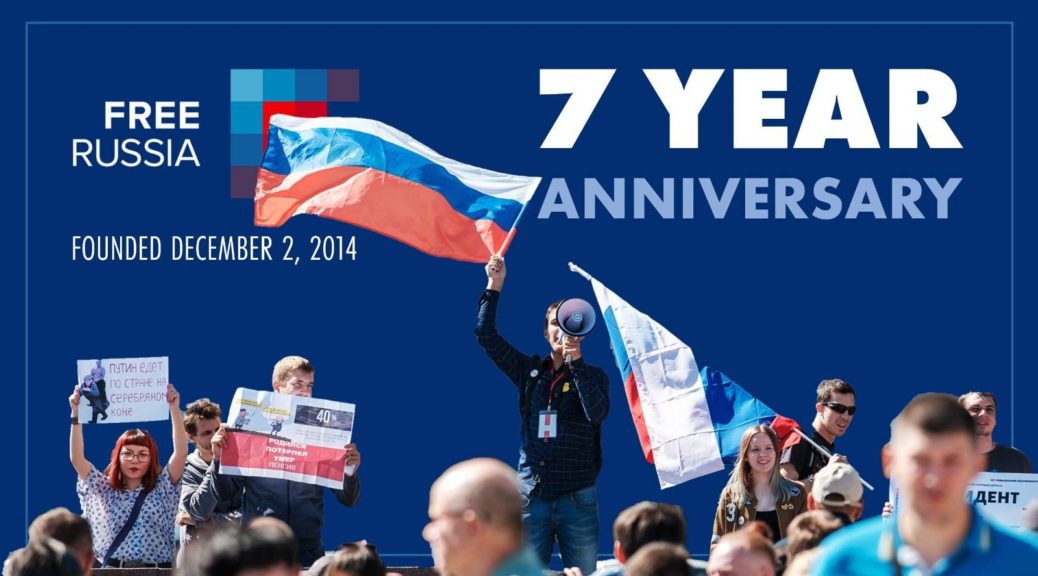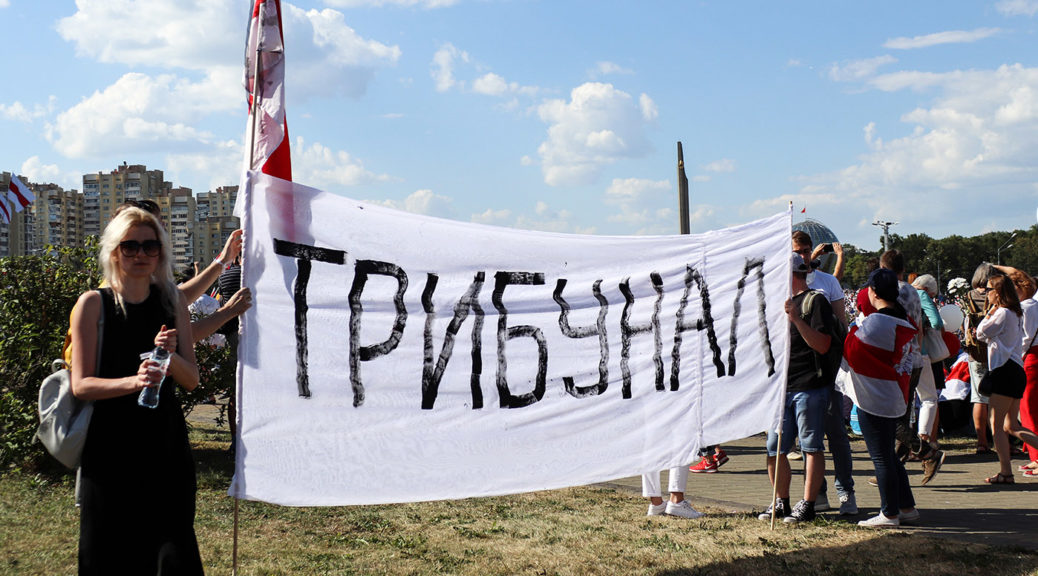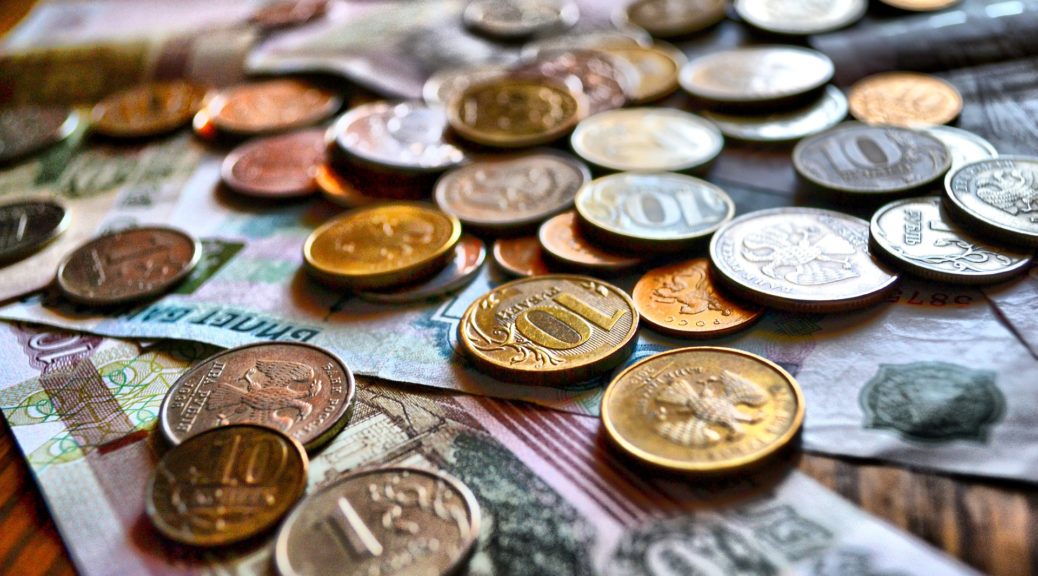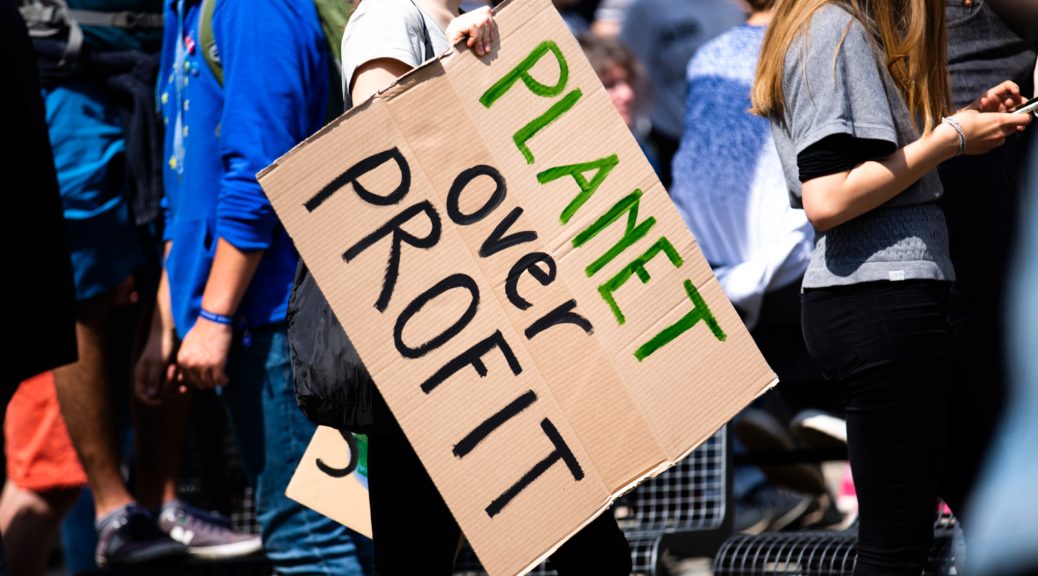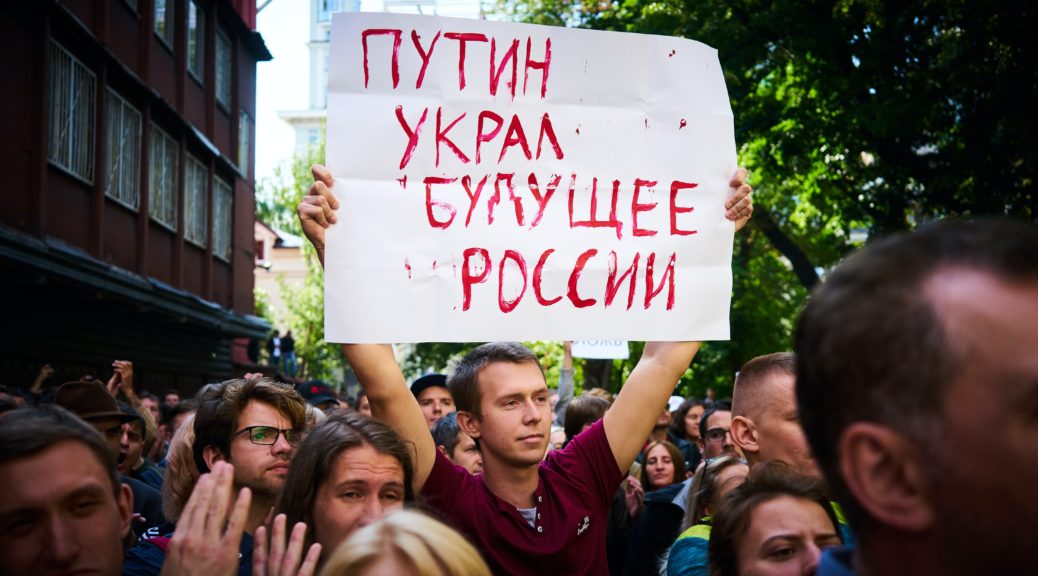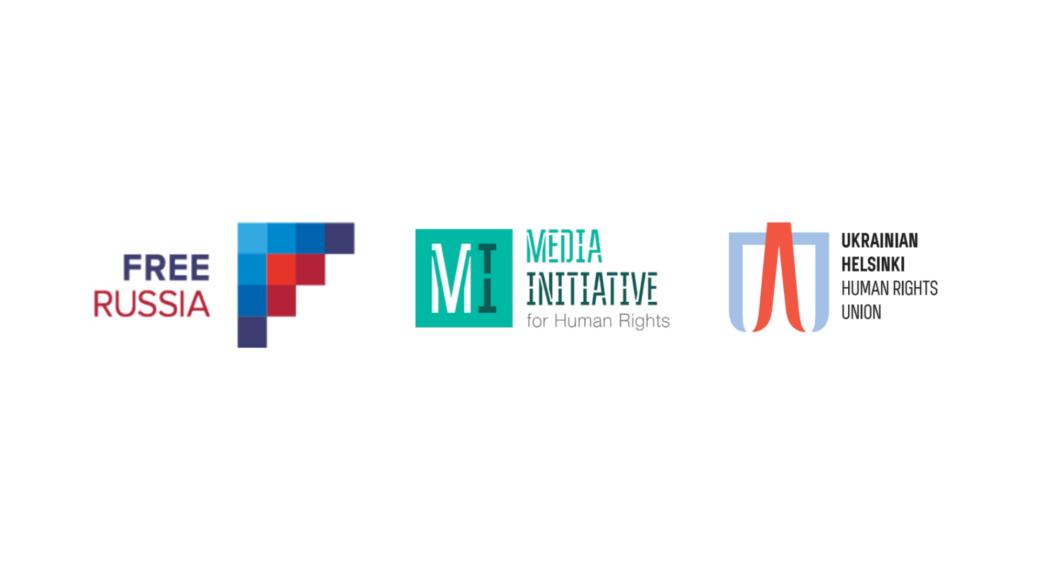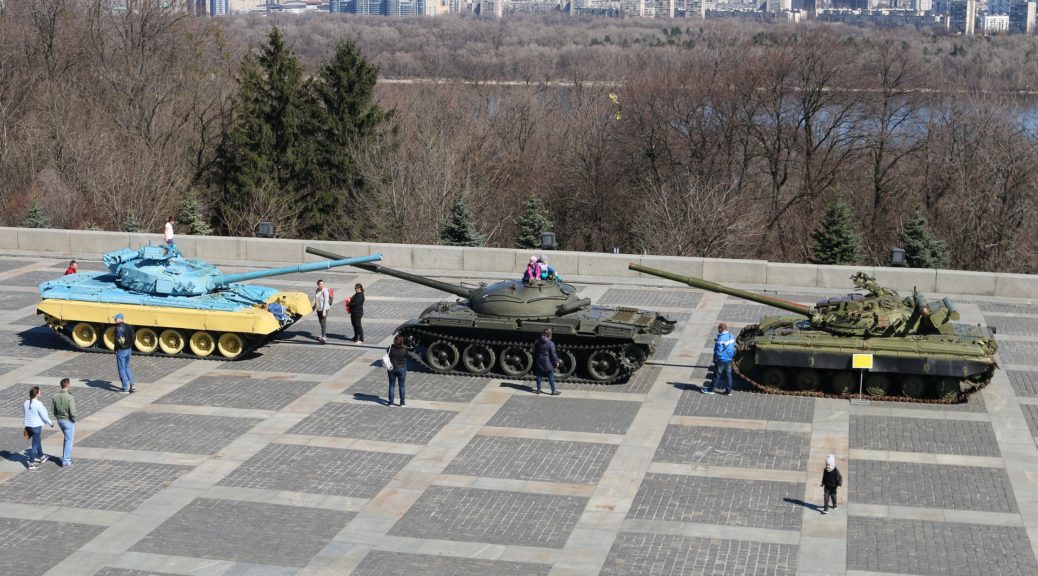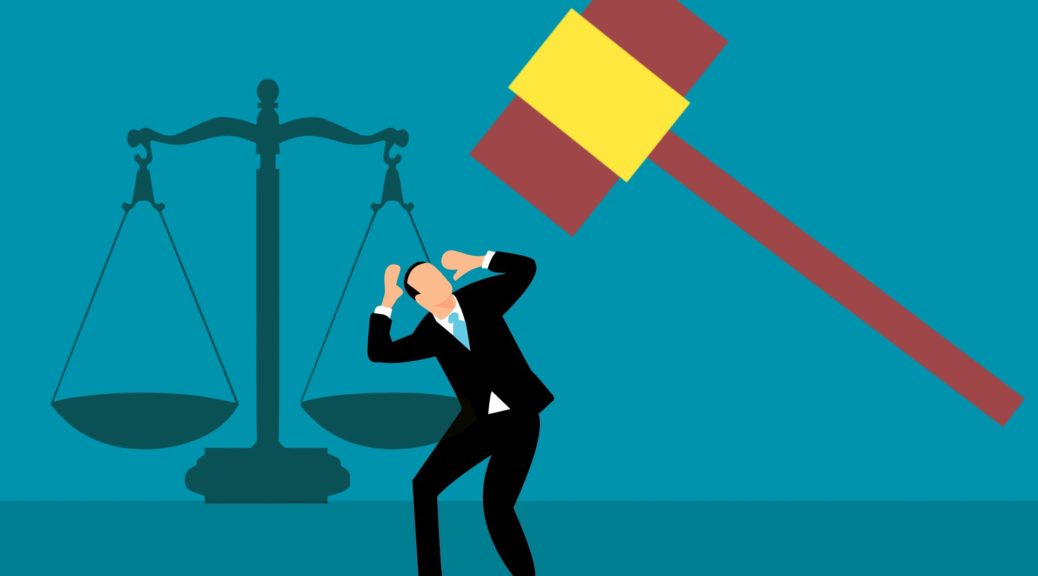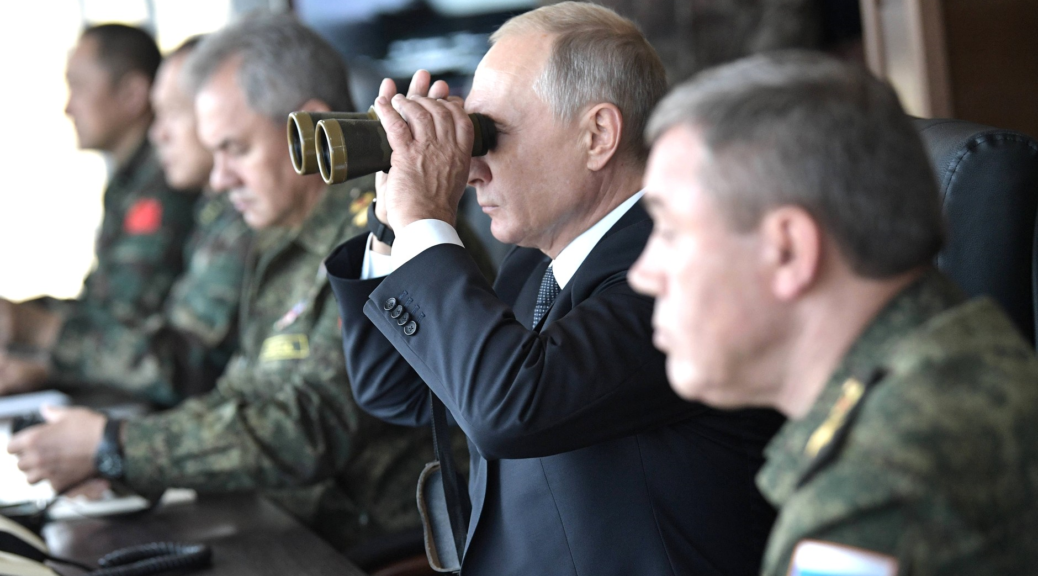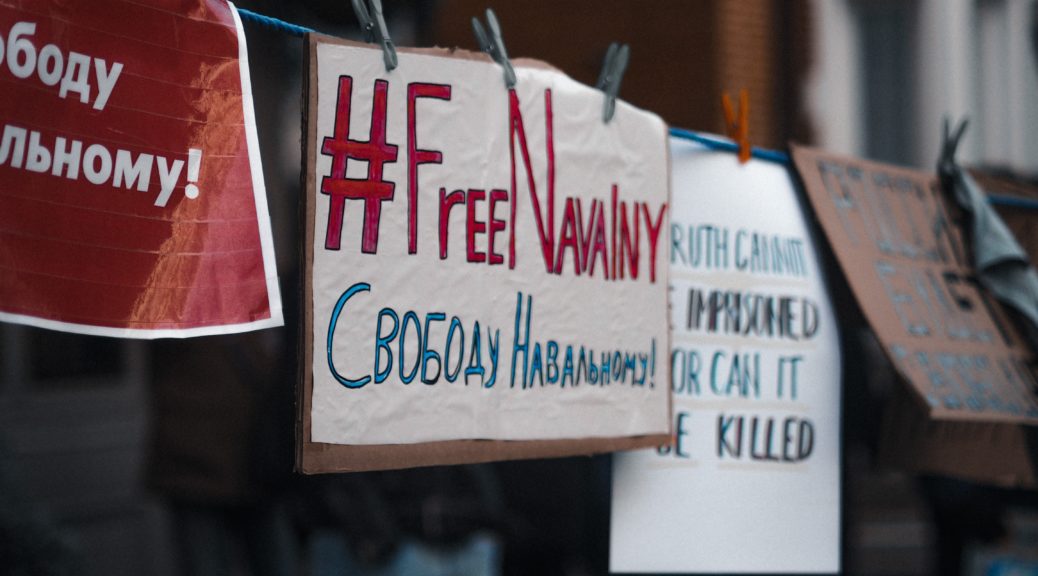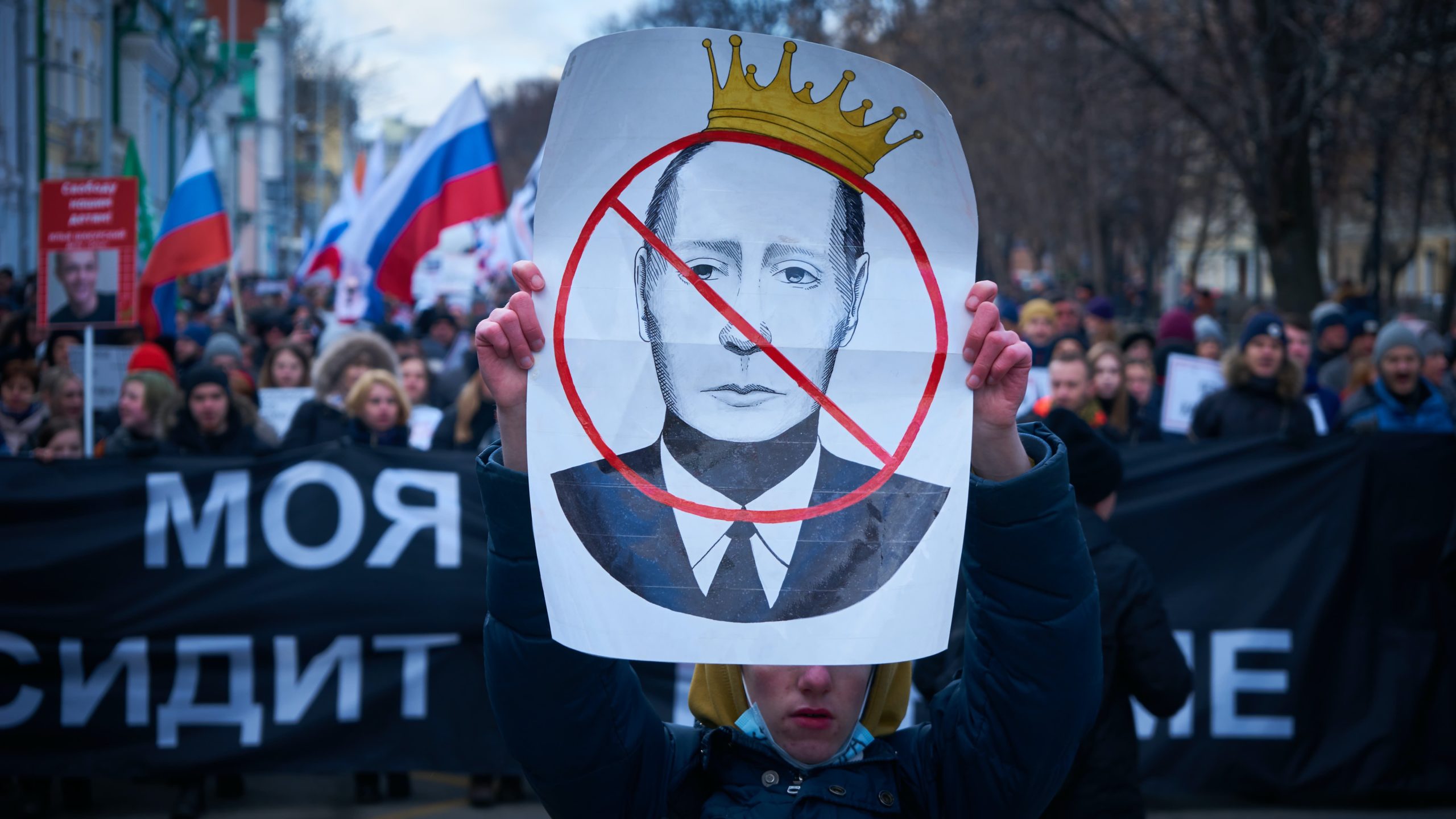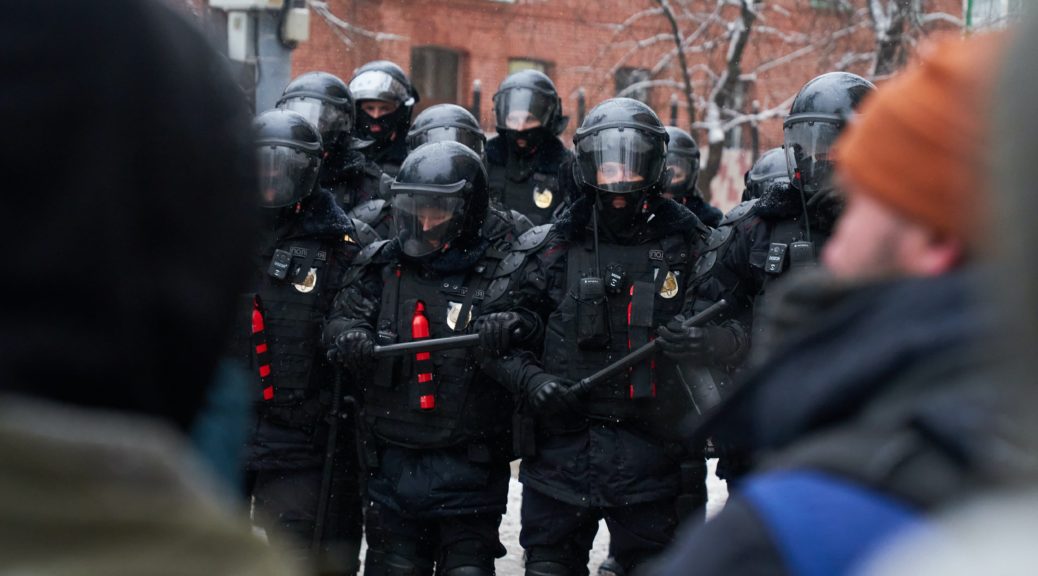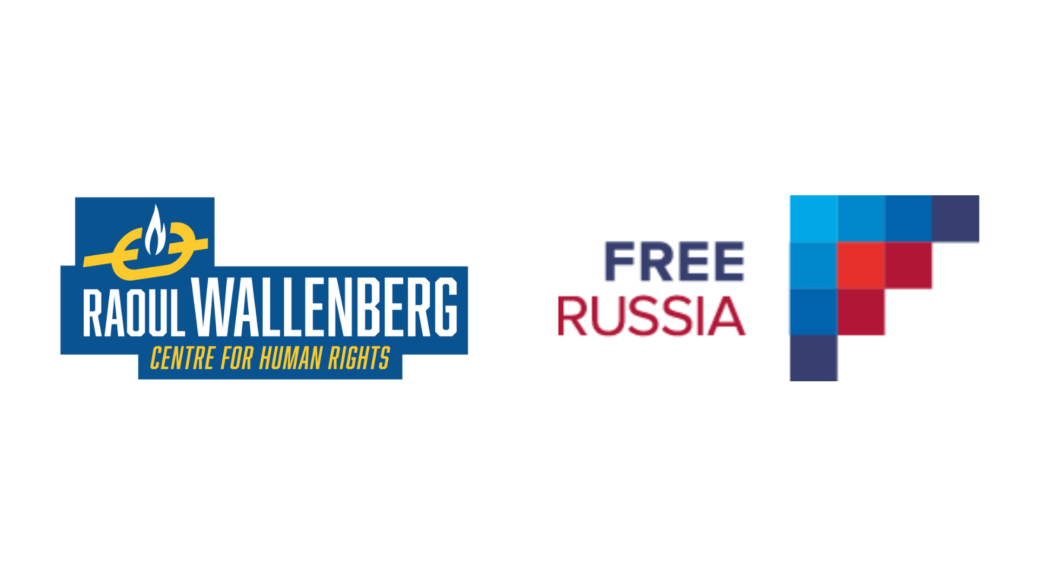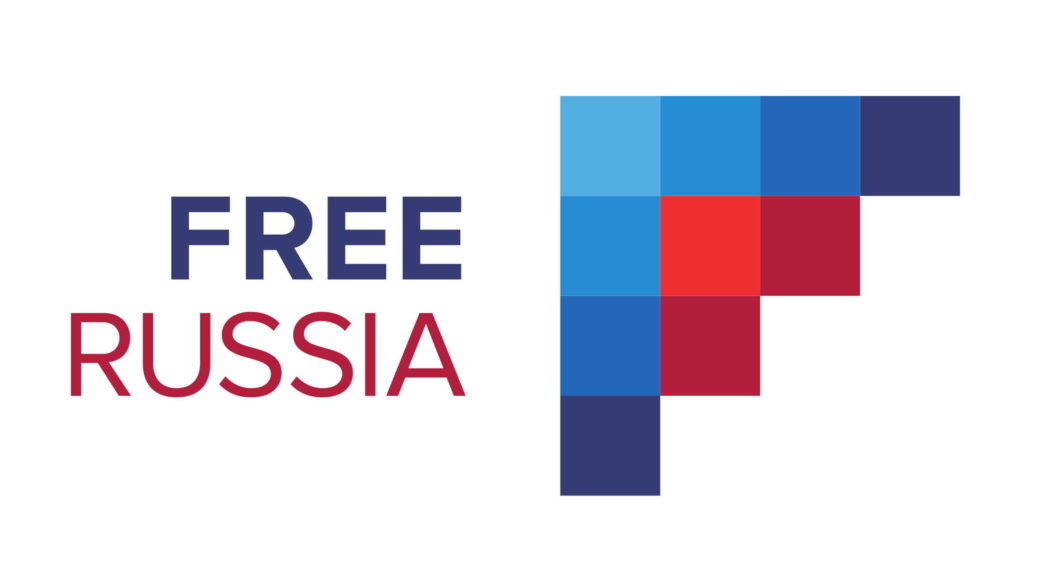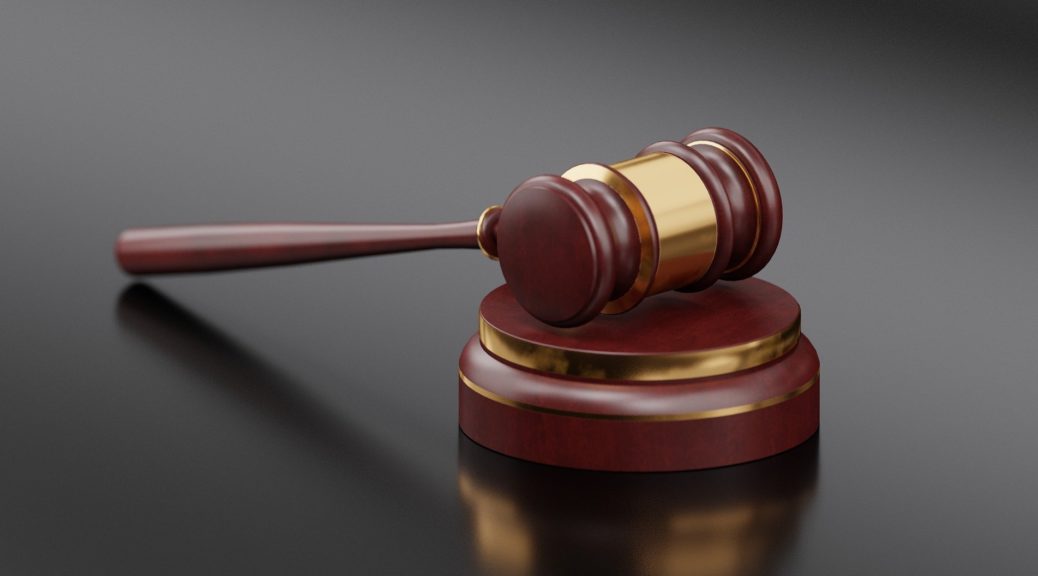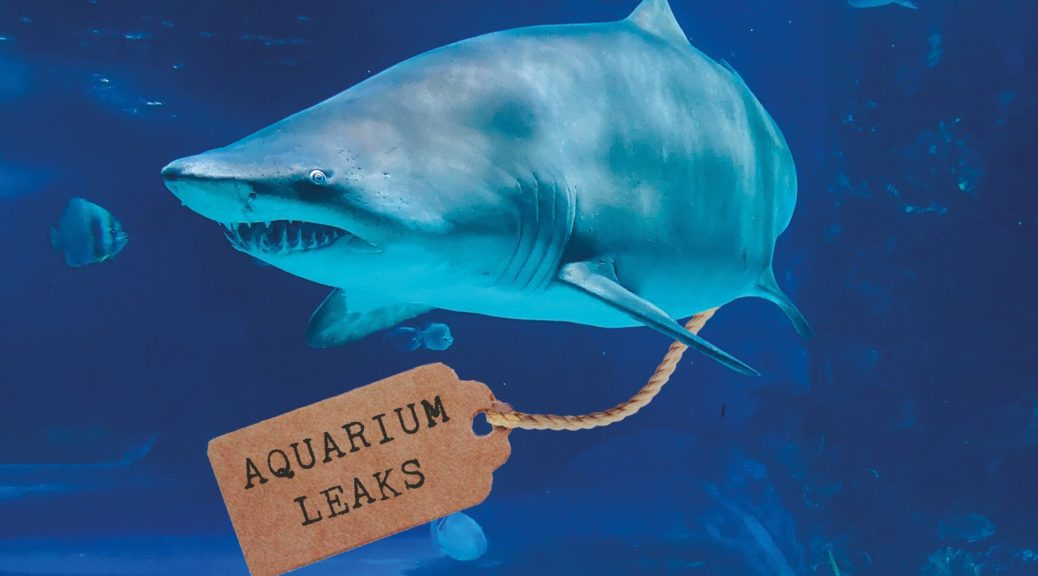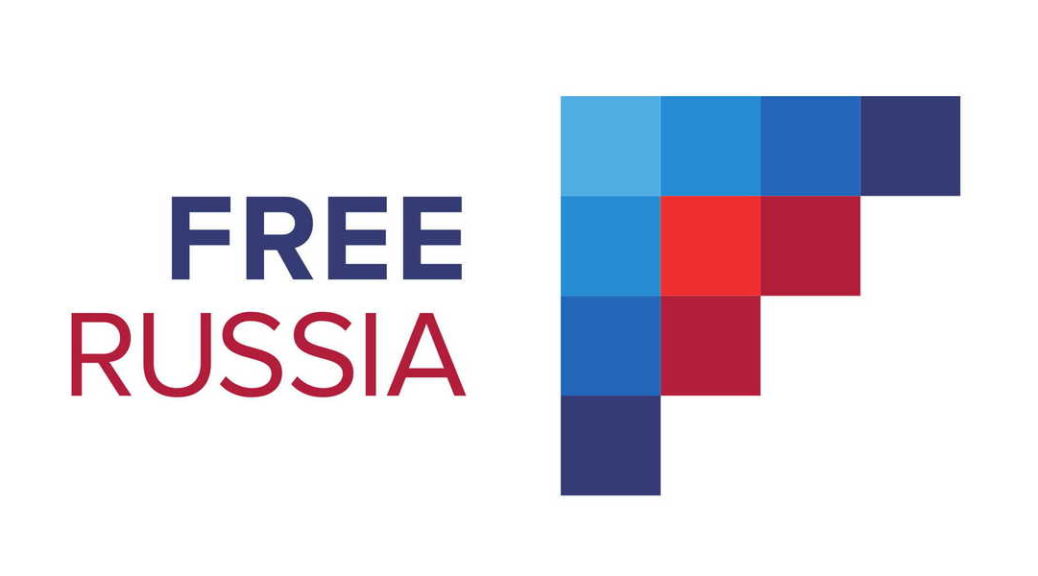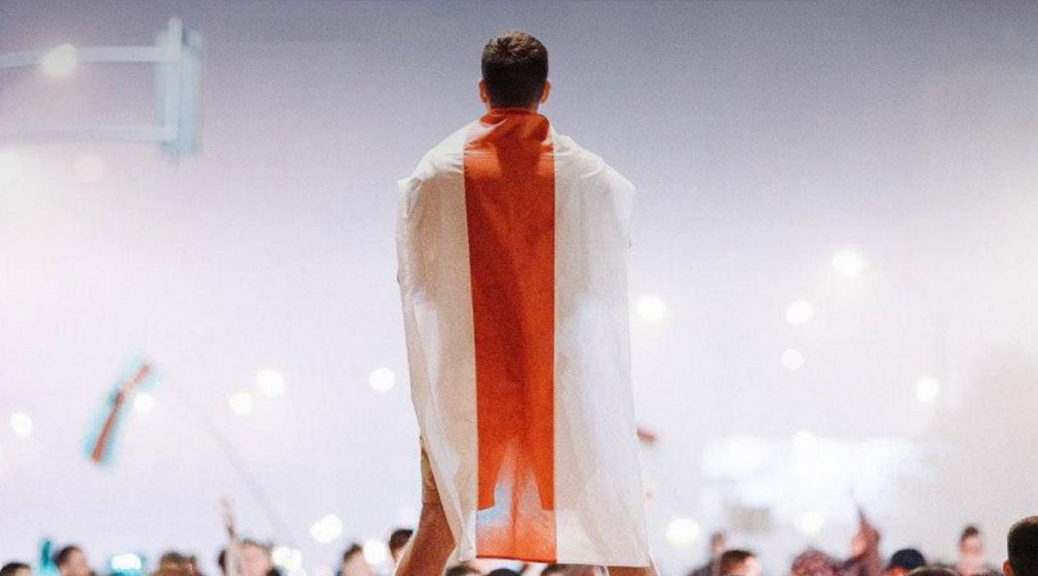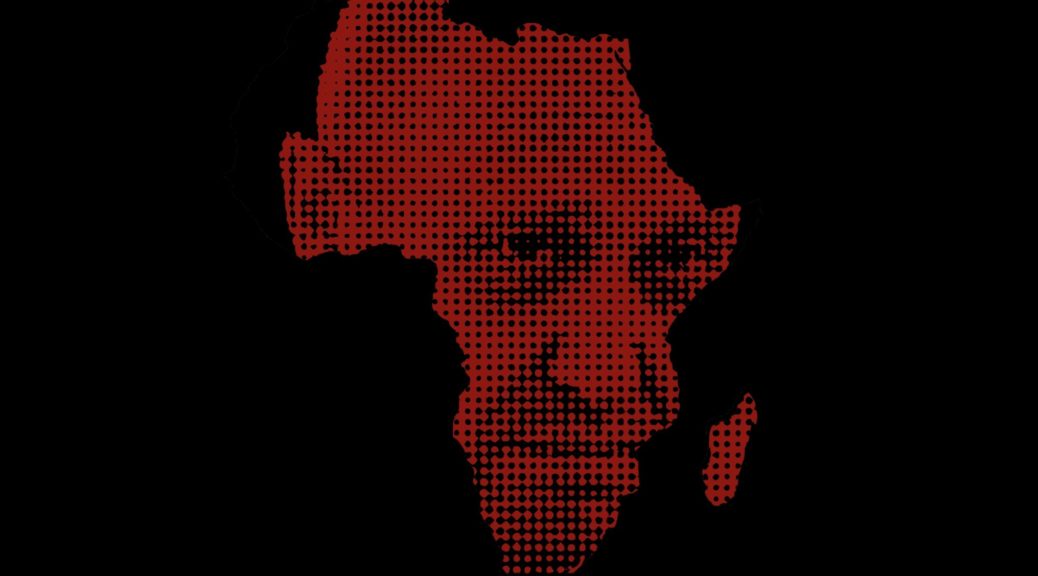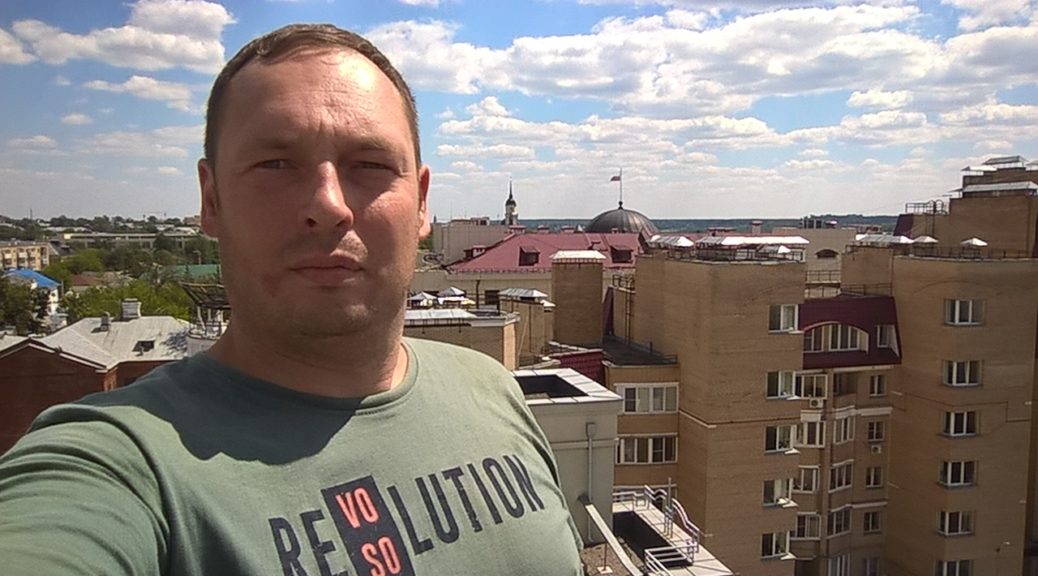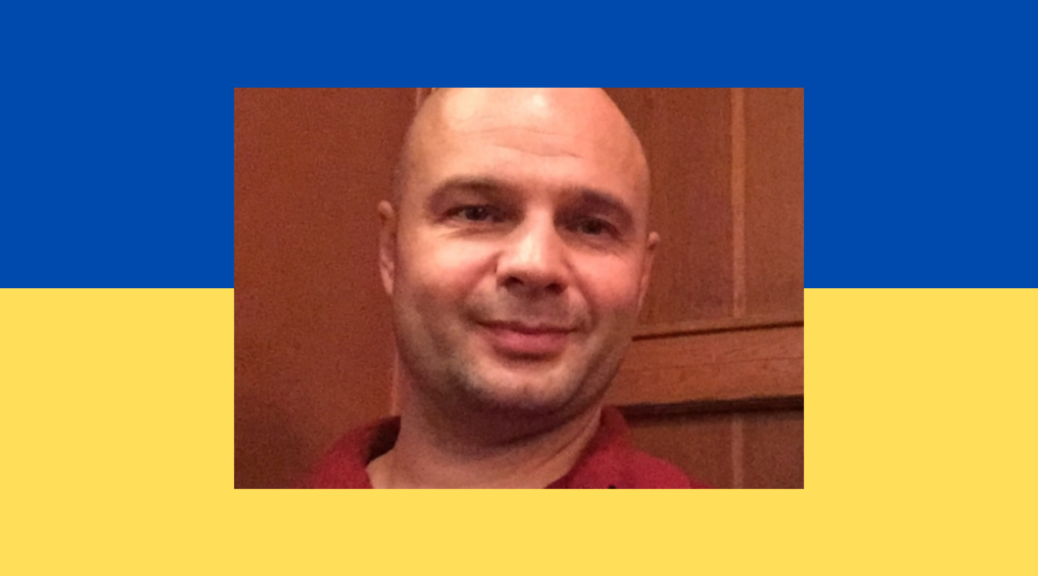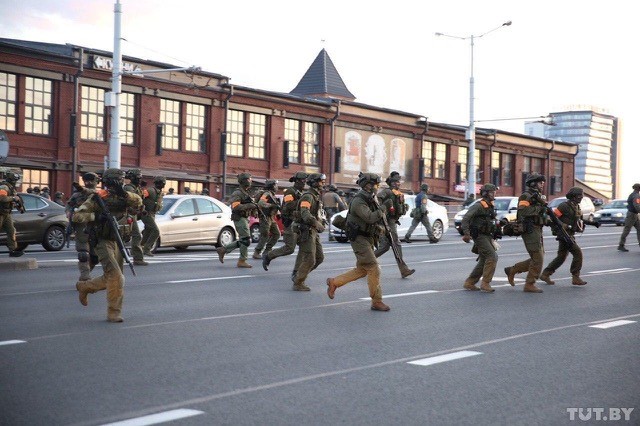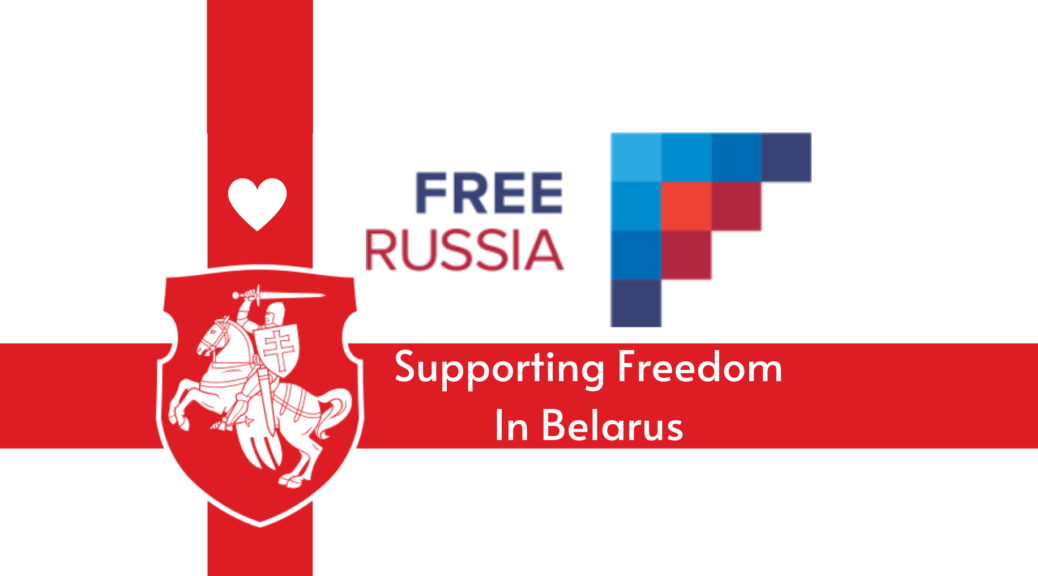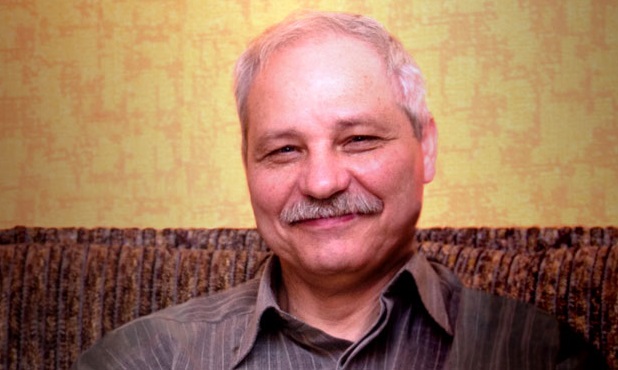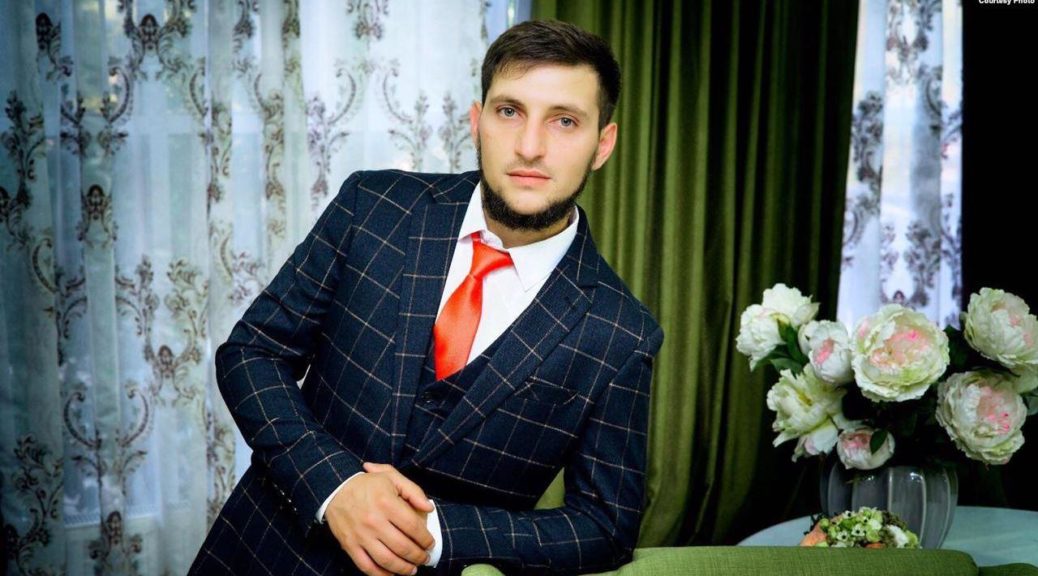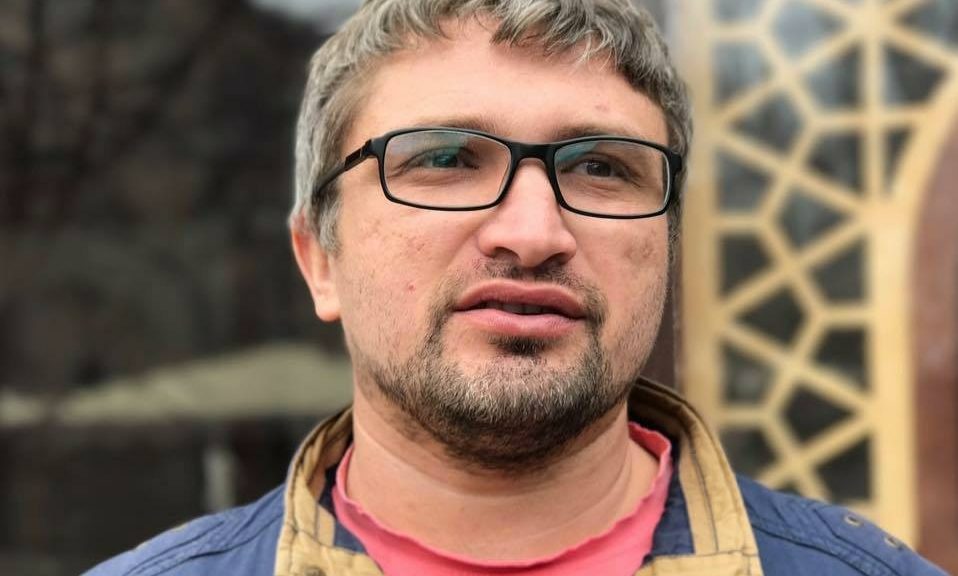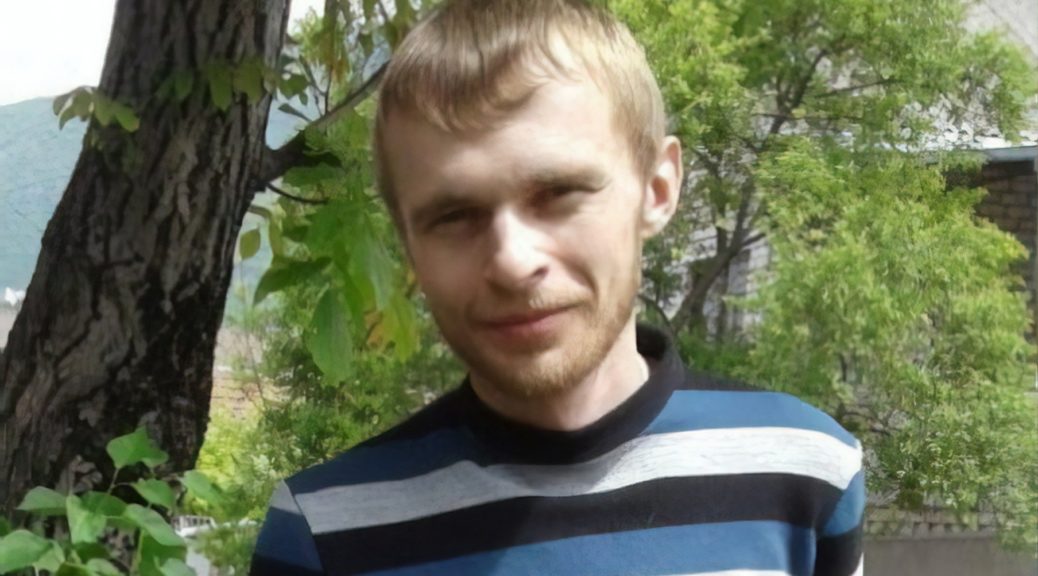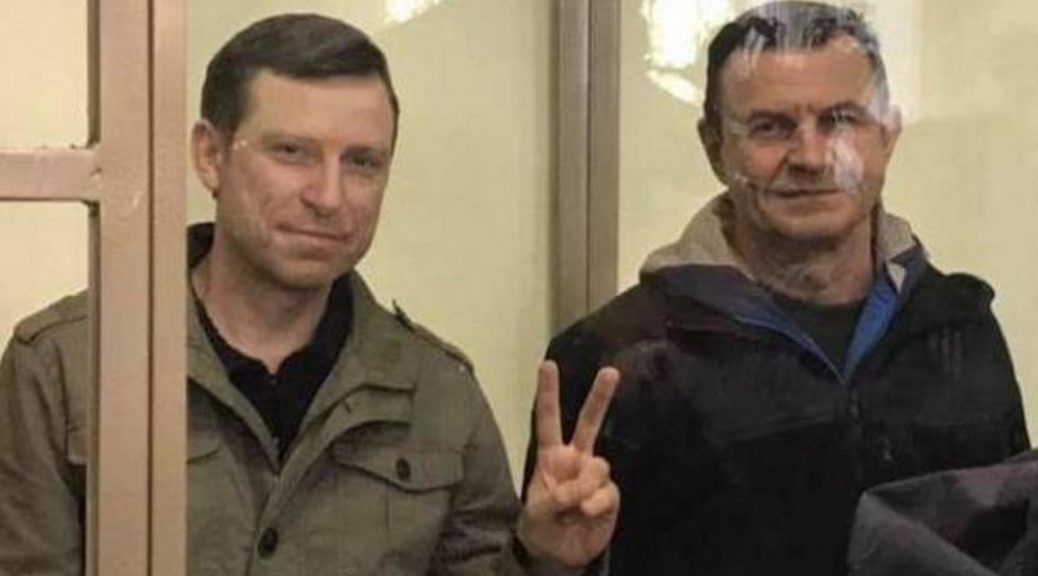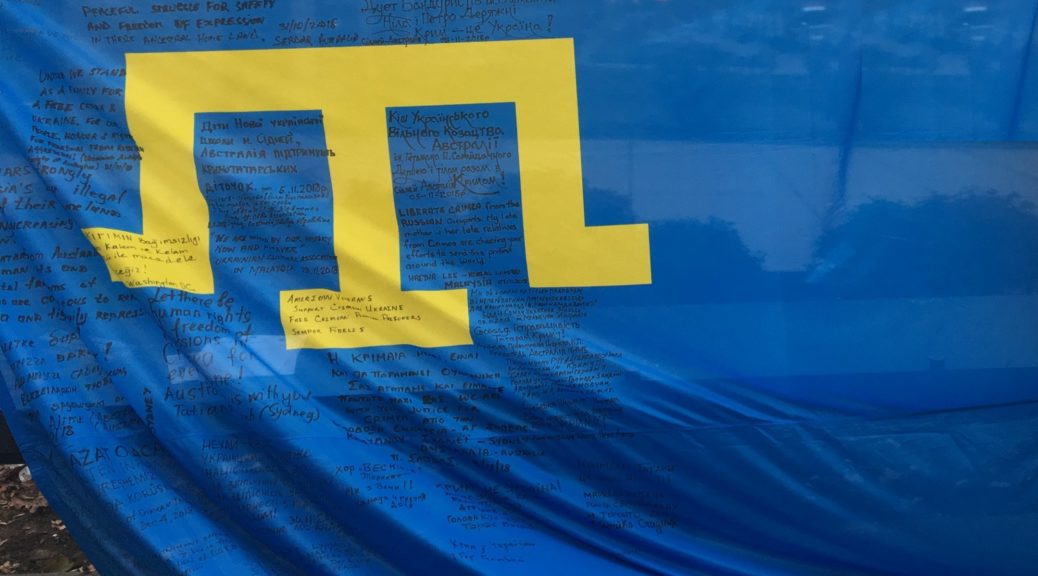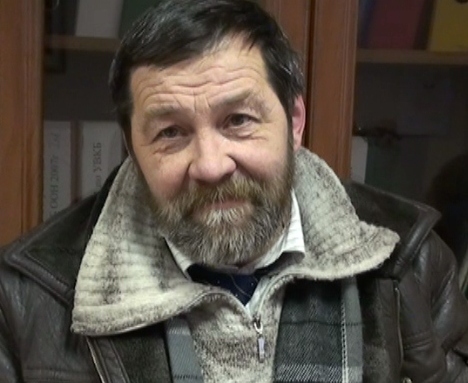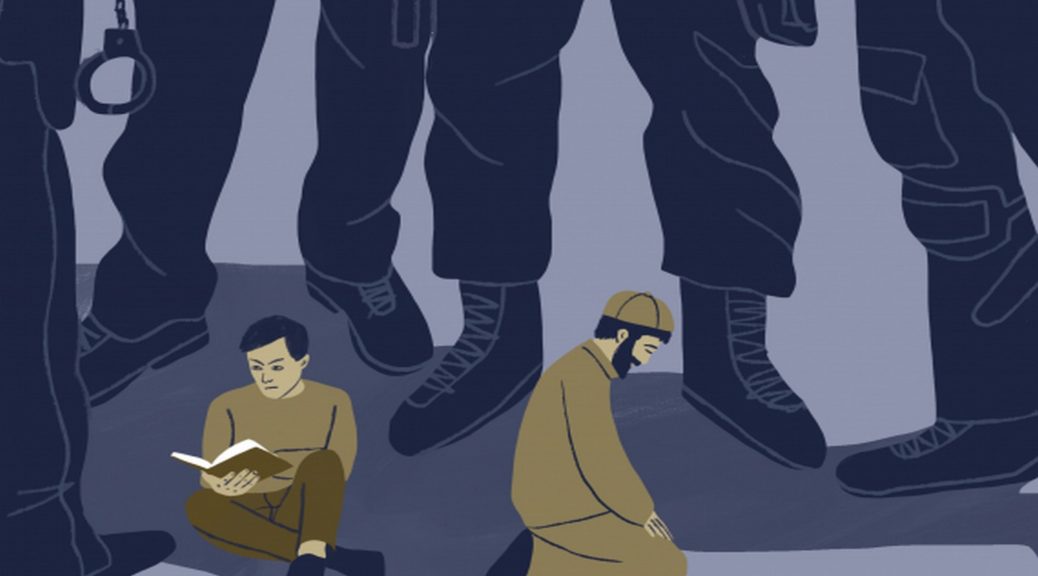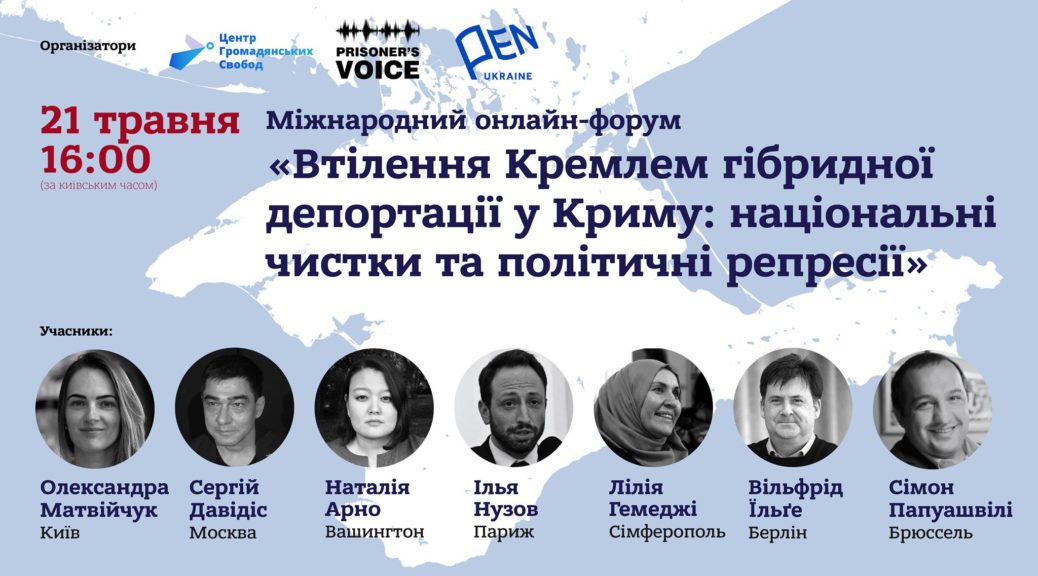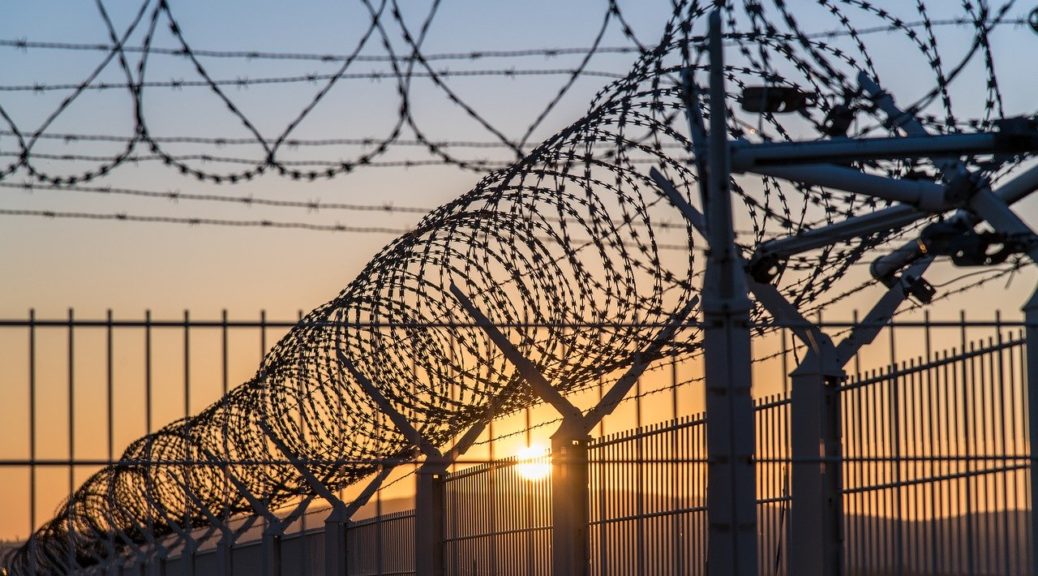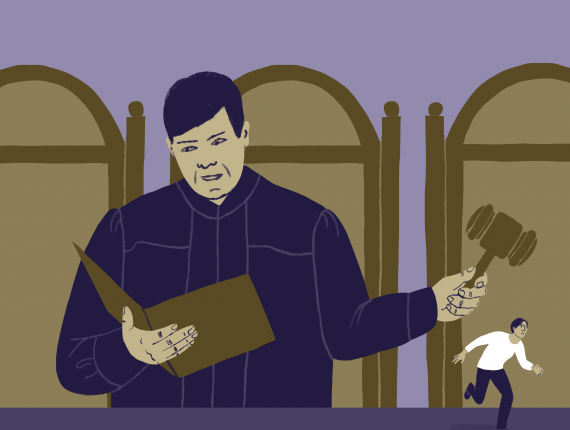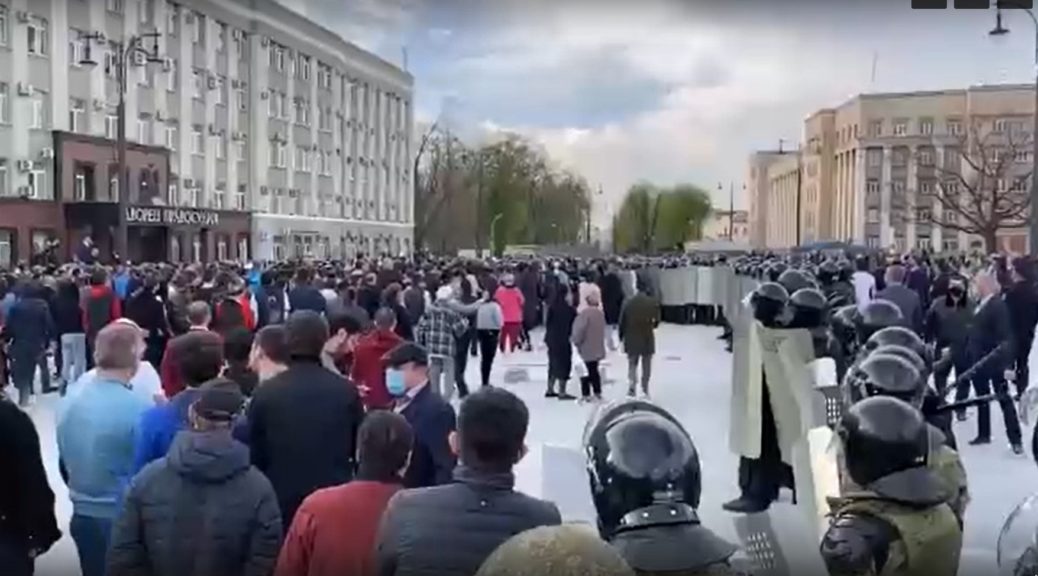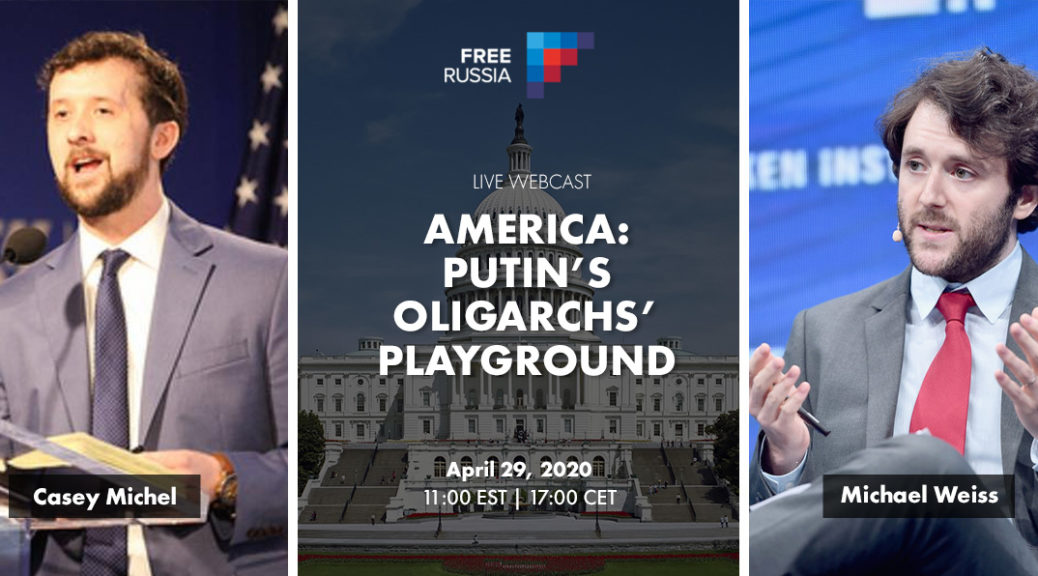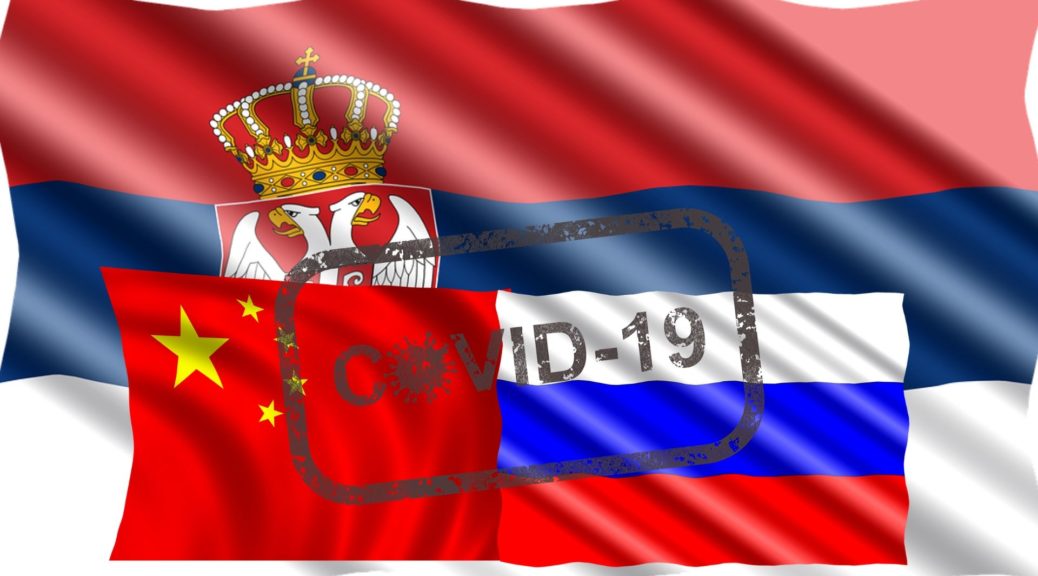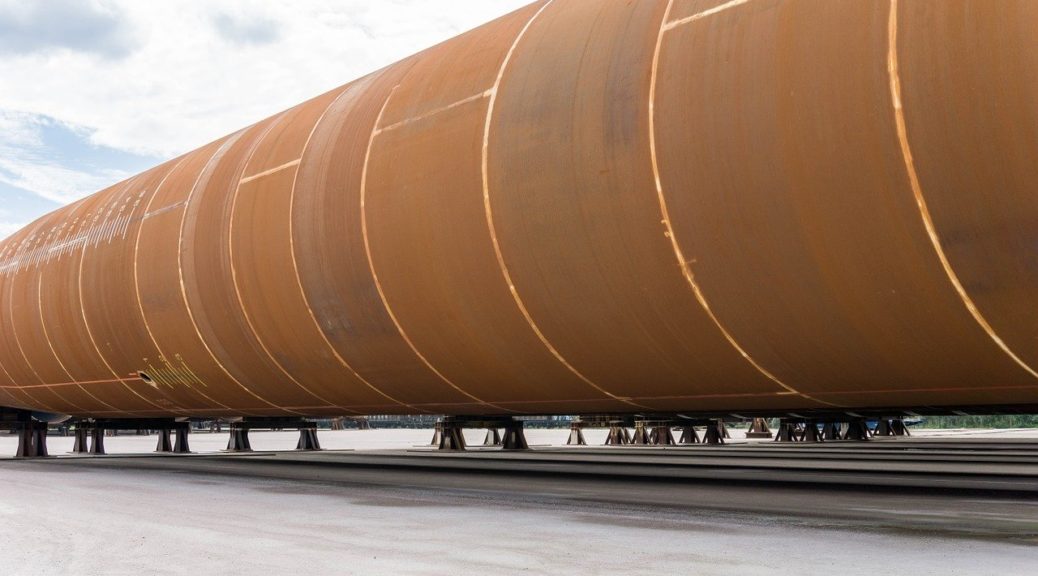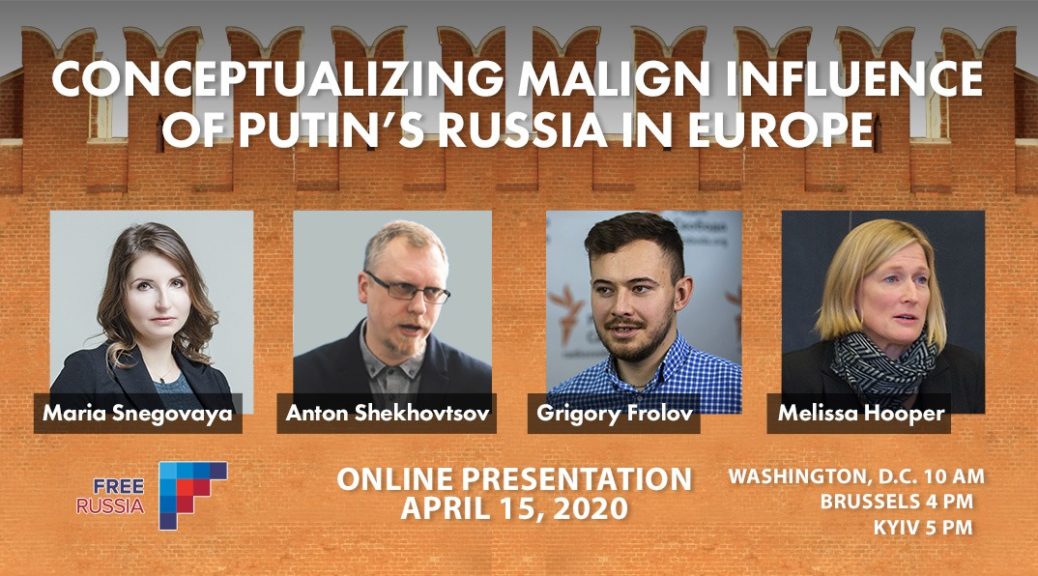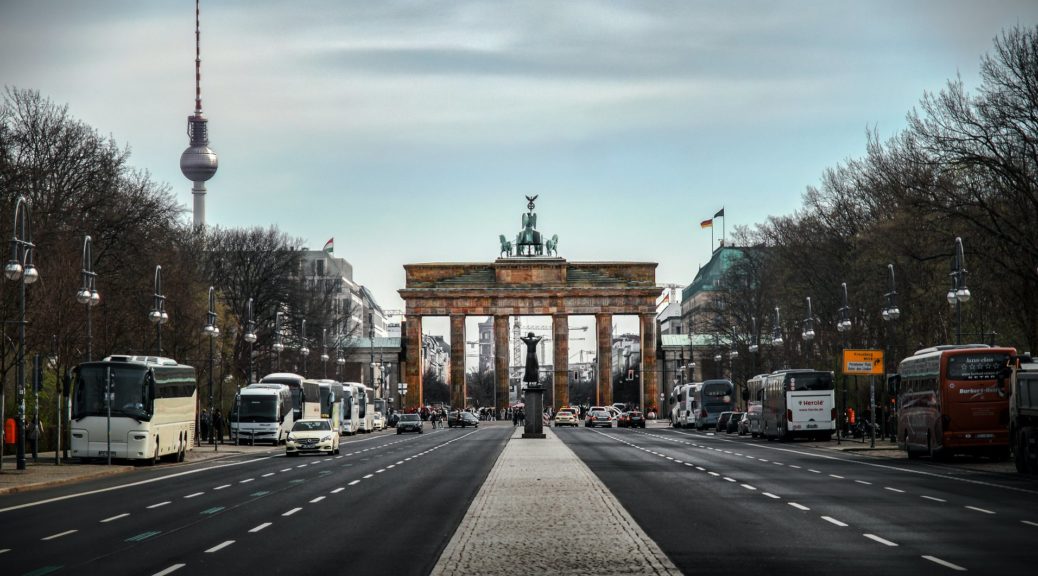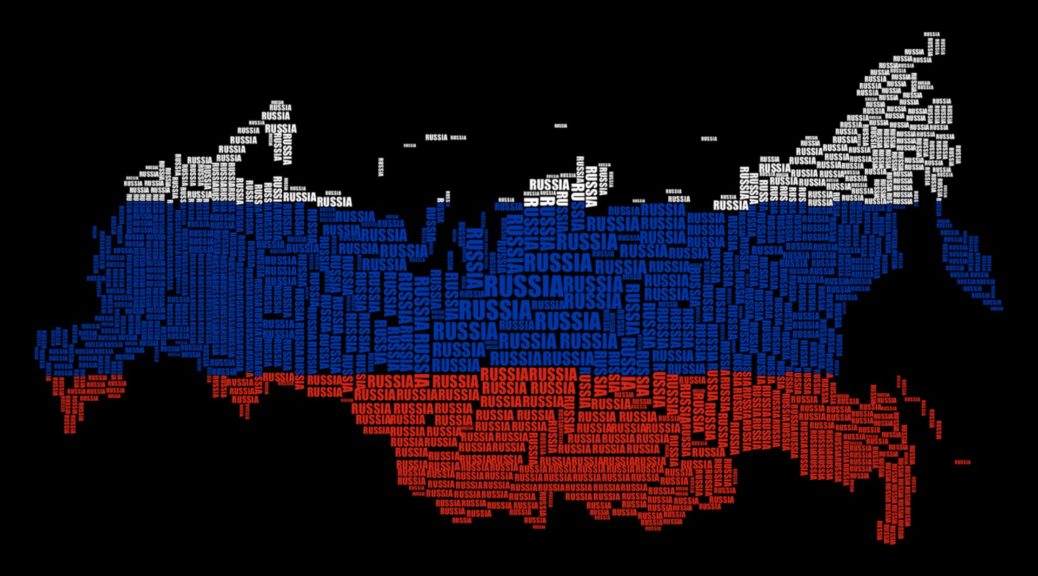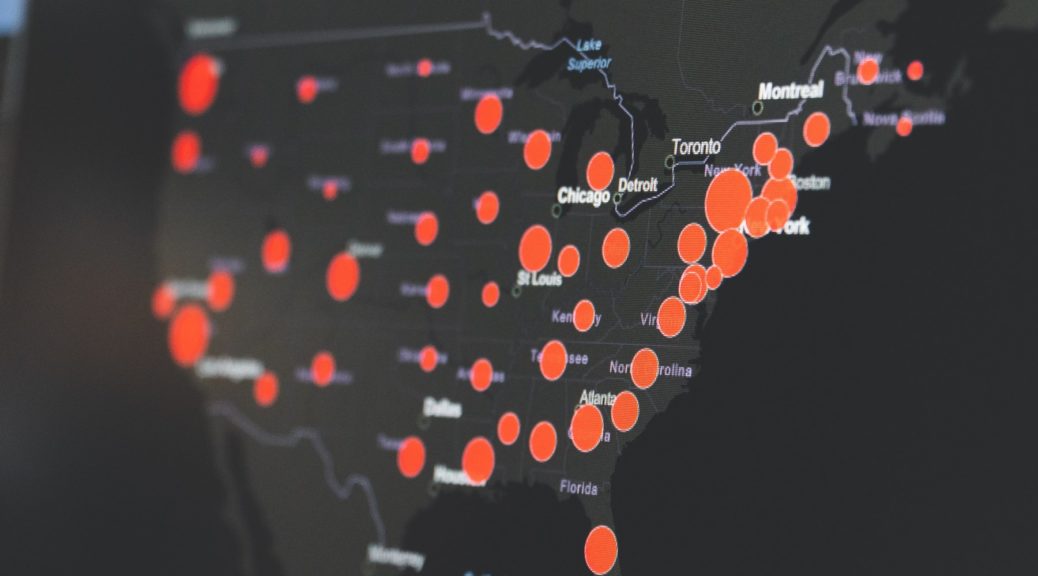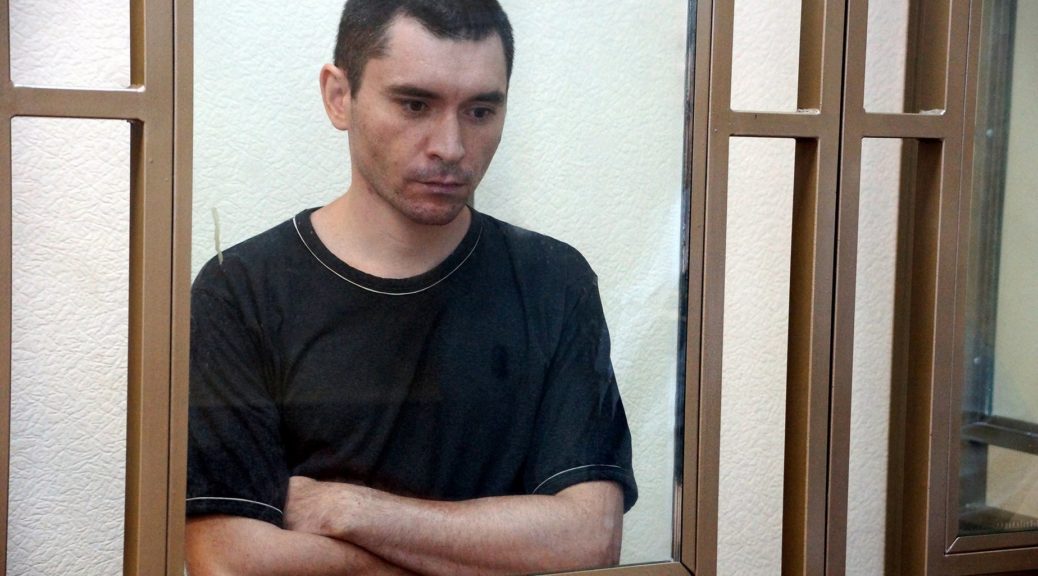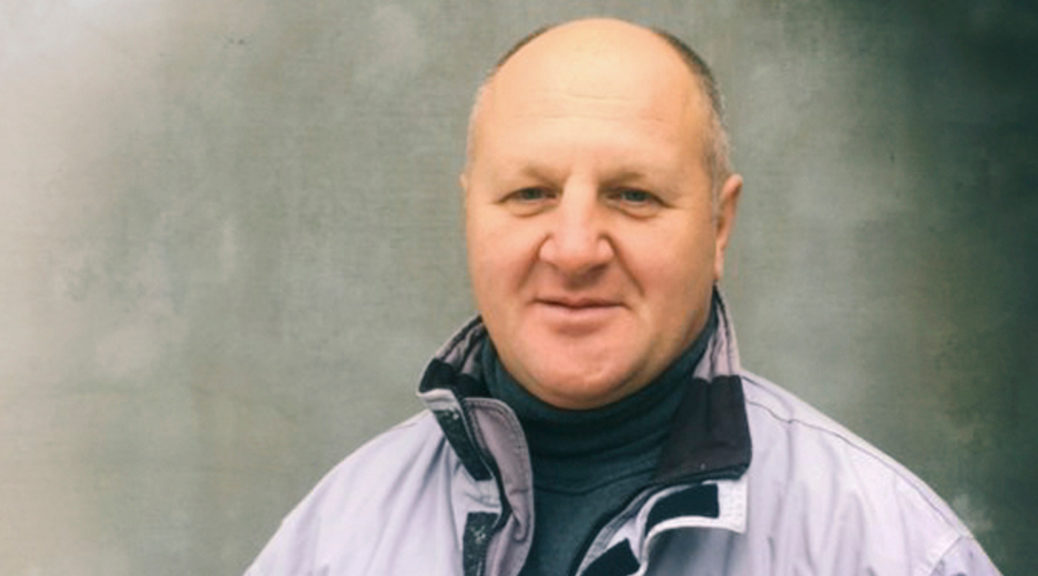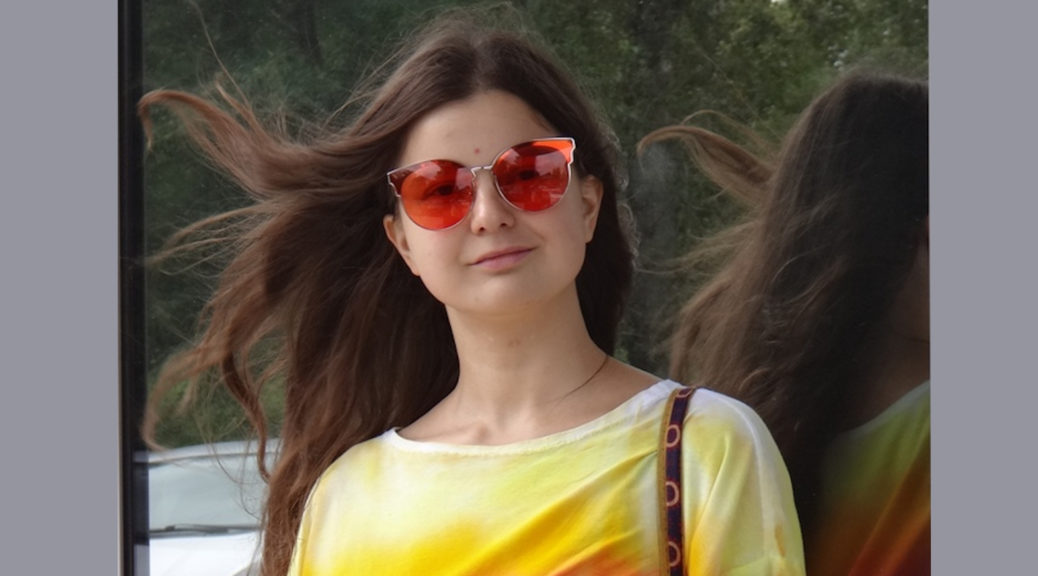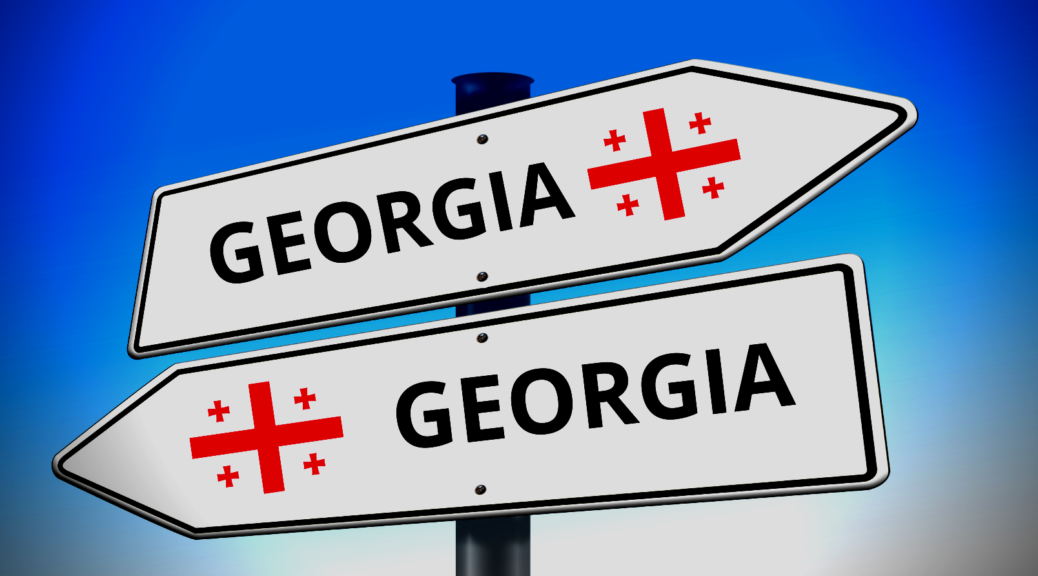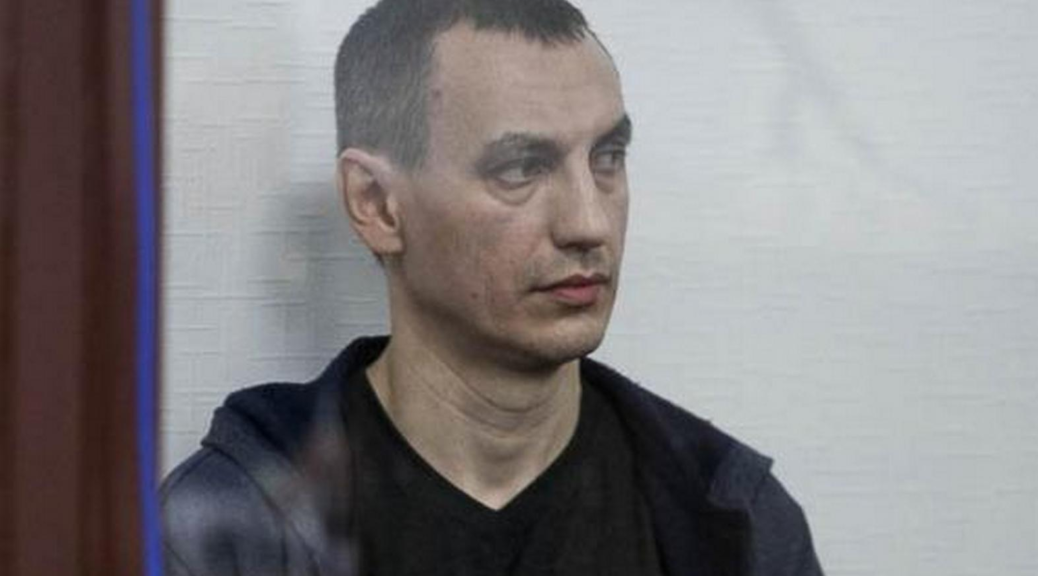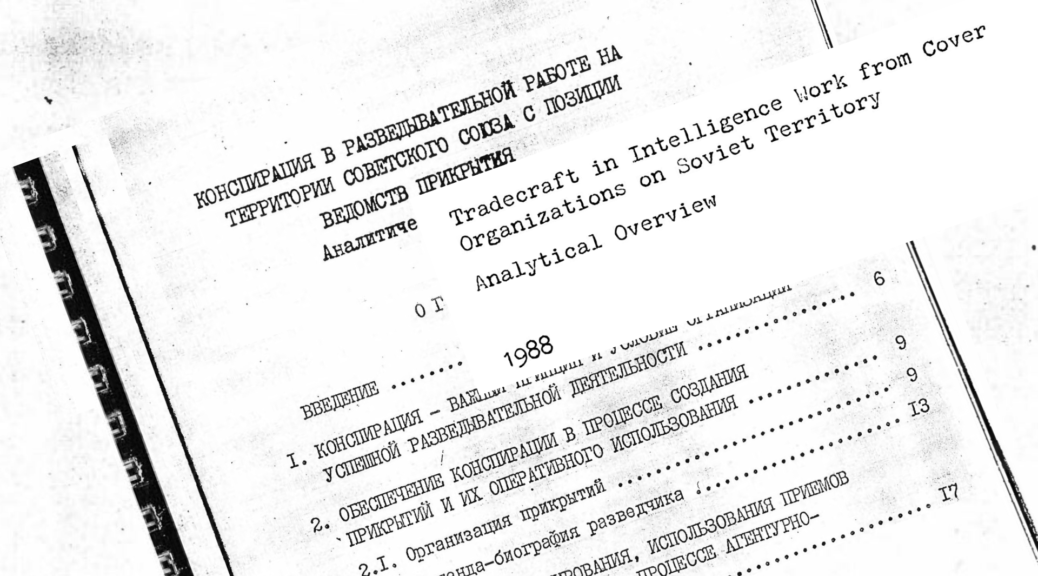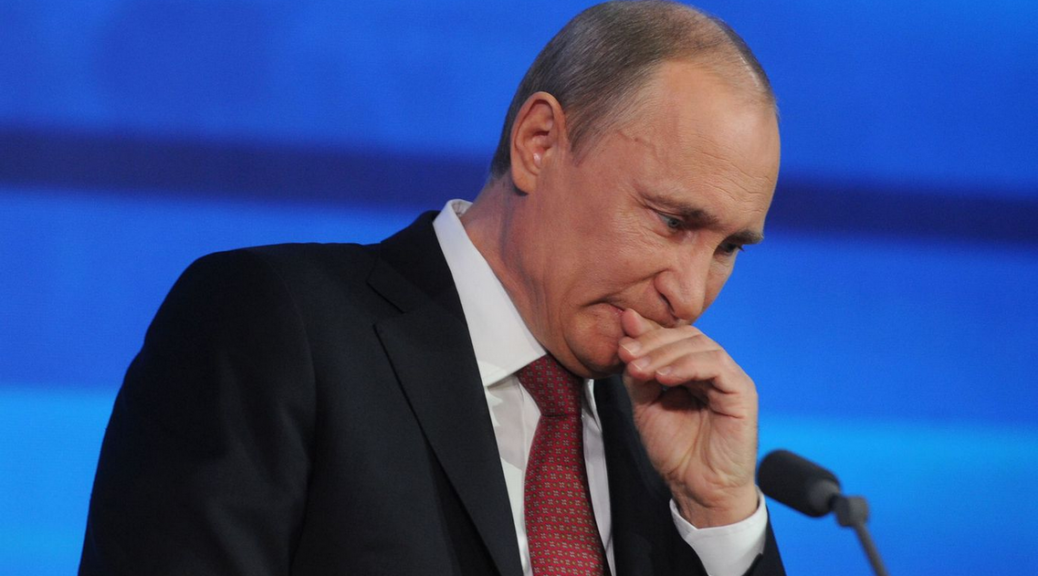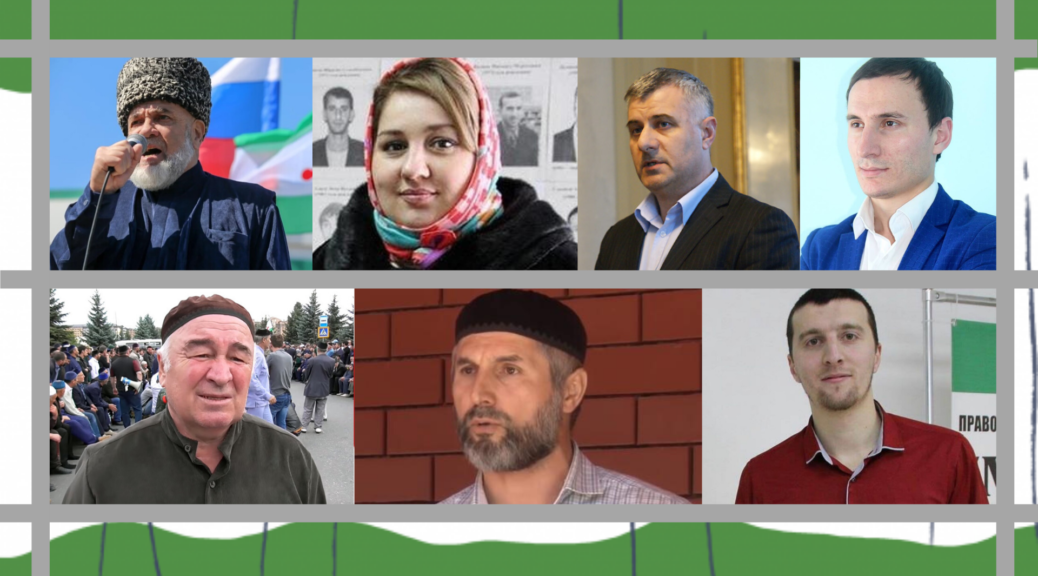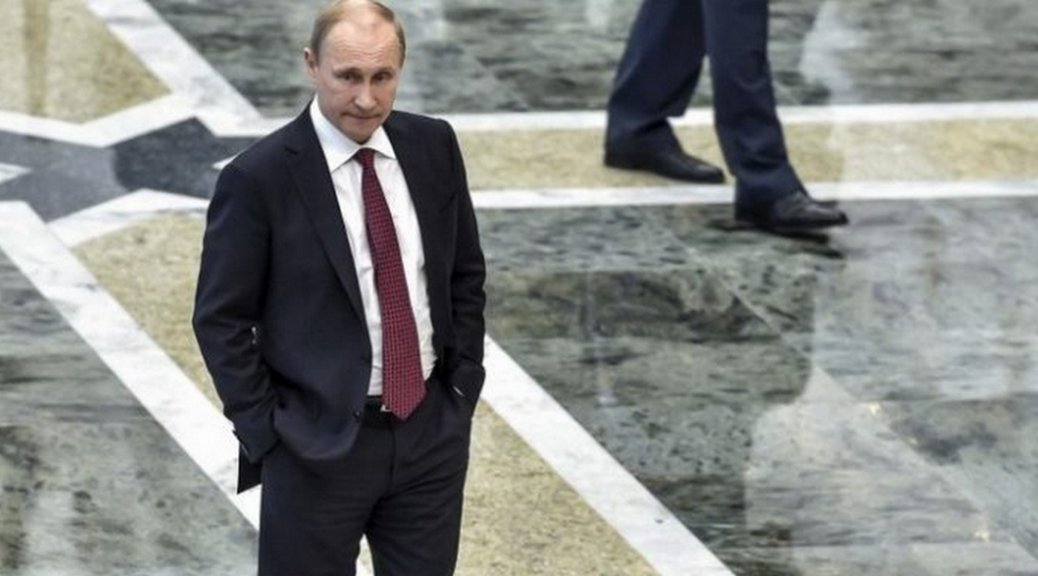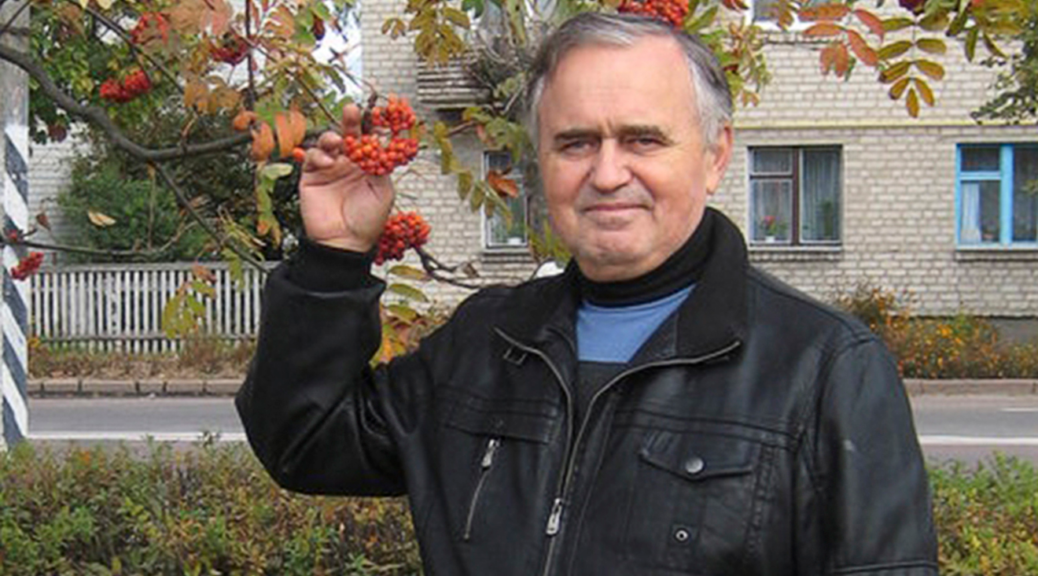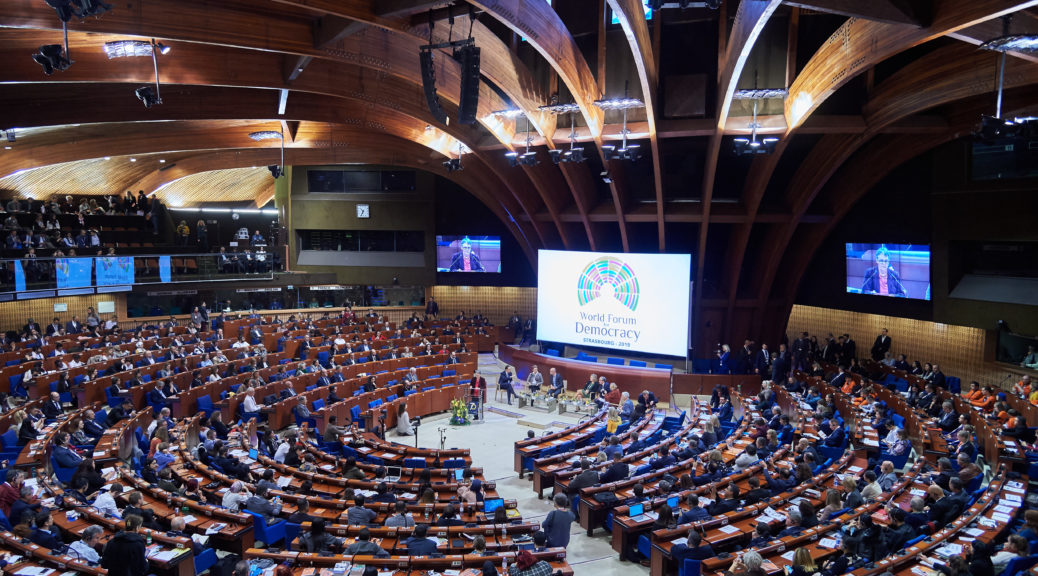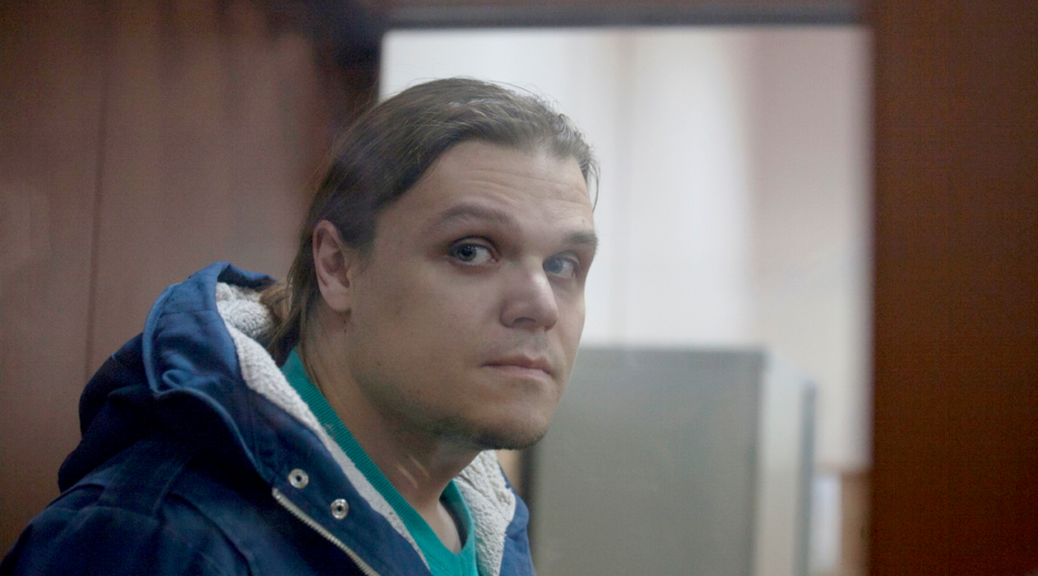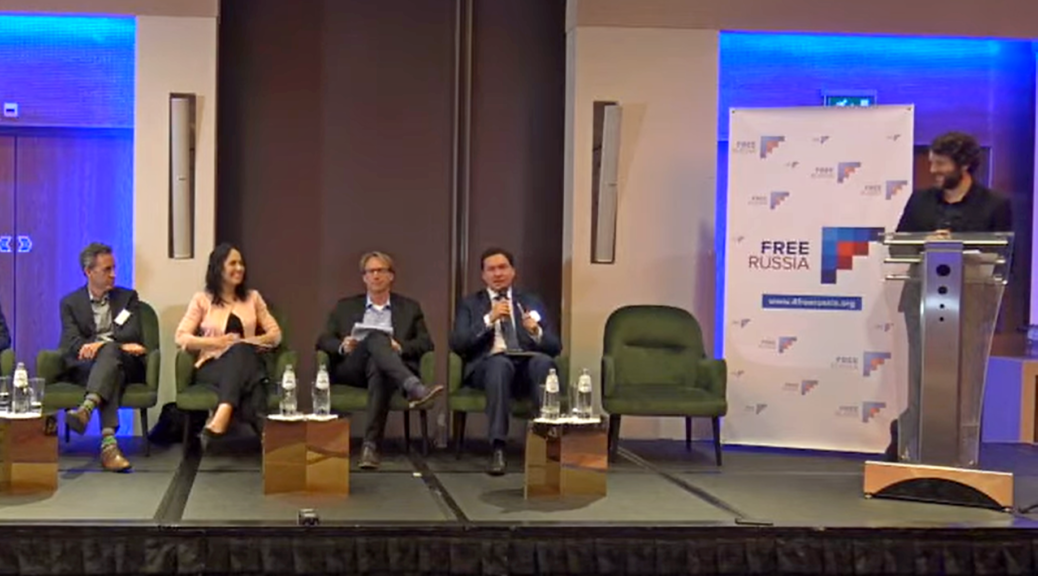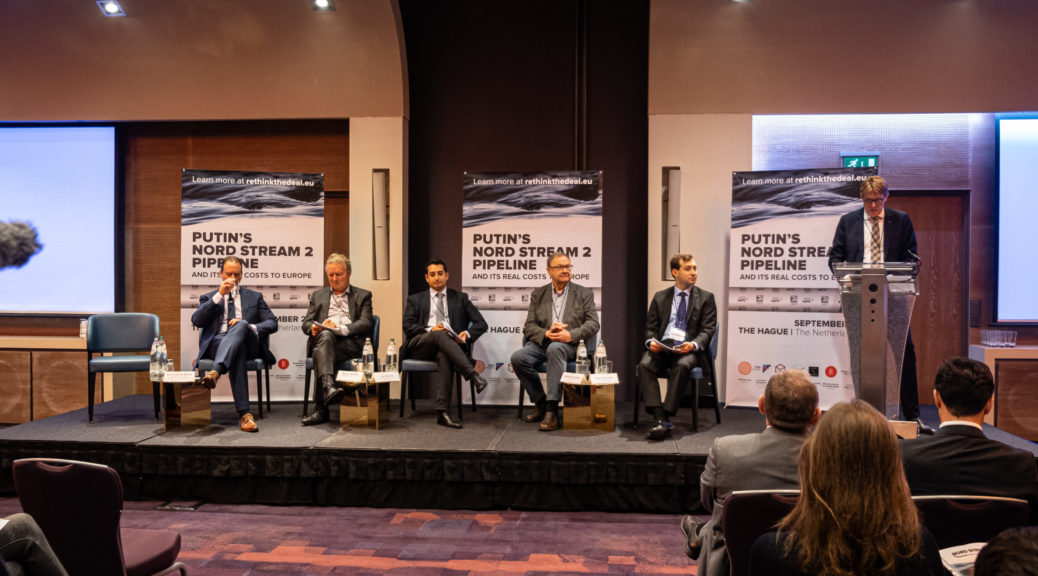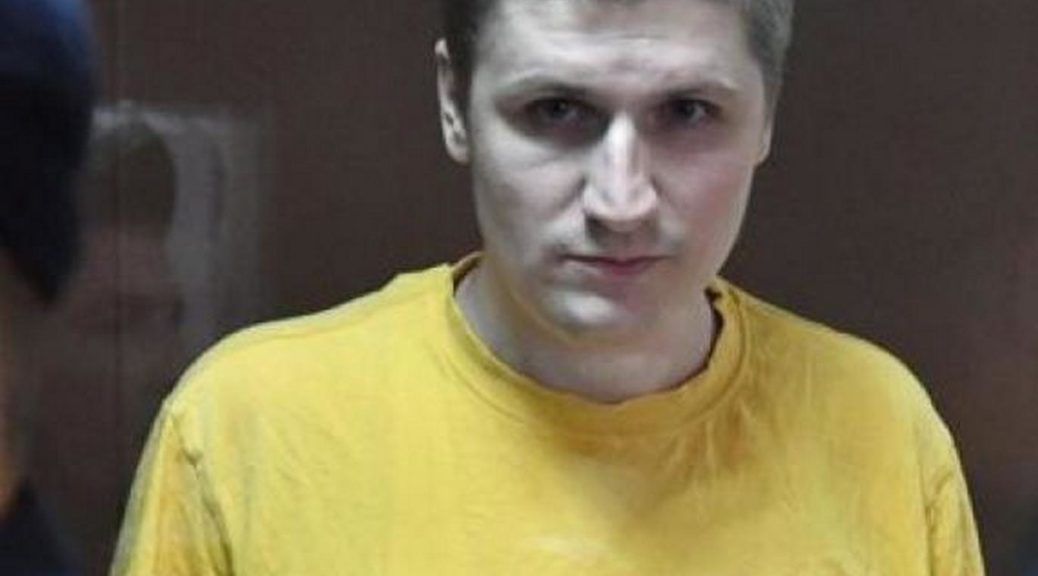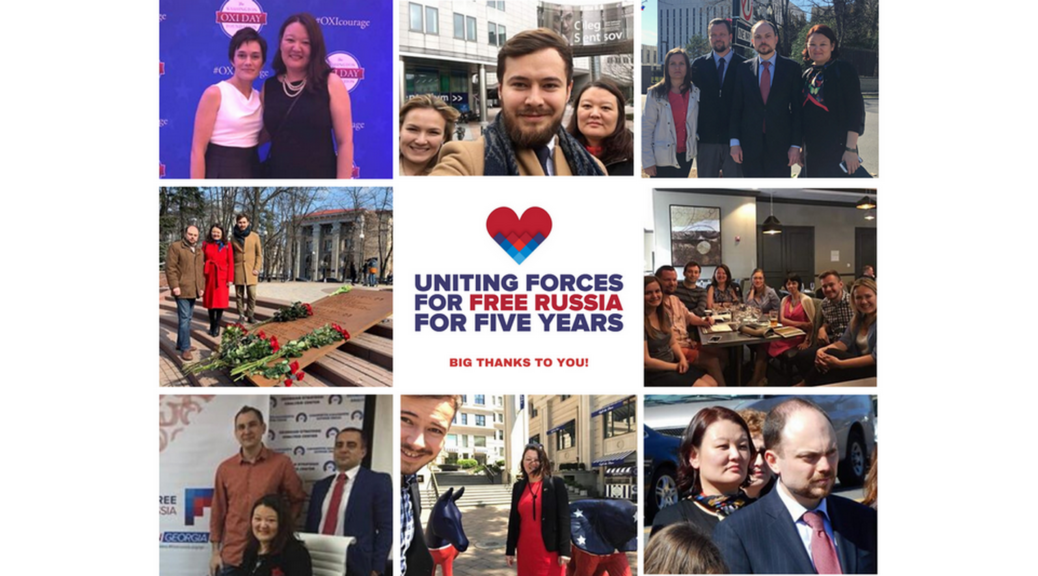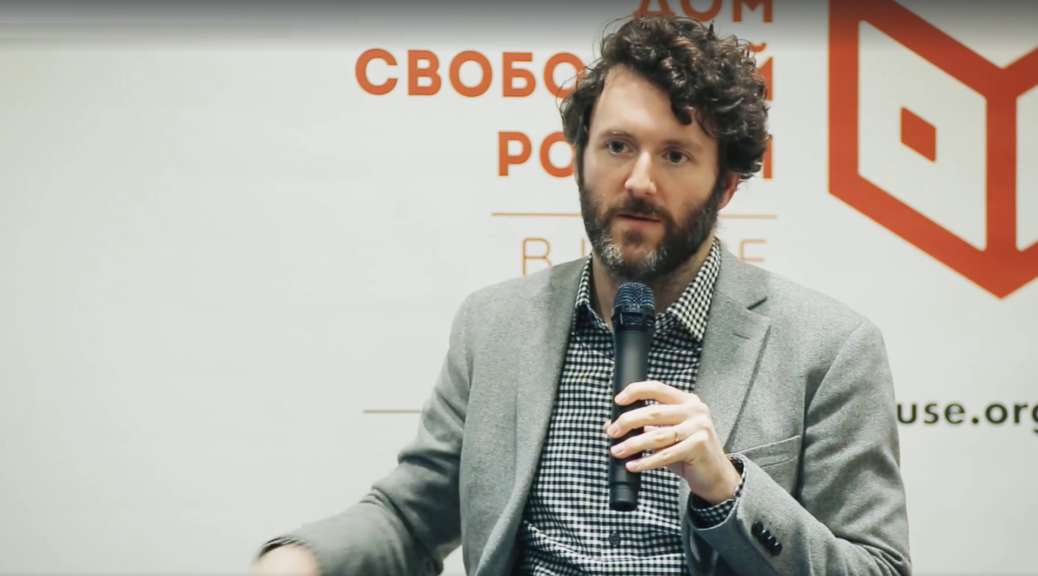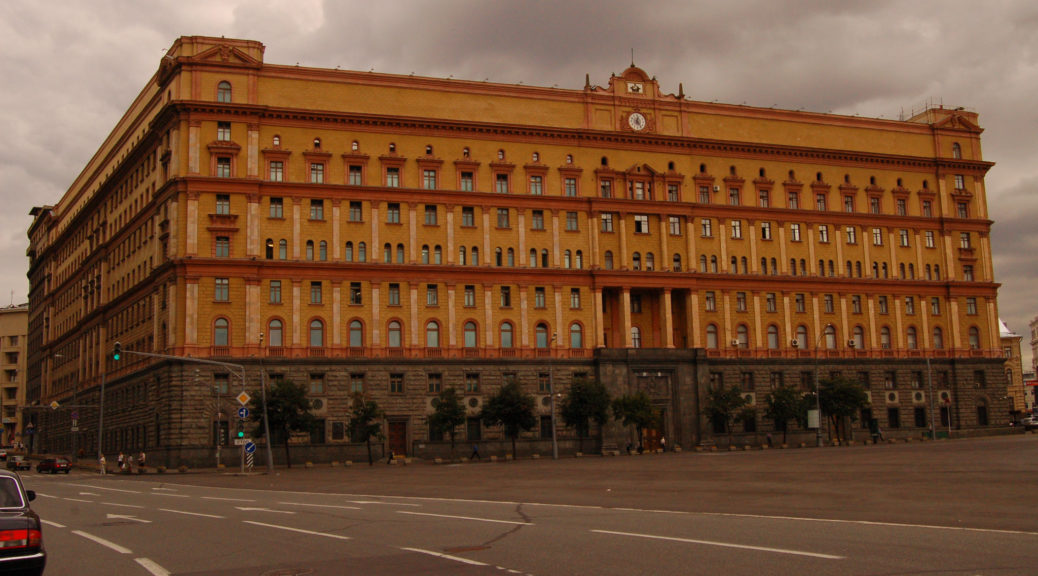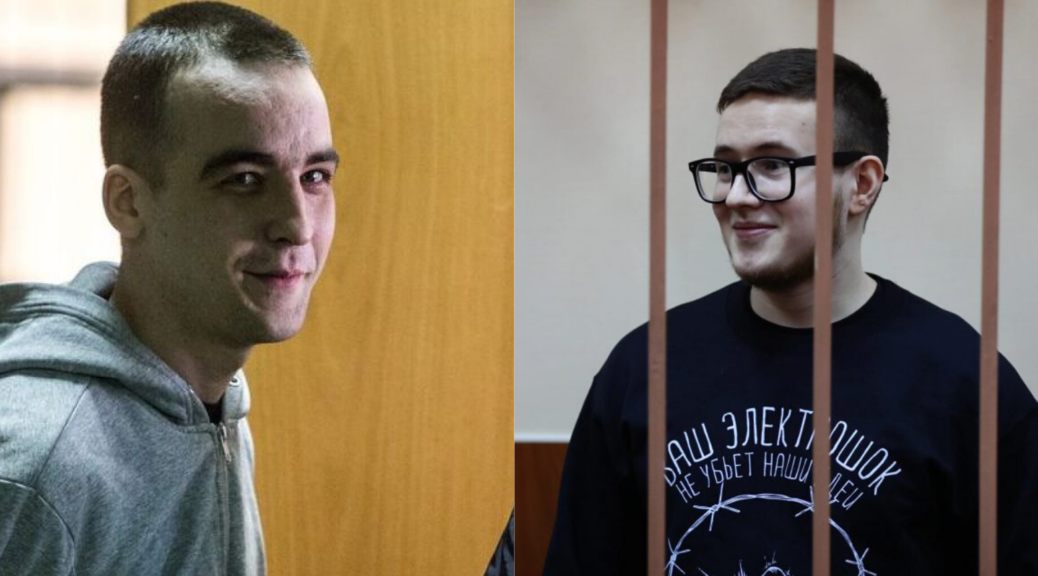All posts by dmitry
On November 4, 2021, 35 OSCE Participating States[1] invoked the Vienna Mechanism and addressed human rights concerns regarding actions by the Government of Belarus, noting the mutual accountability shared amongst OSCE Participating States for full implementation of their OSCE commitments. It requested “concrete and substantial responses” to eight questions that summarised its principal concerns regarding the human rights situation in Belarus.
On 12 November 2021, Free Russia Foundation lodged a submission to the OSCE entitled “Concerning the Decision of 35 OSCE States to Invoke the Vienna Mechanism in Relation to Serious Human Rights Violations in Belarus.”
The submission was addressed to all 57 OSCE Participating States (including Belarus), as well as Helga Maria Schmid, OSCE Secretary General; Margareta Cederfelt, President of the OSCE Parliamentary Assembly; Matteo Mecacci, Director of the OSCE Office for Democratic Institutions and Human Rights; and Wolfgang Benedek, OSCE Rapporteur under the Moscow Mechanism on Alleged Human Rights Violations related to the Presidential Elections of 9 August 2020 in Belarus.
Free Russia Foundation has observed that the Government of Belarus has been unresponsive to OSCE concerns and has no intention to answer the questions. Belarusian civil society, on the other hand, is precluded from responding due to its well-founded fear of retribution and further persecution. Accordingly, Free Russia Foundation prepared this submission articulating responses to the eight questions by the 35 OSCE States.
The Submission asserts that:
- No steps have been taken by Belarusian authorities to investigate allegations that the right to freedom of peaceful assembly is being unduly restricted, that individuals are being arbitrarily detained or arrested, and that numbers of political prisoners are increasing.
- On 26 August 2021, the Investigative Committee of Belarus announced that it would not criminally investigate or prosecute allegations by 680 persons regarding allegations of torture and other crimes under international law.
- Belarusian authorities incite hate and intolerance towards representatives of any political views that contradict the state and that their lack of a proper legal response to hate crimes creates an atmosphere of impunity for offenders.
- Belarusian authorities have hindered the ability of civil society and media actors to document and report on human rights concerns in Belarus and persecuted individuals and groups attempting to do so.
- Belarusian authorities have facilitated irregular migration (to other OSCE Participating States) which puts vulnerable people at risk, impacts on their human rights, and has a destabilizing effect on regional security. In doing so, they use people in a vulnerable position as an instrument of pressure on other countries.
- Belarusian authorities have disregarded its OSCE membership obligations by failing to substantively respond to human rights concerns identified by OSCE Participating States.
- The Government of Belarus has closed at least 185 organizations, arbitrarily arrested dozens of their associates and taken no meaningful steps to engage with civil society. Further, it has taken no steps to respond to the recommendations contained in the 5 November 2020 report under the Moscow Mechanism.
Free Russia Foundation (4freerussia.org) is an international NGO dedicated to advancing democratic development and supporting civil society with centers in Kyiv, Ukraine; Tbilisi, Georgia; Prague, Czechia; Berlin, Germany; Vilnius, Lithuania; and Washington, DC, US.
The submission was prepared in cooperation with Scott Martin of Global Rights Compliance (‘GRC’). GRC is an international LLP working on international human rights, international humanitarian law and environmental law matters throughout the world.
[1] Albania, Austria, Belgium, Bulgaria, Canada, Croatia, Cyprus, Czech Republic, Denmark, Estonia, Finland, France, Germany, Greece, Hungary, Iceland, Ireland, Italy, Latvia, Lithuania, Luxembourg, Malta, Montenegro, The Netherlands, North Macedonia, Norway, Portugal, Romania, Slovakia, Slovenia, Spain, Switzerland, the United Kingdom, Ukraine, and the United States.
A group of deputies from the Russian State Duma, members of the notorious “Commission to Investigate Outside Interference,” established by the Federation Council, has presented a package of new bills for consideration in Parliament. The bills’ objective is to limit rights and harness the Russian criminal justice system to persecute members of the opposition, thereby building a foundation for yet another cycle of repressions against Putin’s adversaries.
The first bill toughens criminal penalties for participating in or leading foreign nongovernmental organizations deemed undesirable by Russia. It proposes sentences of one to four years of imprisonment for participating in these organizations’ activities, and from two to six years for leading them. The bill’s authors have also sought to include punishments for working with “undesirable” organizations for the Russian citizens abroad. Upon returning to Russia, they might face criminal punishment. If adopted, this bill would also significantly increase the definition of “undesirable” organizations to include any foreign or international NGOs acting as intermediaries for monetary transactions on behalf of the organizations already deemed “undesirable” in Russia.
On May 4, the same group of deputies presented another bill. It would ban anyone who ever worked, donated, or was in any way involved with an extremist organization (the text from the State Duma uses the word “consulting”.) Given the practices of Russian courts, this definition would likely be interpreted as broadly as possible against anyone charged. The most outrageous fact is that the bill would violate the Russian Constitution and apply to anyone who ever donated money to Aleksei Navalny’s activities even before they were declared “extremist.” Navalny’s team has already calculated that this ban would affect over 200,000 people who sent donations to one of Navalny’s organizations at some point in time.
Given that any organization, particularly the opposition ones, can be declared undesirable or extremist in Russia, the motive behind these bills is clear. In anticipation of State Duma election campaigns, the Russian government seeks legal means to ban anyone inconvenient for the Kremlin from taking part in politics for years to come.
Unfortunately, there is no doubt that these bills will be adopted either in their current form or even in a more severe form. The bills most likely come from President Putin’s inner circle, and the deputies are fulfilling his wishes, like the obedient servants they are. They are not trying to hide that they are criminalizing the fight against Putin’s dictatorship. It is time to acknowledge the involvement in adopting these laws harmful and destructing. Even though many of those who participated in crimes against freedom and democracy in Russia are already subject to Western sanctions, it is important to understand that most of those crimes would not have been possible without the laws that intensify repressions against the opposition.
State Duma’s deputies are guilty of the latest attempts to entrench Putin’s dictatorship. However, when discussing sanctions against Russian oligarchs, officials, security officers, and departments, the matter of sanctions against members of Putin’s parliament is never raised. It is possible that Western parliamentarians still view them as colleagues who were elected by the Russian people, but their politics have nothing in common with Western values.
Additionally, in recent years, the Presidential Administration approved future candidates for State Duma. This applies not only to political parties allowed to be elected but also to elections in single-mandate districts. To ensure the approved candidates’ victories in their constituencies, no effort or administrative resource is spared, and “dangerous” candidates are either removed from elections or not allowed to take part in them at all. Since the deputies are prechosen, it explains the overrepresentation of former officials and members of law enforcement. Nothing could be further from democracy and transparent elections. It is not possible to respect these individuals or consider them legal representatives reflecting the will of the Russian people. The State Duma and the Federation Council represent and carry out the will of one man – Vladimir Putin. Each new law has one objective: to deny Russian citizens the ability to change the state of affairs in the country.
Russia’s parliament comprised of the State Duma and the Federation Council is the most important component of Putin’s dictatorial machinery. Neither the State Duma’s nor the Federation Council’s members are officially elected by citizens’ vote, yet they are responsible for everything happening in Russia. It is hardly possible to consider it a parliament when Andrei Lugovoi, a person accused of poisoning Aleksandr Litvinenko, is a State Duma member (all criminal charges against Lugovoi have been removed). It will not come as a surprise if following the fall State Duma elections, a whole new faction of saboteurs and poisoners will take office and start adopting new destructive laws.
Putin’s parliamentarians are silencing Russian people’s voices. There is hope that Western sanctions might force them to reconsider their actions. Those behind the most shocking and repressive laws, and those who voted for their approval, deserve the most severe sanctions.
The new round of sanctions against Russia’s authorities naturally begs the question: will they simply backfire, rallying Russia’s citizens around Putin and worsening the already-negative perception of the West? The answer depends on how tangible and bold those sanctions actually are. It also depends on how they are presented to Russian society – not only through state propaganda, but from the West as well, which has various means of conveying its own opinion to Russia’s population.
The key to understanding the true feelings of Russian society and its potential reactions to new sanctions might be found in Putin’s recent address to the Federal Assembly and his nearly simultaneous statements about de-escalating tensions on the Ukrainian border. It is important to not lose sight of the fact that since the early 2010s, Putin has not made a single effort to satisfy Russians who identify with the opposition. He prefers ignoring or intimidating anyone who expresses dissatisfaction with his politics. That is why he first and foremost addresses his base, and focuses on smoothing over his relationship with them and them alone.
The very fact that most of Putin’s address was dedicated to the social problems Russia face and promises to provide all kinds of payments and benefits, whereas the traditional threats to the West and foreign policy and ideology in general were a distant second and presented in a far more peaceful tone speaks volumes about the radical shifts taking place, not only in Putin’s head, but in Russian society as a whole.
First of all, the issue of confrontation with the West, the situation in Ukraine, and international policy are not interesting to Putin’s target audience, and may even annoy them. By all accounts, the night before his address, Putin received reliable information that Russian citizens do not want war on any scale. Not only that, they are so strongly and clearly against the idea, that they can no longer be ignored.
Secondly, Putin’s electorate is poor and does not enjoy a high quality of life. They are becoming increasingly disgruntled. Thus, Putin found himself forced to focus on promises for social assistance for the people, specifically some form of direct payments. He has now tied his own political prospects to his regime’s ability to satisfy growing social obligations in a context of increasing problems on the Russian economy.
Russian domestic politics have now been reduced to the most primitive formula: on the eve of the elections, Putin gives his electorate additional money from the budget, thereby buying their votes and general loyalty. He simply does not have any inspirational slogans or ideology to mobilize society.
As a result, international sanctions designed to hit at the Russian economy and state revenues will also strike a blow to the Putin regime. The minute he is unable to fulfill all of his obligations to the citizens, violence will be the only means left for him to hold onto power. But this time, things will be different – Putin will not just be fighting against the political opposition, but rather the vast swathes of society on which he has relied for the past two decades.
There is no doubt that Putin and his propaganda will attempt to blame the West for all of the trouble, but that approach is already starting to raise some eyebrows.
To begin with, the very idea that the West is capable of inflicting serious damage on the Russian economy through sanctions has broken down some of the peoples’ trust in Putin: it means he is not quite as all-powerful as he claims, and his reassurances that Russia is a strong, independent economy with no fear of any sanctions is nothing more than a lie. What’s more, the people will inevitably start to demand a normalization of relations with the West. Sociologists have already begun to note this phenomenon – if the sanctions are such a burden for Russia to bear, isn’t it time to start seeking paths toward reconciliation with the rest of the world? The ultimate goal of confrontation is inexplicable given that Russian society is decidedly not willing to engage in any wars.
It is important to note that the West has not yet pulled the lever that the Russian opposition has been offering it for many years – large-scale personal sanctions against Putin’s inner circle – Russia’s richest and most influential families, including that of the Russian President himself.
Striking such a blow to the main beneficiaries of the current Russian regime would resolve several issues at once. It would force oligarchs under sanctions to consider decisive steps aimed at removing Putin – if only to save their own capital and international businesses. It would also make it very difficult for Putin’s propaganda to leverage the sanctions to consolidate the electorate. Paradoxically, those who most support the capitalist economy are the same people who oppose Putin, as he relies on poor, embittered people with nostalgia for the USSR, who believe that capitalism and capitalists are evil. Harsh sanctions against the billionaires in Putin’s entourage will arouse nothing but Schadenfreude among these sectors of society, and any appeals for sympathy from the authorities will likely not go down well among those who are mainly concerned with simple survival. The effect will in fact be quite the opposite, once they begin to wonder why the authorities are suddenly so concerned about the very richest, while seemingly unbothered by the problems of the very poorest.
It is important to note that “sanctions against Russia” is a very unfortunate turn of phrase, which is often heard in official statements. This is a gift for Putin’s propaganda machine, and feeds fears about “Russophobia” in the West. In the context of today’s Russia, it would make more sense to talk about “sanctions against Putin,” or “sanctions against the Putin regime,” focusing on the fact that the West, its leaders, and people have nothing against Russia or its citizens, and that a free, democratic Russia and its people would be accepted as friends, partners, and allies. That kind of a shift in focus would make it easier to disseminate the idea in the widest sectors of the population and the administrative and economic elite that Putin is Russia’s problem, and denying him power is the quickest, and in fact the only path toward normalizing all areas of life in Russia.
Speaking at a climate summit of the world leaders organized by the United States, Russia’s President Vladimir Putin, for the first time in history, discussed environmental challenges the way leaders of the developed world discuss the issue. Not only did he recognize the need for urgent action to reduce emissions, but he also vocalized a number of concrete steps to be taken by Russia and called for broad international cooperation. However, taking his statements as a cause for celebration would premature, as they will not result in a major shift in policy.
In order to understand the meaning of Vladimir Putin’s message, one needs to take a close look at the energy policies and energy strategy currently governing Russia’s approach to the issue. The statements made by the Russian president are clearly aimed at two goals. The first goal is to convince the global community that Russia is not an irresponsible polluter unconcerned about the climate crisis, but one of the global leaders in combatting climate change. The second one is attracting foreign investments into climate-beneficial projects in Russia by pretending to be genuinely interested in joining the efforts of the global community to address environmental challenges.
Vladimir Putin began his speech at the summit by restating the line long used by the Russian diplomats at the UN climate talks: Russia’s emissions have declined since 1990 from 3.1 billion to 1.6 billion tons of CO2 equivalent due to Russia’s efforts in “restructuring” its industry and its energy sector.
In reality, the drop in emissions did not happen as a result of the concerted efforts by the Russian authorities, but because of the breakup of the Soviet Union, when one country with its many polluters has split into many.
More important than the validity of historic claims, however, is what Russia intends to do to reduce emissions moving forward. According to the Presidential Decree No. 666 signed in November 2020, Russia’s greenhouse gas emissions are in fact expected to rise by almost 40% by 2030 (VTimes; in Russian). Putin might as well have said at the summit: those tons of carbon dioxide that you won’t be emitting, Russia will gladly emit for you.
Today, about 60% of Russia’s energy needs is satisfied by natural gas, 16% by coal, around 13% by oil, 8% by nuclear energy, and 3% by large hydropower (VTimes; in Russian). When the Russian president says at the global climate summit that 45% of Russia’s energy is produced from low-carbon energy sources, he apparently means not the entire energy sector, but only that generating electricity. But Russia is a northern country. A considerable portion of the energy it produces and consumed is thermal energy and not electricity.
Adopted in 2020, Russia’s Energy Strategy 2035 is unambiguous about the development priorities it lays out for the next decade and a half. At a time when the global community is undertaking sweeping measures to cut its use of fossil fuels and reach carbon neutrality, Russia is planning to ramp up fossil fuel production. In the next 15 years, according to the Strategy’s rather optimistic scenario, coalmining is set to increase by about 50% and gas-drilling — by almost 40%, while oil production is expected to remain at today’s levels.
For all its booming development around the globe, renewable energy, plays a negligible role in Russia. In 2020, its share in Russia’s energy mix was about 1%, and no serious steps to stimulate its growth are envisaged in government plans. Energy efficiency, which could become one of the major areas of climate work, is all but ignored in the Energy Strategy. Today, Russia uses twice as much energy per unit of GDP as the global average, and three times as much as in the European Union.
No efforts are planned by Russia in the foreseeable future to phase out fossil fuels – on the contrary, production and exports are only set to rise. How, then, is Russia planning to curb its emissions?
In his statements at the climate summit, Vladimir Putin spoke about how Russia’s forests absorb large amounts of carbon dioxide – another point stressed repeatedly by Russia’s representatives at the UN climate talks, much like the position that this absorbing capacity is underestimated by the West. In essence, rather than reducing actual emissions, the proposal Russia routinely makes at the climate conferences boils down to simply changing calculation methods to evaluate its forests’ carbon-absorption capacity. However, there is a problem with that approach: as the UN data shows, the capacity of Russian forests to absorb carbon emissions is rapidly depleting due to aging, fires, deforestation, and other factors (VTimes; in Russian). The most pessimistic forecasts anticipate that by mid-century, carbon dioxide absorption by Russian forests will shrink from 700 million tons in СО2 equivalent per year to a mere 100 million. In other words, Russia cannot hide behind its forests anymore.
The Russian president proposes to increase international cooperation to combat climate change and, speaking of climate solutions, mentions specifically carbon-capture technology, nuclear energy, and hydrogen production. Therefore, when Vladimir Putin speaks of providing incentives for foreign investors willing to participate in climate projects in Russia, the audience is led to assume that he speaks of projects in these areas and not just climate projects in general. Such an assumption is erroneous, unfortunately.
There is a prescient term with established international usage to characterize the technologies mentioned by Putin, and that term is “false solutions.” Nuclear generation, for instance, is too expensive and too time-consuming to establish to efficiently bring down emissions, and, furthermore, it entails risks of nuclear proliferation and large-scale accidents.
The real reason Vladimir Putin is promoting nuclear energy is that reactor export projects are used to increase his political influence in other countries. The loans issued by Russia and backed by the Russian budget for the construction of nuclear power plants abroad amount to about $100 billion, yet no investors unaffiliated with the Russian government are willing to participate in these projects (Vedomosti; in Russian).
Within Russia itself, however, nuclear energy development plans are rather modest: fewer reactors are currently expected to be built than are needed to replace the old units scheduled for decommissioning in the coming 10 years. (Heinrich Böll Stiftung; in German).
Russia has designed a floating nuclear power plant that it plans to export to other countries, which means a rather significant nuclear proliferation risk due to the high level of enrichment of the fuel used. Taking into account the extremely underwhelming potential for emissions reduction that nuclear technology can offer, are we prepared to accept the risk of proliferation of nuclear materials all over the planet?
Hydrogen production is a promising direction – but only if this is green hydrogen, that is hydrogen produced using renewable energy. What Russia has in view is producing hydrogen primarily for the purpose of exporting to Europe – and doing so by using fossil fuels (gas) and nuclear energy. The export potential of such very ungreen hydrogen is quite dubious, since, in contrast to Russia, the rest of the world intends to stop using fossil fuels.
And as for carbon capture, the technology behind the idea is nowhere near as developed or effective as it needs to be to help avert the worst consequences of climate change in the foreseeable future. There are indications that it may be possible to trap some of the emitted carbon dioxide, but no clarity exists as to whether it could be stored for long periods of time with no risk of leakage. And let’s not forget, that carbon capture is deemed a false solution precisely because, while diverting attention from the pressing energy transition needs, it lulls one into a hopeful expectation of continuing to burn fossil fuels for as long as the fuels are there to burn.
As one evaluates all the points made by the Russian president in his speech at the summit, the following troubling picture emerges:
- In the next 10 to 15 years, Russia will ratchet up its production and exports of fossil fuels, increasing global greenhouse gas emissions.
- Russia is somewhat open to technologies that may help it put a green sheen on its policies while concealing its contribution to the growing emissions.
- No development of technologies that could lead to real emissions reductions – those in the fields of renewable energy or energy efficiency – are likely.
- And if one sets aside Vladimir Putin’s climate rhetoric and takes a hard look at the real situation at hand, it becomes very clear that Russia’s climate action is only possible to the extent that it is dictated by Moscow’s export considerations. Within the country, the dirtiest sources of energy will still be in use, while the export shipping routes will carry what will be in demand abroad.
The only real way to decrease Russia’s contribution to the global climate burden, therefore, is to stop importing any fossil fuels Russia has to offer.
The events of the past few days have clearly demonstrated that Putin and his regime perceive Russia’s youth, especially its most active and politicized members, as the biggest enemy.
The Kremlin’s attacks on Aleksei Navalny and his movement, attacks on the Internet, attacks on the student-ran magazine DOXA, attacks on education, targeted repressions throughout Russia — all of them in one way or another target youth, more than any other group.
This comes as no surprise. After all, young people are most active online, they are the backbone of Navalny’s movement, they take part in protest rallies, attend all kinds of lectures and discussions, create and consume independent media, travel abroad, and participate in volunteer and crowdfunding projects. Moreover, they share the same information space as their peers around the world — they listen to the same music, play the same video games, follow the same fashion trends, watch the same shows, and generally view the world through the same lense as young people in Western Europe and North America.
Certainly, in each demographic group of Russia’s population there are people who subscribe to Western values; conversely, there are young people in Russia who support Putin. But young Russians generally lead lives and are steeped in values that make them organic opponents of the conservative, backward-looking, retrograde, and xenophobic Putin establishment.
Putin has focused his wrath on Aleksei Navalny precisely because by 44, Navalny has managed to find an approach that appealed to Russian citizens 10, 20, and even 30 years his junior. In contrast, Putin, who has no plans to step down any time in the foreseeable future, simply does not have the creativity, tools, or even desire to reach younger generations of Russians. This makes perfect sense — Vladimir Putin’s electorate base is the older generation, and he is concentrating his efforts on pleasing them, pandering to them, and manipulating their emotions — the most prominent of which is a nostalgia for the days of the Soviet Union.
Had Putin come to power democratically, had he actually faced serious criticism from opponents, and had he gotten used to fighting for every electoral vote, perhaps he would make at least a cursory attempt at appealing to younger voters. But Putin is a product of the KGB and the bureaucratic apparatus. He has never taken part in any free elections, and therefore has no intentions of trying to win over any naysayers.
Outside observers need to keep in mind that when Putin speaks about the Russian people or on their behalf, he is only referring to those who support him. He views anyone who does not support him as a traitor, who should, and in fact must be denied any political standing or representation.
Last week’s story of repressions against the editorial board of a student magazine DOXA is very telling. DOXA gained prominence among the general public in 2019, against the backdrop of protests in response to the Kremlin’s refusal to allow opposition candidates to run for the Moscow City Duma. College students from various Moscow universities took part in the protests, and DOXA threw its support behind them. The publication and its editorial office have been watched by security agencies since then, and by 2021, the surveillance was in full force, culminating in a series of searches, interrogations, and an investigation, resulting in DOXA employees placed under house arrest and officially banned from engaging in any journalistic activity.
It would be absurd to claim that DOXA had any real ability to influence the political situation in Russia or any significant groups of the population. After all, this is a specialized publication for students, graduates, and professors from Moscow’s most prestigious universities. But it is for this exact reason that the magazine has been so closely watched, and reprisals against the editorial staff have been so over-the-top, despite the outpour of support from professors, students, journalists, and members of the creative intelligentsia. The politicization of young people in Moscow is extremely concerning to the Russian authorities. Widespread street protests in the capital have been a nightmare for Putin for years. That is why any approval of protests, taking part in them, or calling on others to join them, particularly among youth, are punished with an increasing severity.
The persecution of DOXA sends a clear and powerful message to all you people in — if the authorities are not afraid to carry out public reprisals against youth in Moscow — in the plain view of the domestic and international public — then no one else can expect any mercy or indulgence, either. Like many other activists in today’s Russia, DOXA’s editorial board is accused of inciting people to take part in unsanctioned rallies expressing solidarity with Aleksei Navalny last January. The video that landed the students in court is entitled They Cannot Defeat the Youth. It was released following Navalny’s arrest, and contains the following words:
“Universities, colleges, and schools intimidate students, threatening them with expulsion or other sanctions. We demand an end to the destruction of education, which our generation has yet to rebuild. The authorities have declared a war on youth, but we are the youth. And we are sure to win.”
The mere mention of schoolchildren in the video has been taken by the authorities as pretext to file the same charges against DOXA’s editorial board as those filed against the head of Navalny’s headquarters, Leonid Volkov — i.e. involving minors in unlawful activities. This includes participation in banned protest rallies.
The video’s description of what is happening in Russia is, in fact, spot on — Putin has, indeed, declared war on youth, and his regime is spending most of its efforts on repressing and intimidating young Russian citizens, effectively subordinating the entire education system to the security apparatus, and preserving the current regime at any cost — robbing entire generations of Russian citizens of their future, condemning them to either leave their own country, or live isolated and in fear of the world.
Putin’s main opposition in Russia today is not the handful of dissidents or political activists who have stood in the streets for decades. It is the vast majority of the Russian youth that is on the rise. The leaders of the opposition today are whoever the youth hold in such regard. For this reason, anyone who is willing and able to support resistance to Putin’s regime would do well to focus their efforts on the younger segments audience. Sooner or later, the youth will inevitably win. And even a mighty dictator such as Vladimir Putin can escape the passage of time and death.
On April 15, 2021, President Biden signed new sanctions against a number of officials and agents of the Russian Federation in connection with malign international activities conducted by the Russian government.
The list of individuals sanctioned by the new law includes Leonid Mikhalyuk, director of the Federal Security Service in the Russian-occupied Crimea.
A report issued by Free Russia Foundation, Media Initiative for Human Rights and Ukrainian Helsinki Human Rights Union in December 202, identified 16 officials from Russian law enforcement and security agencies as well as the judiciary operating on the territory of the Ukrainian Crimean Peninsula currently occupied by the Russian Federation. These individuals have been either directly involved or have overseen political persecution of three prominent Crimean human rights defenders – Emir-Usein Kuku, Sever Mustafayev and Emil Kurbedinov.
Leonid Mikhailiuk is one of these officials. He has been directly involved and directed the repressive campaign in the occupied Crimea, including persecution of innocent people on terrorism charges and massive illegal searches. The persecution of Server Mustafayev was conducted under his supervision. As the head of the FSB branch in Crimea, he is in charge of its operation and all operatives working on politically motivated cases are his subordinates.
Within the extremely centralized system of the Russian security services, Mikhailiuk is clearly at the top rank of organized political persecution and human rights violations.
Free Russia Foundation welcomes the new sanctions and hopes that all other individuals identified in the report will also be held accountable.
Things are heating up on the Ukrainian border right now. To the casual observer, it might look like a repeat of what we saw in 2014. In fact, what we are seeing in 2021 is the exact opposite of 2014, and something far more sinister is afoot.
2014’s attack on Ukraine was a rude awakening for everyone — for Ukraine itself, for Russian society, and for the West. Putin managed to leverage the element of surprise and achieve victory in Crimea. In Donbass, things were not so easy — in part because Ukraine had begun to resist and had time to repel attacks of the Russian-backed separatists.
In 2021, the landscape has turned upside down. Today, no one questions whether Putin is capable of aggression. That reputation for treacherous opportunism has become his trump card in geopolitical games. By all accounts, Putin is convinced that the West will blink first and make concessions, no matter what. This belief lies beneath his increasingly aggressive rhetoric and conspicuous concentration of troops along the Ukrainian border.
While military hostilities could break out at any moment, starting a war is not Putin’s real goal. War, after all, is unpredictable. The Crimean adventure was a success for Putin precisely because it was quick, bloodless, and victorious. If his next war becomes protracted and bloody, Putin will face serious problems with his own nuclear electorate, as well as his elites who would never forgive him for the defeat, and possibly would go even further and attempt to oust him in retribution.
Putin’s goal is not to start a conflict. Instead, he aims to achieve his goals by scaring the Western elites with the very prospect of war. In an extraordinary situation, no doubt, he would be prepared to fight, but only with Ukraine, and only with guarantees that Ukraine would receive no meaningful assistance from the outside. Putin can afford only victory, and he will shy away from any hostilities if failure is in the realm of possibilities.
So, what does Putin really want from Ukraine? Let’s start with the basics: due to a variety of circumstances, Crimea, annexed by Russia, is suffering from water shortages. Prior to the occupation, mainland Ukraine supplied the peninsula with water. In part, Putin’s current theatrics may be aimed at forcing Ukraine to resume supplying Crimea with water. This could easily be “sold” to the Western public as a humanitarian mandate without forcing Putin to renegotiate any key issues. Naturally, to the Russian audiences, it would be presented as a major victory for Putin, and to a large extent, it would be — the water issue would have been resolved, and Ukraine would have made concessions, including indirect recognition of the new Crimean status.
The water issue is just one part of the larger problem. Putin does not need Ukraine as much as he needs to legalize the annexation of Crimea. There are two ways for him to do this. First, he could strongarm the West to start suggesting to Ukraine that it better accept Crimea as part of Russia. Alternatively, he could try to pressure the Ukrainian government directly to recognize Russian sovereignty over Crimea, which would immediately render any Western sanctions moot.
Despite the fact that Russia has dedicated considerable efforts on shaping the public opinion in Western countries, it is Ukraine that the Kremlin views as the weak link — and rightly so. In its current state, the Ukrainian government is unwilling to recognize Crimea as part of Russia, just as it is unwilling to acquiesce to being within the Russian sphere of influence. This means that Russia would need to bring down the current Ukrainian government, and then negotiate with its new authorities on more favorable terms. In this sense, the Kremlin may view the threat of war, and military operations in particular, as a pragmatic attempt to resolve this matter.
But in addition to these goals, there is another, far more sinister and far-reaching goal behind the current escalations. Putin wants the West, and specifically the United States, to recognize him not only as an equal player on the world stage, but also as that free to do whatever he pleases both within Russia and any countries that he considers within its sphere of influence.
In Putin’s dream world, the West would not only stop asking him uncomfortable questions about his repressions on the political opposition or the state of human rights inside Russia but would also actively muzzle his critics around the world, so as not to provoke the dangerous tyrant in the Kremlin who is ready for war at any moment. He clearly views Ukraine and other countries bordering Russia, particularly those that were once republics of the former USSR, as those belonging to Russia’s zone of influence, where no change of government should take place without the approval of the Kremlin. That is why his antics are not just about Ukraine. Unfortunately for Ukraine, it has been used as a convenient testing ground for Putin’s techniques for pressuring the West and intimidating Western political elites with his audacity and willingness to trample on all principles of contemporary international politics.
All of this aside, we can’t lose sight of the fact that Putin’s main goal has always been holding onto power in Russia. People’s lives, the future of entire countries and nations, including that of Russia itself, only concern him in the context of achieving that goal. Just as annexing Crimea in 2014 helped Putin rebrand his regime domestically, becoming significantly more brutal, current situation with Ukraine is likely to lead to similar outcome — Putin’s regime in Russia will become more ruthless, punishing anyone who dares resist him.
For this reason, as tensions rise along the Ukrainian border, the level of police terror is also growing inside Russia. The leader of the Russian opposition, Alexey Navalny, is being held illegally in prison with the treatment amounting to torture, and all critics of the regime are subjected to brutal reprisals. The Kremlin propaganda portraits anyone dissatisfied with the Putin regime as a Western agent, and the authorities have proposed prosecuting them “under wartime laws”.
Putin’s adventurism abroad may indeed lead to war in the near future. Even if we dodge a bullet this time, Western elites need to understand that as long as Putin is Russia’s leader, global tensions will continue to grow, and any concessions made to him will be interpreted as proof that he has chosen the right strategy.
On April 7, well-known Russian opposition politician and Council chairman, Ilya Yashin, a deputy of the Krasnoselsky municipal district, received an electronic notification that a court sentenced him to a fine of approximately 15,000 rubles for taking part in a municipal deputy congress that was later broken up by the authorities. Neither the fact that the congress was broken up nor the fine itself were any surprise in today’s Russia. What is surprising is that Yashin’s trial had been set for the day after, April 8.
Several media outlets picked up the strange notice after Yashin published it on social media. However, on April 8, this did nothing to stop the judge from issuing the same sentence, which had audaciously been sent a day earlier. This was no shock to anyone, least of all Ilya Yashin. Shocking would have been if the judge’s sentence had differed from the one Yashin was notified of in advance. This is how things work in Putin’s court system: After widespread protests, the courts systematically issue the same verdicts and sentences. This is clear proof of what everyone already knows – the courts are biased, and decisions are made in advance of any actual proceedings.
A great deal of criticism has been lodged against Russian courts, but this issue is too serious to simply look away. As a player on the global economy and world stage, the Russian Federation demands that the rest of the world recognize its courts’ decisions. That is to say, an individual who has been convicted of a crime by a Russian court should be recognized as a criminal by the entire world.
To many, this is already misleading. For example, what does it actually mean if someone has been convicted in a Russian court of political extremism or even terrorism? Does it mean that he aided and abetted or actually carried out a criminal act? That he actually killed or was planning on killing peaceful citizens and law enforcement officers? That he held criminal opinions? And if all sentences for these types of convictions are in fact politicized, does it mean that there are no terrorists in Russia?
Problems like these will only grow more complicated. The more politicized court decisions are, and the more examples we have of the courts’ hand in political repression, the less trust there will be in any rulings or sentences from Russian courts. It’s not difficult to imagine where this will lead in the foreseeable future.
There are already many complaints about Russian courts, whether criminal or economic – and in many cases, they are less-than-impartial in these matters. But when it comes to politics, the Russian justice system is irrefutably an instrument of punitive power, with no regard at all for the presumption of innocence or the supposedly adversarial nature of any proceeding.
As in the Soviet Union, political cases are not necessarily tried in political courts. The Russian authorities are in a campaign to paint any critics as common criminals, as if their legal troubles stemmed from their own criminal activities. For this reason, a political trial in today’s Russia is any trial in which the defendant is a political or civil activist, journalist, publisher, politician, or even just a passerby accused by the authorities of taking part in some kind of political activism. The charges themselves in these cases are of little importance, as is any evidence, or lack thereof. For example, historian Yuri Dmitriev, who was researching mass executions in Karelia under Stalin, was charged with pedophilia.
For some time now, the most important evidence in Putin’s courts is the opinion of an expert witness brought on by the investigation or a certificate issued by the intelligence services. In Stalin’s day, investigators would torture their victims in order to extract a confession. Putin’s courts need no such formalities, as they unconditionally trust whatever the investigator has to say, as well as any statements made by experts involved in the case, no matter how biased or unsubstantiated.
All of Alexey Navalny’s court proceedings are the most shameless example of what Putin has done to the Russian court system. Navalny has been tried for stealing timber, commercial fraud, insulting a war veteran, and violating the terms of a suspended sentence. And yet, to any casual observer, it is obvious that in each case the judges were not only biased, but openly working in the interest of the authorities, as part of Vladimir Putin’s punitive system.
Alexey Navalny and Ilya Yashin are no ordinary Russian citizens. But their lot is in no way extraordinary. Because of the publicity that surrounds them, it is easy for anyone to closely follow the workings of the Russian justice system through their cases. Many lesser-known political activists and ordinary citizens have also been tried and convicted for trumped-up charges as they fall victim to Putin’s punitive machine in retaliation for hasty posts on social media. However, as many human rights defenders say, in cases that have nothing to do with politics, the courts nearly always take the side of the investigator. Again, this is no surprise. This is not an issue affecting individual judges, but the system as a whole.
What has happened to Russia’s courts is a feature, not a bug in Putin’s dictatorship. Under Putin’s leadership, Russia’s justice system has been methodically twisted to the point of becoming a targeted instrument of political oppression and justification for any decision made at the very top.
In order to ensure that anyone who is deemed inconvenient is guaranteed the ruling and sentence that best serves the authorities’ needs, officially, all Russian citizens have the right to a fair trial. After all, there can be no court system in which some cases are decided fairly and others are not.
When Russia returns to the democratic path of development, its new leadership will have to put in herculean efforts in order to overhaul the entire justice system. We want to believe that the errors of Boris Yeltsin and his team will not be repeated, and that any judges who have taken part in the system of repression will be dismissed and answer for their crimes. Thousands of cases will have to be reviewed, sentences will need to be overturned, and the very notion of the judiciary’s makeup will need to be reformed. It will take years to return any sense of authority to Russia’s courts in the eyes of Russian citizens and the international community.
In the meantime, it is important to remember that right now, Russian courts and Russian judges are just one more part of Putin’s machine. The judiciary as an institution as it is known in the civilized world has been destroyed in the Russian Federation, and any verdicts or sentences should be seriously questioned in Russia, and especially beyond its borders.
April 8, 2021
We, the undersigned, are shocked and troubled by the most recent news of Alexei Navalny’s condition in prison.
Russia’s leading opposition figure is reported to suffer severe back pain with losing sensitivity in parts of his legs. It is no more than six months since he survived a vicious poisoning attack with a nerve agent that has long-term crippling effects on his health. In prison, he is systematically denied any medical treatment. On top, prison guards wake him up every hour at night, a practice amounting to torture by sleep deprivation according to his lawyers. This is why medical experts called on the Russian authorities to allow Mr. Navalny’s treatment and why he himself now resorted to a hunger strike. Let’s not forget: Mr. Navalny’s incarceration itself is a travesty of justice – he was formally sent to prison for not checking in with Russian authorities on a fabricated case (as confirmed by European Court of Human Rights) when he was recuperating in Germany from poisoning and subsequent coma.
Russian authorities with its secret services tried to kill Alexei Navalny last August, they may now be attempting the same, in a slower, even more cynical way.
Europe has offered Alexei Navalny a place to recover from the attempt at his life. Specialized labs in Germany, France and Sweden confirmed the assassination attempt used Novichok, an internationally banned chemical weapon. Angela Merkel personally met Mr Navalny in hospital and many other Western leaders expressed their solidarity after the poisoning attack. We need to intervene again.
We urge Russia to immediately allow medical treatment of Alexei Navalny and release him from prison. We call on the EU Council as well as EU member states’ leaders to reach out to Russian authorities to request the immediate release of Alexei Navalny, which was mandated by European Court of Human Rights’ decision in February 2021. In addition, we demand the EU Council task EU ambassador to Russia to conduct, together partners from the UK, Canada and the US, a visit of the prison facility and meet Alexei Navalny. It is critical now that Alexei Navalny’s fate became the symbol of injustice many thousands face because of increasing brutality of Russian regime against its own citizens.
In December 2020, the EU launched its Global Human Rights Sanction Regime modelled on so-called Magnitsky Act. This law has been inspired by one Sergei Magnitsky, a brave Russian lawyer who was tortured to death in prison in 2009 – he was systematically denied treatment when he developed a serious medical condition. We still can act now in case of Alexei Navalny so we avoid commemorating later.
Marek HILSER, Senator, Czech Republic
Andrius KUBILIUS, MEP, EPP, Lithuania
Lukas WAGENKNECHT, Senator, Czech Republic
Žygimantas PAVILIONIS, MP, Lithuania
Miroslav BALATKA, Senator, Czech Republic
André GATTOLIN, Senator, France
Mikulas BEK, Senator, Czech Republic
Nicolae ŞTEFĂNUȚĂ, MEP, Renew, Romania
David SMOLJAK, Senator, Czech Republic
Petras AUŠTREVIČIUS, MEP, Renew, Lithuania
Tomas FIALA, Senator, Czech Republic
Liudas MAŽYLIS, MEP, EPP Lithuania
Zdenek NYTRA, Senator, Czech Republic
Dace MELBĀRDE, MEP, ECR, Latvia
Jan SOBOTKA, Senator, Czech Republic
Matas MALDEIKIS, MP, Lithuania
Jiri RUZICKA, Senator, Czech Republic
Bernard GUETTA, MEP, Renew, France
Jaromira VITKOVA, Senator, Czech Republic
Rasa JUKNEVIČIENĖ, MEP, EPP, Lithuania
Petr OREL, Senator, Czech Republic
Tomasz FRANKOWSKI, MEP, EPP, Poland
Miroslava NEMCOVA, Senator, Czech Republic
Hermann TERTSCH, MEP, ECR, Spain
Premysl RABAS, Senator, Czech Republic
Aušra MALDEIKIENĖ, MEP, EPP, Lithuania
Ladislav KOS, Senator, Czech Republic
Attila ARA-KOVÁCS, MEP, S&D, Hungary
Sarka JELINKOVA, Senator, Czech Republic
Erik MARQUARDT, MEP, Greens, Germany
Pavel FISCHER, Senator, Czech Republic
Pernille WEISS, MEP, EPP, Denmark
Helena LANGSADLOVA, MP, Czech Republic
Roberts ZĪLE, MEP, ECR, Latvia
Jan LIPAVSKY, MP, Czech Republic
Klemen GROŠELJ, MEP, Renew, Slovenia
Pavel ZACEK, MP, Czech Republic
Riho TERRAS, MEP, EPP, Estonia
Ondrej BENESIK, MP, Czech Republic
Miriam LEXMANN, MEP, EPP, Slovakia
Frantisek KOPRIVA, MP, Czech Republic
Sandra KALNIETE, MEP, EPP, Latvia
Petr GAZDIK, MP, Czech Republic
Jerzy BUZEK, MEP, EPP, Poland
Tomas MARTINEK, MP, Czech Republic
Janina OCHOJSKA, MEP, EPP, Poland
Jan BARTOSEK, MP, Czech Republic
Eugen TOMAC, MEP, EPP, Romania
Jan FARSKY, MP, Czech Republic
Ivan ŠTEFANEC, MEP, EPP, Slovakia
Roman SKLENAK, MP, Czech Republic
Krzysztof HETMAN, MEP, EPP, Poland
Frantisek VACHA, MP, Czech Republic
Ivars IJABS, MEP, Renew, Latvia
Marek VYBORNY, MP, Czech Republic
Franc BOGOVIČ, MEP, EPP, Slovenia
Zbynek STANJURA, MP, Czech Republic
Radvilė MORKŪNAITĖ-MIKULĖNIENĖ, MP, Lithuania
Petr FIALA, MP, Czech Republic
Raphaël GLUCKSMANN, MEP, S&D, France
Vít RAKUSAN, MP, Czech Republic
Juozas OLEKAS, MEP, S&D, Lithuania
Jaroslav VYMAZAL, MP, Czech Republic
Assita KANKO, MEP, ECR, Belgium
Adela SIPOVA, Senator, Czech Republic
Radosław SIKORSKI, MEP, EPP, Poland
Róża THUN UND HOHENSTEIN, MEP, EPP, Poland
Javier NART, MEP, Renew, Spain
Andrzej HALICKI, MEP, EPP, Poland
Alexander ALEXANDROV YORDANOV, MEP, EPP, Bulgaria
Ondřej KOVAŘÍK, MEP, Renew, Czech Republic
Andreas SCHIEDER, MEP, S&D, Austria
Leopoldo LÓPEZ GIL, MEP, EPP, Spain
Sergey LAGODINSKY, MEP, Greens, Germany
Antonio LÓPEZ-ISTÚRIZ WHITE, MEP, EPP, Spain
Marketa GREGOROVA, MEP, Greens, Czech Republic
Lolita ČIGĀNE, MP, Latvia
Marko MIHKELSON, MP, Estonia
Renata CHMELOVA, Czech Republic
Bogdan KLICH, Senator, Republic of Poland
In 2021, Alexei Navalny, the main opponent of the unchanging head of state Vladimir Putin, is being tortured and unlawfully held in prison in Russia, a nuclear state and member of the UN Security Council, aspiring to the role of a center of modern civilization and world politics. Moreover, Alexei Navalny found himself in jail following the Russian secret services’ failed attempt to poison him with a banned chemical weapon. Although this may sound like dystopian fiction, a scenario of a Bond movie or a dark comic, this is not a make-believe story – this is reality.
Many people living in Russia or closely following the events there cannot understand why Western countries have been so lenient towards Vladimir Putin all these years. After all, Putin has been in power for over 20 years now, and Alexei Navalny is not the first opponent of the Putin regime who has been subject to persecution for his views. Vladimir Putin has the blood of Boris Nemtsov on his hands, as well as of many other men and women who tried to oppose him at different times and for different reasons, not to mention the victims of his foreign policy adventures from Georgia to Crimea, from Syria to the Central African Republic. How many more political assassinations will be carried out before the Western political elite finally realizes what Russia has become under Putin and what regime he has built in the country?
Stronger language could become a big step toward fully grasping the nightmare that Russia is facing. Calling the Putin regime authoritarian or hybrid plays into Putin’s hands. Of course, researchers and politicians who grew up in free societies find these words strong enough. However, they all make the Putin regime look more decent than it actually is and allow the Russian government to avoid unpleasant questions and tough sanctions for years.
Time has come to call a spade a spade: the regime built by Putin in Russia can and should be called fascism. In this case, the term “fascism” would not be a label used for publicity purposes but a statement of fact. Suffice it to recall Umberto Eco’s “Eternal Fascism” essay to realize that the system built by Putin fully meets the criteria described by the author.
Particularly cynical is the behavior of fans of the Putin regime, who like to talk about fascism while attacking their opponents and critics in and outside of Russia. Meanwhile, they consciously juggle with concepts equating fascism with Nazism. This wordplay is not coincidental.
In the modern world, Nazism has become the synonym of absolute evil – and for very good reason. Mass culture has reduced its well-known external attributes to comics-like straightforwardness: antisemitism, racism, uniforms, swastika, a leader in a military jacket making speeches, and death camps. This allows Putin’s propagandists to claim that today’s Russia is not a fascist state since it does not display any of those characteristics.
The Putin regime is in fact not a Nazi one. Indeed, it officially denounces racism and antisemitism. However, even though free of theatrics and straightforwardness of the 1920s and 1930s, the political regime in today’s Russia is a form of modern fascism that inherited the most gruesome traits of its 20th century counterpart. Putin does not have any “death camps,” but the number of people subject to different forms of criminal and administrative sanctions for their political activities in Russia is growing and their treatment is getting increasingly harsh. The case of Alexei Navalny, who was not just thrown in jail but is being systematically tortured there through sleep deprivation and denial of medical care, proves this point.
Beside political terror, Putin is no stranger to the use of political assassinations as a means of intimidating enemies of the regime and taking revenge on people he dislikes in Russia and all over the world. It is the Putin regime’s reliance on physical elimination of its opponents, the criminalization of any opposition and protest activities, and the stigmatization of pro-Western, pro-democracy, and liberal thinkers that give reason to believe that we’re dealing with a modern version of fascism.
Russia has been transformed into a fascist police state the unchangeable leader of which maintains his power through repression, violence, and endless persecution of all those disobedient and opposed to his rule. Human rights are being trampled upon and violated whenever it suits the regime, and citizens have no means of making sure their rights are respected. Constitutional guarantees of respect for human rights and freedoms have become a fantastic notion, and the judicial system serves as an appendix to the punitive one. Russian courts fine and send to prison political opponents of the current government just as readily and ruthlessly as they jail Jehovah’s Witnesses which proves yet again that the Putin regime does not persecute real or even potential extremists but anyone whom it dislikes – sometimes completely irrationally.
There is no reason to believe that a few polite reprimands and symbolic acts will put an end to Putin’s interfering in conflicts all over the world and sending assassins to deal with his enemies and critics of his regime. Such instances will probably increase in number since in the context of the country’s deteriorating domestic problems the regime’s real or alleged successes in its confrontation with the West, and particularly with the United States, remain virtually the only trump cards used for propaganda purposes and to satisfy the ambitions of Putin who still believes himself to be the most influential politician of modern times.
Putin has long ceased to be Russia’s domestic concern – he bids defiance to the entire world order. Moreover, the existence of the Putin regime and the West’s permissive attitude toward it serve as a bad example for the multitude of smaller autocracies and dictatorships from Myanmar to Venezuela. If Putin can disregard the international law, wage wars against neighboring countries, send his assassins all over the world, and keep his critics in prison, why cannot other regimes do the same? This is why the fight with Putin and his regime is very important not just for Russia but for the entire world, and Western leaders should be more confident both in their opinion of Putin and his system and in measures aimed at containing the current Russian regime.
It is in fact absolutely unimportant what US and European politicians publicly call Putin and his regime. It is, however, important for them to admit it at least to themselves that they are dealing with an established fascist regime and his creator and leader.
Photo: Kremlin.ru
On March 31, it was reported that Aleksei Navalny, who is currently imprisoned in a penal colony, began a hunger strike to protest prison officials’ abuse and the refusal to provide him with critical medical care. No one goes on a hunger strike unless they truly have nothing left to lose and no other means to fight for their rights.
The news should alarm anyone concerned about the fate of Navalny or, for that matter, Russia’s fate. If Putin’s government is prepared to go to such drastic lengths to silence Navalny, it is frightening to imagine what it is prepared to do in terms of its domestic and foreign policy.
We can’t lose sight of the fact that Aleksei Navalny’s life is now solely in the hands of one man — Vladimir Putin. The Russian President himself is Navalny’s judge, jailer and executioner. Anyone who claims otherwise has a poor grasp of how the Russian regime is structured, or is simply lying.
Without a direct order from Putin himself, or at least his approval, the FSB would not have spent years stalking members of the opposition, much less have made such a high-profile attempt on the life of Putin’s most prominent critic.
Putin himself has admitted that he gave personal authorization for Navalny to be flown to Germany for medical treatment. It is crystal clear that Putin was also behind Navalny’s outrageous arrest upon his inspirationally courageous return to Russia in January.
The actions of the Russian authorities, and that of Putin himself, in the aftermath of their failed attempt to kill Navalny, drive home the ugly reality that the Kremlin’s sole regret is that Navalny did not die on the spot after they poisoned him. Should we be surprised that those directly responsible for this crime and those who took part in the cover-up are now even more emboldened?
Despite the demands of the European Court of Human Rights for Navalny’s immediate release, he continues to be held in a penal colony in the city of Pokrov in Vladimir Oblast, where investigators, police officers, judges, and prison staff merely follow orders from the very top. Navalny is trapped in a penal colony with no medical assistance worthy of the term, where he is subjected to continuous abuse, not against the wishes of Putin or unbeknownst to him but rather because this is exactly what Putin wants.
No one is surprised to hear that no-holds-barred repression has been unleashed against the Russian opposition. But Navalny’s case is exceptional. There are not many Russians whose name is regularly raised in conversations with Putin by world leaders. And in Russia, there is certainly no other person whose plight brings out hundreds of thousands to the streets in a show of support – while risking their own freedom, health, and well-being. This is what sets Aleksei Navalny apart from so many Soviet-era dissidents, contemporary opposition figures and fearless investigative journalists, whose persecution and even murder never prompted sustained reverberations within Russia, let alone abroad.
While the Russian authorities persecute Navalny, they are also terrified of him. They are trying to destroy him, not as an individual or even as the leader of a handful of dissidents, but as the founder and leader of a powerful opposition movement that Putin has every reason to dread.
The authorities are clearly petrified. Otherwise, they would have no reason to continue intensifying their crackdown on Navalny’s associates and allies, or the thousands of ordinary citizens who took part in the protests they organized. Not a day goes by without someone being sentenced for taking part in January’s nationwide demonstrations of solidarity with Navalny. The closer we get to new protests, the more arrests and politically-motivated persecution we will see.
This is why it comes as no shock to learn that nearly all of Navalny’s inner circle in Russia find themselves under house arrest or in formal detention. Some whose actions offer no grounds for formal prosecution are nonetheless made targets of despicable attacks. The elderly parents of Leonid Volkov, who heads Navalny’s network headquarters, had their apartment searched. Just a few days ago, the 66-year-old father of the FBK Director Ivan Zhdanov was thrown into a pretrial detention center for far-fetched reasons. It is hard to say whether the Kremlin has any specific plan in mind vis-à-vis Ivan Zhdanov, or whether its actions are driven by pure revenge or Stalinesque terror. In either case, the Russian government’s actions evoke only the most profound alarm and sensation of disgust. It goes without saying that confinement of an elderly and not particularly healthy man to a Russian jail cell with four beds for five people is torture by any definition. Moreover, and this surely accounts for such action, the son will suffer anguish – psychological torture – in knowing that his father is suffering and he is powerless to do anything to help.
History has shown that regimes that terrorize their own citizens and critics are prone to start wars of aggression against other nations. The events of 2014 made it clear that Putin’s regime is already there. Since then, Russia’s domestic situation has become more dire, while the terror against critics of the regime has grown more brazen and cruel.
Right now, Navalny and his protest movement in Russia urgently need a demonstration of international solidarity, not only for the sake of noble ideals like freedom, democracy and justice, but to protect global security, as well. The international community has stood by passively for too long, allowing Putin to go too far, both domestically and abroad. Backing down even more or stopping at toothless statements of concern will only make things worse. Without meaningful external pressure, Putin will never stop his aggression. To him, each concession, each instance of eyes delicately averted, each failure to back words with deeds is a new victory, proof that he is untouchable, has chosen the right path, and may act with impunity.
The fight for Aleksei Navalny’s freedom, against political repression, and for free elections in Russia is much more than a moral imperative for honest people everywhere. It is the fundamental duty of all responsible democratic politicians.
Paying a heavy price with his own suffering and the unmistakable threat to his life, Aleksei Navalny is unmasking for all to witness the extent of the Putin regime’s depravity, cruelty, and crimes. Over the last 20 years, thousands of Russian citizens have suffered for their beliefs, and their numbers are growing. Do they need to number in the millions, with Russia’s aggression concurrently spilling out in all directions before the civilized world finally grasps the true scale of the problem and delivers an appropriate response?
According to official Central Election Commission data, in September 2020, Ivan Belozertsev, member of the United Russia party nominated by Putin, won an amazing 78.8 percent of the vote in the first round of the gubernatorial election in Penza Oblast. The results of the election were certified despite the fact that many pro-opposition observers voiced their skepticism about their veracity. Belozertsev occupied the gubernatorial chair until he was arrested in March 2021 on bribe-taking charges and dismissed by the president’s decree.
Despite Belozertsev’s recent electoral triumph and seeming resulting popularity, not one rally in support of the governor has been held. Moreover, no one has even tried to organize one.
Of course, it’s possible one could say that Belozertsev’s voters were completely disappointed in him after learning about the charges. This version, however, is rather questionable. Russian citizens have no trust in the law enforcement services, and there is overwhelming evidence to support this. For instance, the authorities’ official charges against Navalny did not convince his supporters that they were rallying around a criminal. There is an even more powerful example: the arrest and dismissal of Khabarovsk region’s governor Sergei Furgal provoked months-long protests across the region despite the fact that he was being accused of committing different crimes.
So why didn’t the residents of the Khabarovsk region believe the charges against Sergei Furgal and instead rallied and fought for him, while residents of the Penza region behaved the exact opposite? Also, if they suspected Belozertsev of dishonesty, why did they actively vote for him only six months earlier?
The answer is simple. Sergei Furgal is a rare exception to the rule according to which the entire Russian system of government operates. He won as an opposition candidate in a tough struggle against a candidate who was supported by Putin and the entire federal government. This means that all the votes he received had been casted consciously.
Belozertsev’s case is rather typical for today’s Russia though. A former member of the Communist Party of the Soviet Union and ex-military, Belozertsev went into politics under Putin when elections lost their competitive character. Someone so uncharismatic and with such a mediocre background could not obviously be elected to any key position even in the 1990s. However, in Putin’s Russia, it’s not about candidates like by voters who win elections but about those preferred by the authorities. The reason Ivan Belozertsev won his most recent election is not because he had the support of almost 80 percent of his region’s population but that his candidature had been approved by the presidential administration. As a result, he faced no real competition while all administrative resource mechanisms, including mobilization, manipulation, and sheer fraud worked in his favor. This was officially admitted, even though implicitly. Right after the governor’s arrest, the Investigative Committee of the Russian Federation initiated a case about election fraud at one of the polling places where Belozertsev had allegedly won 85 percent of the vote.
The population’s complete indifference with regard to governors’ dismissals despite the seemingly high support during elections is quite natural for Putin’s regime. Thus, former governor of Russia’s Komi Republic Vyacheslav Gaizer was arrested on bribery charges in September 2015, just one year after having received 78.97 percent of the vote thanks to the support of President Putin and the United Russia party. No rallies in his support were held in the Komi Republic following his arrest. In April 2017, Aleksandr Solovyov, the head of Russia’s Udmurtia Region, who had allegedly won the sensational 84.85 percent of the vote in the 2014 gubernatorial election, was removed from office and arrested which, again, did not provoke any support rallies or waves of public outrage across Udmurtia.
All this makes one doubt that the results of gubernatorial elections in Russia reflect the real sentiment of voters, and, naturally, makes one question the population’s support of the current Russian authorities’ policy based on official election results. The cases of Belozertsev, Solovyov, and Gaizer should be brought to mind every time there is talk about Vladimir Putin’s high approval rating, the population’s incredibly strong support of him or his new electoral victories. One should ask oneself whether these numbers actually mean anything and whether those millions of alleged supporters are willing to do anything for their leaders.
The political system built by Putin is not based on the population’s true support but rather on police violence, administrative resource and propaganda-enforced polling and voting results, the authenticity of which is more than questionable. In many respects, Putin copied the Soviet political system that had for many years appeared to be solid and supported by the majority of the population. However, when the Soviet regime collapsed in 1991, no one anywhere went out in the streets in its support. Millions of Communist party members, law enforcement operatives, state servants, and employees of the budget sector not only just passively watched the regime crumble but often welcomed the collapse themselves.
The arrest of Penza governor Ivan Belozertsev has once again demonstrated that in today’s Russia the percentage of the vote received by pro-regime candidates in the elections that they themselves hold has nothing to do with these people’s actual popularity. There is no reason to think that Vladimir Putin’s official approval rating or his election results are any more authentic than the former Penza governor’s questionable electoral achievements.
Even though this may seem incredible today, a day may very well come when Vladimir Putin’s removal from office will not provoke any indignation of the Russian population and his popularity will prove to be nothing but a propaganda myth and a result of election fraud and vote rigging on all levels.
For the past few years, the Russians have been living in an atmosphere of growing political repression. The more things soured for Putin domestically and internationally, the larger the scale of repression grew.
While individual opposition activists have been targeted by this repression for years, its full scale became apparent only in 2021, when winter street protests in support of jailed opposition leader Alexei Navalny were met with the simultaneous detention of over ten thousand people throughout Russia. Over 90 criminal cases were initiated, and thousands of administrative penalties imposed as a result of these protests. Even though months have passed since the January protests, their participants are still having their homes searched, summoned for questioning by the police, and arrested.
The Kremlin widely publicizes these acts of repression in order to intimidate the population. The rationale behind this publicity must be kept in mind while evaluating the mass character and the scale of future protests in Russia. The number of Russians who are unhappy about the current developments in the country is much bigger than the number of protest participants. However, not every Russian is prepared to risk freedom, health, and wellbeing for the sake of expressing their political stance toward the regime, and they cannot be blamed for that.
One should not mistakenly assume that repression is the government’s reaction to protests. Political repression began to escalate last year — approximately 12 to 18 months before the start of the election campaign to the State Duma. The January 2021 protests came as a result of the government’s repressive policy brought into sharp focus by the attempt on the life of Alexei Navalny who, following his return from life-saving medical attention in Germany, was arrested, quickly tried and sent to prison.
The purpose of the government’s efforts is quite obvious: to make it impossible for the most active and widely-known critics of the regime to participate in the upcoming elections due to criminal cases, forced immigration or fear. Unfortunately, in some cases, the regime’s pressure has proven too intense which resulted in tragedies. This was the case when, unable to face further harassment, Nizhny Novgorod journalist and activist Irina Slavina died after setting herself on fire in front of the local branch of the Interior Ministry, a day after her apartment had yet again been searched by the police.
Alexei Navalny’s poisoning or, more specifically, the timing of this assassination attempt can also be explained by the election calendar. Even though Navalny has, for a long time, been a thorn in the Kremlin’s side, it was his open preparations for the upcoming election that moved the government to take drastic action. It is worth remembering that Boris Nemtsov was killed 18 months before the 2016 election to the State Duma for an obvious reason: had he lived to see it, opposition forces could have run a well-organized campaign and would have probably made it into the Parliament. Hence, the conclusion here is that the murder of Boris Nemtsov, the poisoning of Alexei Navalny, and many other similar government acts of repression were not by chance but an integral part of the Putin team’s consistent approach aimed at physically eliminating its opponents in the lead up to important elections.
It would seem that Putin should have no reason to be concerned about the elections since it is the government itself that administers them, and the Russian voting system has long been notorious for its lack of fairness and transparency. Even fraud, however, has its limits.
Both Vladimir Putin’s popularity and the United Russia party’s approval rating have been in a steady decline. Between a fourth and a third of the population remains entirely loyal to Putin: those are the beneficiaries of the regime, the siloviki, state servants, employees of state- and oligarch-owned companies, members of their families, and a considerable number of retirees and representatives of older generations.
This category is flanked by the so-called conformist part of Russian society. Russian conformists support the government per se – not specifically Putin or his regime. However, these people are socially disengaged, and in order to secure their active support in elections, the government has to make a considerable effort to mobilize them through bribery or intimidation.
Another third of the population, which includes young city residents, entrepreneurs, and educated critical thinkers of all ages, is already either opposed to or disapproves of Putin and his regime.
While over-simplified, the matrix described above offers a general sense as to why Putin needs repression and why this approach will keep on gathering steam.
First of all, Putin needs to demoralize and intimidate his critics and opponents the best he can, as well as all Russians who are speaking out against his policies and against him personally. This is why, before any major election, the government turns up its pressure on this segment of the population in order to minimize the role of protest votes.
Second, political assassinations, perpetual harassment of dissatisfied people by state-owned media, street violence, administrative measures and criminal sanctions are meant to make these people look like outcasts in the eyes of the rest of the public. Average citizens need daily proof that, even if they do not like what is happening around them, it is better to remain silent and tough it out. Otherwise, they too will face searches, trials, prison sentences, unemployment, and poverty. Moreover, the repressive machine occasionally devours random people, which can also be considered part of the government’s deliberate policy. Thus, it is hinted to the Russian citizens that even if they just happen to be seen around protesters as bystanders, or if they are suspected of empathizing with them, it still would be enough to ruin their lives — so it is better to stay away from all of this and avoid any opposition-related subjects even online.
Third, repression against the opposition remains virtually the only proof of strength and determination that the government is able to demonstrate to its supporters. By the same token, it serves to underscore to adversaries outside Russia that Putin has infinite resolve, unlimited capabilities, and a categorical refusal to be bound by international law.
It is hard to imagine what measures Putin could now embrace in order to restore his popularity among all segments of the Russian population. Moreover, time is obviously working against him: while the public’s fatigue with Putin’s rule is growing exponentially, the government faces growing economic, social and infrastructure problems that have been further exacerbated by the coronavirus pandemic.
Putin and his closest circle are quite aware that they have neither any attractive mobilizing ideology to offer to the population nor any resources to further bribe it. The only thing they do have is a thriving, well-financed and disciplined repressive machine that will carry out any orders from the top. So, there can be little mystery about why the Putin regime employs repression with conspicuously increasing zeal and on an ever-growing scale. Unfortunately, one must anticipate a further strengthening of this trend since Putin lacks legitimacy with growing segments of the population and lacks any other reliable means of retaining his hold on power.
FOR IMMEDIATE RELEASE
March 25, 2021
Contacts:
Honourable Irwin Cotler, PC, OC, OQ, Raoul Wallenberg Center for Human Rights
+1 514.735.8778
Natalia Arno, Free Russia Foundation
+1 202.549.2417
TRANSATLANTIC INTERPARLIAMENTARY STATEMENT
On unprecedented mass arrest of Russian pro-democracy leaders on March 13, 2021
“We, the undersigned members of the foreign affairs committees of legislatures around the world – the duly elected democratic voices of our constituents and countries – unreservedly condemn the unprecedented mass arrest of Russian pro-democracy leaders.
A violation of the Russian constitution and of the country’s international legal obligations, these unjust and arbitrary arrests are an assault on the last bastion of the Russian democratic movement. United in common cause, we call for an end to Putin’s punitive persecution and prosecutions of Russian civil society leaders, the release of all political prisoners, and the imposition of targeted Magnitsky sanctions against Russia’s architects of repression.
The crimes perpetrated by Putin’s regime against the Russian people and against the international community have been deadly and are well-documented. Left unchecked, its internal repression has often morphed into external aggression. Wars, murders, theft, embezzlement, nuclear blackmail, disinformation, election interference — they are so numerous and now so well-known, that we feel no need to enumerate all of them in this letter. Under the cover of Covid restrictions, we have seen a further intensification of these trends.
Last year, Putin’s regime illegally amended the Russian constitution, executing a constitutional coup, allowing Putin to stay in power indefinitely and thereby formalizing the Russian transition to authoritarianism.
In January, he arrested Aleksey Navalny, who was punished with a nearly three-year prison term for not meeting his parole obligations because he was out of the country convalescing from a state-sponsored assassination attempt. Putin then brutally suppressed the nation-wide protests that emerged in Navalny’s support, arbitrarily arresting thousands, and launching criminal prosecutions against them.
On March 13th, security services entered a perfectly lawful Congress of elected municipal deputies and detained nearly 200 people for not adhering to the Kremlin’s command of how to interact with local constituents. In today’s Russia, disagreeing with Putin is not tolerated, and those who do find themselves in jail or worse.
Some of those detained included elected leaders like Ilya Yashin and Maxim Reznik, pro-democracy reformers Andrey Pivovarov and Anastasia Burakova, and popular politician Vladimir Kara-Murza. Mr. Kara-Murza is a top public intellectual and opposition leader whose transformative work on behalf of the Russian people has had a global resonance. His vision and values – eloquently conveyed with a uniquely compelling moral clarity and commitment, often before our respective legislatures – led to his earlier being targeted by the regime for assassination, attempts on his life that he survived twice. The work of such courageous leaders continues to be a source of inspiration in our pursuit of collective peace, security, and dignity for all.
For a society to succeed it must have a set of principles and values that guides it. Most notably, this includes a legal system that honors the rights of all its people and not solely for those who deem themselves leaders and the sycophants who profit from them.
Sadly, these recent developments demonstrate yet again that only Putin’s criminality and impunity prevail in Russia today. The way the regime runs its politics is indistinguishable from the way it runs its foreign policy and its business dealings. To indulge such malign behavior by the Kremlin toward those it disagrees with is to encourage its corrosive behavior in all these other areas.
The democracies of the world have a choice: maintain a normal relationship with a rogue state, continuing to send the message that its treatment of its own citizens is to be overlooked, and its malicious activities are to be condoned. Or, sending a clear and compelling message: that until the Kremlin reverses its troubling trajectory, the current status quo will be unacceptable. This includes targeted sanctions against Putin and his corrupt and criminal cronies – such as canceling access to our banking system, business ties, and safe harbor in our best neighborhoods and schools – ensuring that they cannot enjoy the liberties in our countries that they deny their compatriots in theirs.
For the sake of a free Russia and a free world, we trust democracies will make the right choice.”
Rasa Jukneviciene, Member of the European Parliament
Andrius Kubilius, Member of the European Parliament
Miriam Lexmann, Member of the European Parliament
Pavel Fischer, Chairman of the Committee of Foreign Affairs, Defence and Security of the Senate of the Czech Republic
Marko Mihkelson, Chairman of the Foreign Affairs Committee of the Parliament of Estonia
Richards Kols, Chairman of the Foreign Affairs Committee of the Seimas of the Republic of Latvia
Žygimantas Pavilions, Chairman of the Foreign Affairs Committee of the Seimas of the Republic of Lithuania
Bogdan Klich, Senator, Chairman of the Foreign and European Union Committee of the Senate of the Republic of Poland
Eerik Niiles Kross, Member of the Foreign Affairs Committee of the Parliament of Estonia
Emanuelis Zingeris, Member of the Committee on Foreign Affairs of the Seimas of the Republic of Lithuania
Benjamin L. Cardin, Member of the U.S. Senate Committee on Foreign Relations, Subcommittee on Europe and Regional Security Cooperation; Chairman of the Commission on Security and Cooperation in Europe (U.S. Helsinki Commission)
Bill Keating, Member of the U.S. House Committee on Foreign Relations and Chair of the Subcommittee on Europe, Eurasia, Energy, and the Environment
Brian Fitzpatrick, Member of the U.S. House Committee on Foreign Relations
Kimberley Kitching, Senator, Chair of Foreign Affairs, Defence and Trade References Committee, Deputy Chair of Foreign Affairs, Defence and Trade Legislation Committee, Parliament of Australia
Chris Bryant, Member of the Foreign Affairs Select Committee of the UK Parliament
Bob Seely, Member of the Foreign Affairs Select Committee of the UK Parliament
In order to ensure his dominance in the media space on the eve of a new electoral cycle, Putin is willing to use any means including the blocking in Russia of the world’s major social media, including Twitter, Facebook and YouTube. Despite the fact that it will be extremely hard to carry this out, and that the regime itself will likely suffer the most negative impact of such decisions, their potential costs do not scare the Kremlin nearly as much as the continuously growing influence of social media on Russia’s political life.
Trojan Horse of the West
For Putin, the Internet is the embodiment of not just everything Western but especially of everything American. He has repeatedly called the Internet a “CIA project.” As a matter of fact, this thesis is key to understanding Putin’s entire policy with regard to the Internet.
In his eyes, the global Internet system is above all enemy technology that brings nothing but trouble to either Russia or to him personally.
It is possible that this perception of the Internet explains the current Russian government’s shameful penchant for hacking attacks on the United States and Western countries. If the Internet is a “CIA project,” then cyber attacks are nothing but an attempt at fighting the enemy with its own weapons. Moreover, these are not even attacks but rather self-defense actions because, in the Kremlin’s logic, the attack on Russia is perpetrated by the West through the means of a global communication network under its control.
Thus, in Putin’s eyes, the Internet is a Trojan horse that the West uses to control the world, Russia, and, in practical terms, to deprive Putin himself of power.
Everything He Hates
Beside the Internet’s questionable origins and de facto control, Putin also sees it as the hub of all things contradicting his political experience and his understanding of politics in general. First of all, at the time when Putin came of age, became a politician, and, most importantly, came to power in Russia, the Internet played no role in social life.
For an insignificant KGB officer in the 1980s and 1990s, a career in politics, his anointing as Russia’s president and his retention and consolidation of power – all of this was only possible in the context of minimal visibility and transparency of political decision-making along with the dominant role of traditional media under the Kremlin’s increasingly tough control since the Yeltsin times.
And suddenly, the Internet gave back to Russian citizens all the things that Putin had been so laboriously taking away from them: free information exchange, the possibility of discussion, and opportunities to work together and raise funds to achieve goals, all of this while avoiding the government’s control and restrictions.
It is important to mention that the Internet became a political factor only after the emergence of social media that facilitated the exchange of information between people to the fullest degree while providing everyone not just with access to any information but also with opportunities to share it.
The first wave of the Russian government’s interest toward the Internet was prompted by the Arab Spring. After the Russian street protests of 2011 and 2012, the Kremlin became firmly convinced that the Internet was becoming a factor supportive of political struggle.
Two Russias
Putin and his close circle confuse cause and effect: they believe that Russian citizens do not turn of their own volition to the Internet to express their discontent with current developments in their country because they basically have no other options available, but rather that the West uses the CIA-made Internet and US social media companies to “muddy the waters” in an effort to change the regime. This is why any measures aimed at restricting Internet access and the activity of major social media companies in Russia – even imposing a total ban on them – should not come as a surprise. In his efforts to retain his hold on power, Putin does not deem any measures excessive or superfluous.
These are not the only reasons why the Russian authorities are concerned with the Internet. Today, the attitude toward the Internet represents the main divide in Russian society. Putin’s core electorate and people who continue to be deeply influenced by state propaganda are primarily older generations of Russians who either do not use the Internet at all or use it to a limited extent as a supplement to more traditional forms of acquiring information – television, radio, printed media, or, in other words, state-controlled resources that broadcast state propaganda.
On the other end of the spectrum, there are people who have thoroughly familiarized themselves with the Internet and are able to utilize effectively its potential as a resource. These are primarily younger generations of Russians. Despite demographic problems, Putin is growing increasingly concerned with Russia’s youth because he is not as popular among young people as he is among older generations. Meanwhile, he has no means of reaching young people. Attempts at spreading state propaganda online have not proved very successful: key topics of propaganda – nostalgia for the Soviet Union, hatred for the West, and endless celebrations to mark Russia’s victory in WWII – are met by younger Russians with neither interest nor understanding.
Fight over the Internet
Putin’s critics have a diametrically opposite attitude toward and relationship with the Internet: having no access to nationwide media, they are popular and active online and on social networks.
For instance, Alexei Navalny owes his career and popularity to the Internet that has become his political pulpit, his media resource, a means to raise money to finance his activity, and has helped form the movement of his supporters. It is quite logical that, having authorized reprisals against his main opponent on the eve of a new electoral cycle, Putin is prepared to eliminate the possibility of anyone emulating Navalny’s path.
The fight over the Internet is becoming a fight for survival of Putin’s regime. The threat to block major social media companies in Russia and the imposition of stiff fines to put pressure on them represent regime attempts to blackmail them into submissiveness and cooperation. In this way, the Kremlin aims to assert full control over their activities in Russia and to oblige them to help Putin fight against any political opposition.
The attack on Twitter is a test, the opening shot of a big war. It is obvious that, being the source of uncensored information including about the Russian President and the methods he and his close circle are using to govern Russia, YouTube has become Putin’s main concern. Although even the Russian President has not dared thus far to pick an outright fight with Google, he is certainly getting ready for it.
Hopefully, social media giants will not give in to blackmail and turn into obedient instruments of the Russian government’s repressive policies. Together with American society, they should realize that the Internet today is the field of battle between freedom and its antithesis, between authoritarianism and democracy, and not just in Russia.
Vladimir Kara-Murza, a prominent Russian pro-democracy advocate, was closely tracked by an FSB assassination squad when he suffered perplexing and near-fatal medical emergencies that sent him into coma in 2015 and 2017, establishes a new investigation by the Bellingcat group.
Documents uncovered by Bellingcat show that this is the same assassination squad implicated in the August 2020 assassination attempt on Alexey Navalny and whose member has inadvertently confirmed the operation in a phone call with Navalny.
Bellingcat has also established the FSB unit’s involvement in the murder of three Russian activists, all of whom died under unusual but similar circumstances.
Taken together, these independent nongovernment investigations establish the fact of systemic, large-scale extrajudicial assassinations carried out by Putin’s government against its critics inside and outside of Russia, including with chemical weapons banned by the Chemical Weapons Convention.
Free Russia Foundation calls on the international community to formally investigate and prosecute Putin’s government for these crimes.
Free Russia Foundation calls on the Biden Administration to direct the FBI to release investigation materials surrounding the assassination attempts against Vladimir Kara-Murza that have been denied to him thus far.
Free Russia Foundation calls on the international community to articulate measures to compel Russia to free Alexey Navalny from his illegal incarceration where his life remains in dire danger.
The Kremlin’s Social Media Influence inside the United States: A Moving Target is a report co-authored by Maria Snegovaya and Kohei Watanabe summarizing key insights of their analysis of social media behavior on Twitter during the 2020 US Presidential elections.
The study scopes out the Kremlin’s malign social media operations in the United States, their key purveyors, platforms and enablers. It analyzes how the Russian approach to conducting social media campaigns targeting domestic audiences in the US has evolved since 2016 and whether its efforts can be deemed successful or effective.
Snegovaya and Watanabe attempt to determine what demographic characteristics make specific members and segments of the US audience more susceptible to the Russian disinformation campaigns and how that impacts their voting behavior. The report articulates a list of policy recommendations for improving the US society’s resilience to the Russian malign influence campaigns.
On February 11, 2021, the DFR Lab at the Atlantic Council hosted a discussion of the report. You may view the recording of the event here: https://www.atlanticcouncil.org/event/foreign-interference-us-politics-kremlin/
On January 14, 2021, the European Court of Human Rights published its decision on the case “Ukraine v. Russia”. The Grand Chamber of the Court has recognized complaints No. 20958/14 and No. 38334/18 as partially admissible for consideration on the merits. The decision will be followed by a judgment at a later date.
The case concerns the consideration of a violation of the European Convention on Human Rights related to Russia’s systematic administrative practices in Crimea.
The admissibility of the case is based on the fact that, since 2014, the Russian Federation has exercised effective control over the territory of Crimea, and, accordingly, is fully responsible for compliance with the norms of the European Convention on Human Rights in Crimea. The Court now needs to determine the specific circumstances of the case and establish the facts regarding violations of Articles of the Convention during two periods: from February 27, 2014 to March 18, 2014 (the period of the Russian invasion); and from March 18, 2014 onward (the period during which the Russian Federation has exercised effective control over Crimea).
The Court has established that prima facie it has sufficient evidence of systematic administrative practice concerning the following circumstances:
- forced rendition and the lack of an effective investigation into such a practice under Article 2;
- cruel treatment and unlawful detention under Articles 3 and 5;
- extending application of Russian law into Crimea with the result that, as of February 27, 2014, the courts in Crimea could not be considered to have been “established by law” as defined by Article 6;
- automatic imposition of Russian citizenship and unreasonable searches of private dwellings under Article 8;
- harassment and intimidation of religious leaders not conforming to the Russian Orthodox faith, arbitrary raids of places of worship and confiscation of religious property under Article 9;
- suppression of non-Russian media under Article 10;
- prohibition of public gatherings and manifestations of support, as well as intimidation and arbitrary detention of organizers of demonstrations under Article 11;
- expropriation without compensation of property from civilians and private enterprises under Article 1 of Protocol No. 1;
- suppression of the Ukrainian language in schools and harassment of Ukrainian-speaking children under Article 2 of Protocol No. 1; 6
- restricting freedom of movement between Crimea and mainland Ukraine, resulting from the de facto transformation (by Russia) of the administrative delimitation into a border (between Russia and Ukraine) under Article 2 of Protocol No. 4; and,
- discriminating against Crimean Tatars under Article 14, taken in conjunction with Articles 8, 9, 10 and 11 of the Convention and with Article 2 of Protocol No. 4 to the Convention.
Cases between states are the rarest category considered by the ECHR. Almost all cases considered in Strasbourg concern individuals or organizations and involve illegal actions or inaction of the states’ parties to the Convention. However, Art. 33 of this Convention provides that “any High Contracting Party may refer to the Court the question of any alleged violation of the provisions of the Convention and its Protocols by another High Contracting Party.” In the entire history of the ECHR since 1953, there have been only 27 such cases. Two of them are joint cases against Russia, both of which concern the Russian Federation’s aggression on the territory of its neighboring states, Georgia and Ukraine.
While 2020 gave us unprecedented challenges, it created transformative changes in the way we work and communicate. The hours of Zoom calls seemingly brought us all closer together as we got a glimpse into each other’s makeshift home offices along with interruption by kids and the family pets. Remote work also made us appreciate human interactions, in-person events and trips much more!
As 2020 comes to an end, we want to especially thank our supporters who continued to believe in our mission and the value of our hard work, and we hope the coming year brings all of us progress and growth for democracy throughout the world. We’d also like to thank our partners and staff in the U.S. and abroad, and we know how hard everyone has worked under difficult world changes to achieve so many of our objectives this year.
We send our best wishes to all who have stayed in the fight for democratic reforms and for the values of basic human rights. We look forward to a new year with the hope of many positive changes to come.
– Natalia Arno and the Free Russia Foundation team.
On December 11, 2020, Prosecutor of the International Criminal Court (ICC) Fatou Bensouda, issued a statement on the preliminary examination of the situation in Ukraine by the ICC Office of the Prosecutor.
According to the findings of the examination, the situation in Ukraine meets the statutory criteria to launch an investigation. The preliminary examination of the situation in Ukraine was opened on 24 April 2014.
Specifically, and without prejudice to any other crimes which may be identified during the course of an investigation, Office of the Prosecutor has concluded that there is a reasonable basis at this time to believe that a broad range of conduct constituting war crimes and crimes against humanity within the jurisdiction of the Court have been committed in the context of the situation in Ukraine.
These findings will be spelled out in more detail in the annual Report on Preliminary Examination Activities issued by the Office and include three broad clusters of victimization:
1. crimes committed in the context of the conduct of hostilities;
2. crimes committed during detentions;
3. crimes committed in Crimea.
These crimes, committed by the different parties to the conflict, were sufficiently grave to warrant investigation by Office of the Prosecutor, both in quantitative and qualitative terms.
Having examined the information available, the Prosecutor concluded that the competent authorities in Ukraine and/or in the Russian Federation are either inactive in relation to the alleged perpetrators, or do not have access to them.
The next step will be to request authorization from the Judges of the Pre-Trial Chamber of the Court to open investigations.
The Prosecutor urges the international community, including the governments of Ukraine and Russia, to cooperate. This will determine how justice will be served both on domestic and the international level.
We remind you that on September 21, 2020, Free Russia Foundation sent a special Communication to the Prosecutor of the International Criminal Court (the Hague, the Netherlands) asking to bring Crimean and Russian authorities to justice for international crimes committed during the Russian occupation of Crimea.
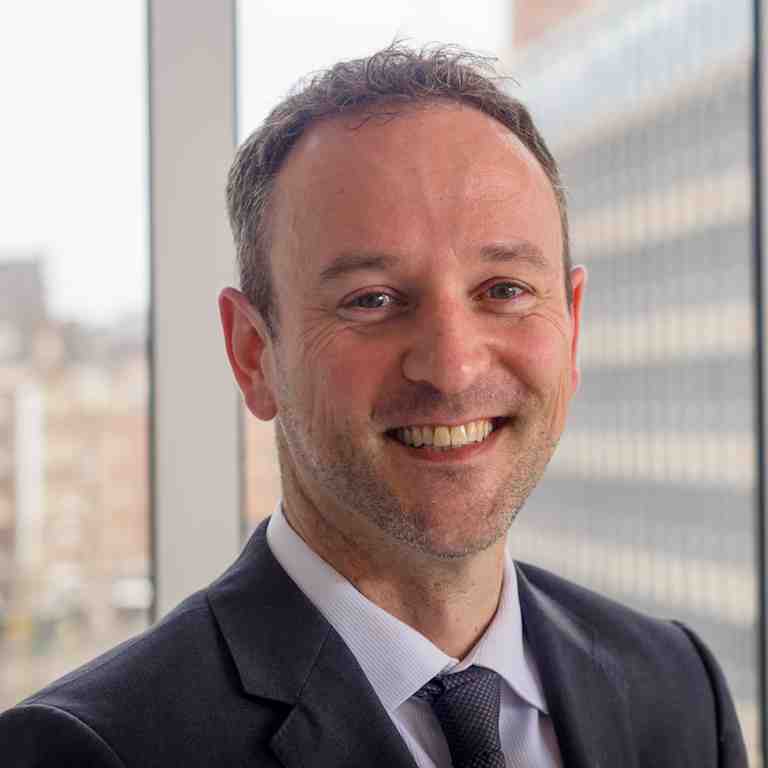
Comment by Scott Martin (Global Rights Compliance LLP):
As Prosecutor Fatou Bensouda reaches the end of her tenure as Chief Prosecutor of the International Criminal Court, she announced yesterday that a reasonable basis existed to believe that a broad range of conduct constituting war crimes and crimes against humanity had been committed in relation to the situation in Ukraine. One of the most consequential preliminary examinations in the court’s short history, the Prosecutor will now request authorization from the ICC Pre-Trial Chamber to open a full investigation into the situation.
Anticipating that the Prosecutor’s request will be granted, the ICC Prosecutor’s office will be investigating the second group of alleged war crimes and crimes against humanity perpetrated by the Russian Federation (the situation in Georgia being the other). This would make Russia the only country in the world facing two separate investigations at the ICC for crimes under its jurisdiction.
In this exclusive and groundbreaking report, Free Russia Foundation has translated and published five documents from the GRU, Russia’s military intelligence agency.
The documents, obtained and analyzed by Free Russia Foundation’s Director of Special Investigations Michael Weiss, details the GRU’s modern psychological warfare program and are dated from within the last decade. The documents include the memoir of a former colonel in the Soviet Unions’s Special Propaganda Directorate who explains how psychological and information operations were conducted at the tail-end of the Cold War, and then adapted for the post-Soviet era. The documents also include the organization of psychological warfare, down to the military unit, as well as the theory and practice of working over targets in the West.
On 21 September 2020, the Free Russia Foundation submitted a Communication to the International Criminal Court Prosecutor’s Office (in The Hague, Netherlands) seeking accountability for Crimean and Russian authorities concerning international crimes perpetrated during Russia’s illegal occupation of Crimea. The Communication was prepared in cooperation with Global Rights Compliance and Center for Civil Liberties and is based on a focused inquiry conducted over the past year. In our inquiry, we documented crimes as part of a systematic, planned attack by the Russian state against civilians and groups in Crimea in order to discourage them from opposing the illegal occupation of Crimea and to force their departure from the peninsula. Crimes against civilians included unlawful arrests, beatings, torture, enforced disappearances, and other inhumane acts causing severe mental and/or physical pain. In particular, the crimes targeted the Crimean Tatars, a native ethnic group who had only recently returned to their homeland, having previously been forcefully and brutally displaced by the Soviet Union in 1944.
One of the principal coercive acts was the illegal detention and concomitant violence before, during, and after the imprisonment of political prisoners. Most of those detained were arrested by Russian and Crimean authorities on terrorism charges, but it was their legal, pro-Ukrainian advocacy that led to their imprisonment. In addition, trials of those arbitrarily detained were conducted in wholesale disregard of their fair trial rights. For example, some of those illegally imprisoned were denied a speedy trial, access to independent lawyers, and the opportunity to defend themselves against their arrest in a courtroom.
In order to force those illegally detained to confess to crimes they did not commit, Russian and Crimean authorities also perpetrated acts of torture and cruel or degrading treatment, the levying of additional charges against them, even more inhumane prison conditions, denial of communications with their families and threats made against them, enforced disappearances, and even, in at least one case, a mock execution.
Other inhumane acts include “punitive psychiatry” and the denial of adequate prison conditions, including the following: (i) feeding people inedible food or, at times, no food at all; (ii) facing severe overcrowding in prisons; (iii) denial of regular water supply; (iv) threats of assault against them by prison cellmates; and (v) adding pork to food – prohibited for observant Muslims. Further, medical attention was systematically inadequate or denied for many individuals.
Concerning acts of torture, it was perpetrated by different Russian authorities, including the FSB. Allegations include the use of electric shocks in an effort to get an accused to confess. One was beaten in the head, kidneys, arms and legs with an iron pipe. With another, fingers were broken. Still another endured spinal bruises and having a plastic bag placed over his head to the point of unconsciousness. Further, threats of sexual violence against a detained man were made. Murder as well. Hands were broken, teeth were knocked out in still another.
Trials were largely held behind closed doors for illegitimate reasons, and many of the witnesses were secret not only to the public but also to the Accused. Further, credible allegations exist that, at times, there were FSB or other agents in the room, silently instructing witnesses what to say and how the judges should rule. This adds credence to words, according to the Kyiv Post, heard by Arsen Dzhepparov from a senior FSB lieutenant who stated “I will prove by all possible – and impossible – means that [an Accused is] guilty – even if he isn’t guilty”.
Concerning the crime of persecution, nearly all of these deprivations of fundamental rights were carried out with discriminatory intent. Specifically, these groups were targeted due to their political view – namely, by peacefully opposing the illegal occupation of their country. Some were targeted on ethnic grounds or religious grounds on the basis of their Crimean Tatar background.
War crimes, another group of crimes punished at the ICC, were also perpetrated in addition to or in the alternative to the crimes against humanity. This includes the crime of torture, outrages against personal dignity, unlawful confinement, wilfully depriving protected persons of the rights of a fair and regular trial, and the transfer of the occupying power of parts of its population into the territory it occupies or the deportation of all or parts of the population of the occupied territory within or outside this territory.
All these crimes had the ultimate objective of the criminal enterprise – the removal of pro-Ukrainian elements out of Crimea and the annexation of Crimea into the Russian Federation without opposition, including the installation of pro-Russian elements, which include the emigration of more than 70,000 Russians, the illegal imposition of Russian law in the occupied territory, forcing Russian nationality on many Crimeans, and the appropriation of public property.
Ultimately, we hope that all the information gathered by the ICC in the context of its preliminary investigation will lead the ICC to investigate mid- to high-level Russian and Crimean officials on this basis. The international community expects responsible global leadership that follows the rule of law and expects it – no matter the situation – to be respected, especially from a state that is a permanent member of the UN Security Council. When this fails to happen, the international community must demand accountability. We hope that an investigation can be opened and responsible officials of the Russian Federation will be investigated. After an investigation that conforms to international best practices, responsible persons should be charged with the systematic perpetration of international crimes.
In this September 2020 analysis, Free Russia Foundation’s Fellow Alexander Morozov chronicles the unraveling of the political crisis in Belarus unleashed by Lukashenka’s illegal efforts to hold on to power despite a broad national demand for change.
Morozov describes the growth of the Belarus protest movement and traces the emergence and evolution of the Coordinating Council, its strategy, key positions and figures.
The report then delineates the positions of important stakeholders, the response of the European Union, and of various national European governments; and the U.S.
Morozov dedicates a special focus to the role of Russia in the crisis in Belarus; discussing how the protracted standoff between Lukashenka and Putin had shaped the 2020 Belarusian presidential elections and how the Kremlin’s regional objectives are framing Lukashenko’s emerging options and choices.
Morozov offers a near-term forecast and policy options for democratic countries and international organizations for resolving the political crisis in Belarus.
Yevgeny Prigozhin, or “Putin’s chef,” as he’s called in the press, is notorious for two things: dispatching Russian mercenaries into war zones and running a troll farm accused of interfering in democratic elections. This report by Michael Weiss and Pierre Vaux features new insights, including leaked materials from within Prigozhin’s own organization, into how his operation in Africa has evolved into the realm of political consultancy and “election monitoring” using a network of European far-right extremists.
The Memorial Human Rights Center recognized Ivan Lyubshin, a resident of Kaluga, as a political prisoner. The criminal case against him should be closed, he should be immediately released, and his allegations of torture should be objectively investigated.
Continue reading The Kremlin’s Political Prisoners: The Case of Ivan LyubshinToday, the German government has announced that Russian pro-democracy leader Alexey Navalny was poisoned by Novichok. Novichok is a deadly nerve agent developed by the Soviet government chemical weapons program and used on several occasions by the Russian government to kill its critics in the recent years.
To restate the obvious, Novichok is a poison that can only be accessed with the authority of the Kremlin. Therefore, today’s announcement by German officials directly implicates the Kremlin and Putin in the high-profile assassination attempt on Navalny.
The choice of Novichok was not just a means to silence Mr. Navalny, but a loud, brazen and menacing message sent by Putin to the world: dare to criticize me, and you may lose your life.
The announcement by the German government of its intent to formally notify the Organization for the Prohibition of Chemical Weapons (‘OPCW’) of the use of Novichok against Navalny is a meek bureaucratic half-measure that fails to acknowledge the extraordinary threat to human life posed by Putin’s regime everywhere. Taken together with Angela Merkel’s promise earlier this week to help Putin finish his Nord Stream 2 pipeline despite an international outcry amounts to condoning the poisoning and normalizing it into a new modus operandi where Putin’s murders go unpunished. Free Russia Foundation urges the leaders of the EU, its Member States and the U.S. Government to take an urgent and drastic action to punish the perpetrators of this heinous crime not only to serve justice, but to establish a powerful deterrent against new attacks by Putin’s regime globally.
Case Update:
Despite of the obvious political motivation of the criminal charges against Airat, on August 24, 2020, the Central District Military Court sentenced Airat Dilmukhametov to 9 years in a strict regime colony. He was found guilty on four counts: public calls for separatism, public justification of terrorism, public calls for extremism and its financing. Continue reading The Kremlin’s Political Prisoners: The Case of Airat Dilmukhametov
We are deeply concerned with information recently distributed by the well-respected authoritative source Center “Dossier.” According to “Dossier,” the Kremlin is using Russian political expert Sergey Mikheev and consulting company “Politsecrets” to manipulate Georgian society, distribute disinformation and anti-democratic narratives, undermine Georgia’s Western aspirations, and interfere in free and fair elections in Georgia scheduled for October 2020.
Continue reading Free Russia Foundation Statement on Kremlin’s Interference in Elections in GeorgiaFree Russia Foundation is gravely concerned about the life and safety of Alexey Navalny. Continue reading Free Russia Foundation Calls for Investigation into Alexey Navalny’s Poisoning
The Memorial Human Rights Centre, in accordance with international guidelines, recognized Oleksandr Marchenko as a political prisoner. Continue reading The Kremlin’s Political Prisoners: The Case of Oleksandr Marchenko
INTERNATIONAL COMMUNITY SHOULD REACT IMMEDIATELY AND STRONGLY TO RIGGED PRESIDENTIAL ELECTIONS AND MASSIVE VIOLENCE OF SECURITY FORCES AGAINST PEACEFUL PROTESTORS IN BELARUS Continue reading Civic Solidarity Platform Appeal with Regard to the Recent Events in Belarus
Free Russia Foundation stands in staunch solidarity with the People of Belarus. Continue reading Free Russia Foundation Statement on the Crisis in Belarus
On June 06, 2020, Pskov City Court sentenced Gennady Shpakovsky, 61-year-old Jehovah’s Witness and a political prisoner from Pskov, western Russia, to six and a half years’ imprisonment for his faith. Continue reading The Kremlin’s Political Prisoners: The Case of Gennady Shpakovsky
The Memorial Human Right Center recognized Aitahadzhi Khalimov, a Kazakhstan citizen living in Russia, convicted to 3.5 years in prison for justifying terrorism by keeping video files on his social network page as a political prisoner. Aitahadzhi Khalimov saved three videos with archival footage from the first Chechen war on his VKontakte profile. Continue reading The Kremlin’s Political Prisoners: The Case of Aitahadzhi Khalimov
The Memorial Human Right Center has recognized Nikolai Platoshkin – a left-wing politician and video blogger – as a political prisoner. Platoshkin is unjustly accused of planning mass riots. This charge is politically motivated and related to his oppositional social and political activities. Continue reading The Kremlin’s Political Prisoners: The Case of Nikolai Platoshkin
On July 15, PEN America, PEN Belarus, and Free Russia Foundation will host a discussion on the ongoing political crackdowns in Belarus leading up to the country’s August 9, 2020 presidential election. In addition to exploring the recent wide-scale attacks on political opposition and the press, the conversation will examine broader trends of suppression of freedom of expression and the public’s right to information in Belarus, along with President Lukashenka’s relationship with the Kremlin.
The live Webex session, which will take place on Wednesday, July 15 at 10am EST / 16:00 CET, will include an extensive Q&A session. You may submit your questions in advance at registration or during the session.
In order to attend, please register before the event.
On June 19, Belarusian authorities arrested hundreds of opposition supporters who had lined the streets of Minsk to support petitions for opposition leader campaigns in the upcoming election. Many of those arrested were journalists and other members of the media. Among those who remain imprisoned since June 19 is prominent opposition leader Viktar Babaryka – the prime opposition candidate in the upcoming presidential election. President Lukashenka has so far ignored requests for Babaryka’s release.
Featured speakers will include Taciana Niadbaj, a poet, translator, and current executive director of PEN Belarus; Franak Viacorka, a Belarusian journalist and media expert; Natalia Arno, president of Free Russia Foundation; and Polina Sadovskaya, Eurasia program director at PEN America. The event will be moderated by Michael Weiss, senior editor for The Daily Beast and a frequent national security analyst and contributor for CNN.
On October 2, 2019, Nariman Memedeminov, a dual citizen of Ukraine and of the Russian Federation, a resident of Crimea, activist of the Crimean Solidarity movement, and a citizen journalist, was sentenced to two years and six months in a penal colony and banned from administering websites for two years in accordance with Part 1 of Article 205.2 of the Criminal Code (“Public calls for terrorist activities”).
In 2013, Mededeminov published videos of events hosted by the Hizb ut-Tahrir al-Islami (an organization that was legally operating in Ukraine but banned in the Russian Federation) on his YouTube channel. Continue reading The Kremlin’s Political Prisoners: The Case of Nariman Memedeminov
In accordance with international guidelines defining the term, Memorial Human Rights Center recognized Rakhmiddin Kamolov, a human rights activist and a Uzbekistan national serving a 16-year prison term in Russia, as a political prisoner. We believe that Kamolov was persecuted for political reasons in connection with a non-violent exercise of his rights such as freedom of conscience, religion, speech and association. Also, his right to a fair trial was violated. The purpose of the persecution was to force Kamolov to halt his public activities. Memorial Human Rights Center urges for the immediate release of Rakhmiddin Kamolov. Continue reading The Kremlin’s Political Prisoners: The Case of Rakhmiddin Kamolov
In accordance with international guidelines defining the term, Memorial Human Rights Center recognized Alexander Gabyshev, a shaman from a Siberian region of Yakutia, as a political prisoner. Deprivation of liberty was applied to him solely because of his political and religious beliefs, as well as a non-violent exercise of freedom of movement, expression, peaceful assembly, conscience, and religion. We urge for the immediate and unconditional release of Gabyshev and his full rehabilitation with redress. Continue reading The Kremlin’s Political Prisoners: The Case of Alexander Gabyshev
The coronavirus pandemic has continued to have an effect on numerous aspects of our lives. A large number of NGOs have also been affected by it. A significant number of processes have gone online – seminars, conferences and presentations have been cancelled, postponed, or reformatted taking into account the new realities. A number of NGOs were practically forced to cease their work; others, on the contrary, successfully learned or developed new technological approaches and continued their activity in new formats.
Many NGOs are successfully overcoming technical difficulties and the pause in travel. Some of them are beginning to work with new topics – for example, human rights under pandemic conditions or the NGO’s digital transition. Changes in approaches to strategy, planning and communications are being discussed actively. All this has yet to be comprehended in detail, so this study is intended to provide a preliminary overview of the current state and possible topics for future research.
More than 100 NGO representatives were interviewed in the process of this research both through surveys (a survey with 27 questions and more than 100 options for answers), as well as through interviews of leaders and representatives of NGOs (10 questions in each). More than 50 publications were monitored devoted to the problems NGOs faced in the pandemic. Thus, the methods of monitoring, survey and expert interviews were used. NGOs from Germany, Czech Republic, Lithuania, the USA, Russia (more than 30%), Ukraine and Kazakhstan took part in the research.
In accordance with international guidelines defining the term, Memorial Human Rights Center considers Aleksandr Atamanov, a resident of Pyatigorsk, a political prisoner. Aleksandr was charged with recruiting people into the Ukrainian Right Sector and possessing drugs. The guilt of Aleksandr Atamanov has not been proved and key pieces of evidence in the case were fabricated. Aleksand repeatedly said that violence was used against him in pre-trial custody and threats were made against his relatives. Continue reading The Kremlin’s Political Prisoners: The Case of Aleksandr Atamanov
According with international guidelines and definitions, Memorial Human Rights Center considers two residents of Sevastopol, Crimea Aleksei Bessarabov and Vladimir Dudka political prisoners. Continue reading The Kremlin’s Political Prisoners: The Case of Aleksei Bessarabov and Vladimir Dudka
On June 2, 2020, Free Russia Foundation hosted a congressional discussion on the Fate of Crimean Tatars in the Aftermath of the Russian Invasion of Ukraine. Continue reading The Fate of Crimean Tatars in the Aftermath of the Russian Invasion of Ukraine
On May 28, 2020, Russian civil and human rights activist Sergei Mokhnatkin died at the age of 66. Mokhnatkin died in a hospital suffering from complications from a spinal injury received in prison.
Continue reading The Kremlin’s Political Prisoners: The Case of Sergei Mokhnatkin
The Crimean Tatars are a Muslim ethnic minority indigenous to the Crimean Peninsula. They have been among the most vocal critics of the Russian occupation of Crimea, and as a result, the Russian authorities have relentlessly persecuted them.
Continue reading The Kremlin’s Political Prisoners: Prosecution of Crimean Tatars
On Thursday, May 21, 2020, at 16:00 (Kyiv time) / 9:00 AM (Washington, DC) an international online forum will be held with the participation of human rights activists and scholars from Kyiv, Simferopol, Paris, Berlin, Moscow, and Washington DC.
Forum participants will talk about the Kremlin’s implementation of hybrid deportation of Crimean Tatars and public activists on the peninsula, for which a whole system of political repression has been launched. The issue of defining the criteria for the status of a “political prisoner” will be raised and lists will be formed. The participants of the online forum will also announce the work on the introduction of new international sanctions against Russian officials who are directly involved in the organization of political persecution. Human rights activists will spread the awareness of the global petition to the UN, the Council of Europe, the European Union, and the OSCE to save the lives of thousands of illegally detained in Russia, the Russian-occupied Crimea, and part of the Donbas from the threat of COVID-19 infection in prisons. The petition can be signed by following the link.
Speakers:
● Oleksandra Matviychuk, Chairwoman of the Center for Civil Liberties NGO (Kyiv);
● Sergey Davidis, Head of the Political Prisoners Support Program, Member of the Council at the Memorial Human Rights Center (Moscow);
● Natalia Arno, President and Founder of the Free Russia Foundation (Washington);
● Ilya Nuzov, Head of the Eastern Europe-Central Asia Desk at the International Federation for Human Rights (Paris);
● Lilia Hemedzhy, a lawyer of the Crimean Solidarity initiative (Simferopol);
● Wilfried Jilge, a historian of Eastern-Central Europe and Ukraine (Berlin);
● Simon Papuashvili, Programme Director of the International Partnership for Human Rights (Brussels).
Event languages: Ukrainian and Russian.
The international online forum will be held on the second anniversary of the arrest of Server Mustafayev, coordinators of the Crimean Solidarity, which has united the relatives of political prisoners and activists in the occupied Crimea. According to his colleagues, he was the engine that drove the association. Since May 2018, Server has been held behind bars.
The event is organized by the global campaign #PrisonersVoise (formerly #SaveOlegSentsov) as part of the Week of Solidarity with the Crimean Tatars “Common Pain. Common History.” Informational support was provided by the PR agency KRASNI.
Live broadcast is available at the link.
Memorial Human Rights Center recognized Oleg Dmitriev, Oleg Ivanov, and Sergei Ozerov, supporters of a group called Artpodgotovka, convicted of preparing a terrorist act in the center of Moscow on November 5, 2017, as political prisoners.
Continue reading The Kremlin’s Political Prisoners: The Case of Artpodgotovka
Despite numerous initiatives to amnesty prisoners, including political prisoners, ahead of the 75th anniversary of the Victory Day, commemorating the victory of the Soviet Union and the Allies over Nazi Germany, the State Duma refused to give amnesty this year. Continue reading The Kremlin’s Political Prisoners: Victory Day’s Amnesty Cancelled
Earlier this week The United States Commission on International Religious Freedom (USCIRF) released a new annual report on the state of religious freedoms across the globe. According to the report, religious freedom conditions in Russia deteriorated in 2019. Continue reading The Kremlin’s Political Prisoners: Prosecution of Religious Minorities in Russia in April 2020
Dear friend,
Please join us in signing this petition to help end the illegal detention of Yury Dmitriev, a 64-year old historian and a political prisoner, whose deteriorating health is now gravely endangered by the coronavirus pandemic. Continue reading Sign a Petition to Save Yury Dmitriev
Gennady Kravtsov is a radio engineer who was sentenced to six years in prison in a maximum-security colony on charges of committing a crime under Article 275 of the Russian Criminal Code (‘High Treason’). He has been in custody since May 27, 2014. Memorial Human Rights Center has recognized Gennady Kravtsov as a political prisoner because the actions he was accused of never took place and his right to a fair trial was violated. Continue reading The Kremlin’s Political Prisoners: The Case of Gennady Kravtsov
Interview with Denis Sokolov conducted by Lidia Mikhalchenko.
On April 20, 2020, a spontaneous protest took place in North Ossetia. Official statements by the government described them as violation of public order aimed to subvert the quarantine measures. Is this an accurate description?
– Well, the protest was not so spontaneous in reality. Vladimir Cheldiev, an opera singer usually residing in St. Petersburg, published a call to the residents of Vladikavkaz to gather and protest quarantine.
https://www.youtube.com/watch?v=amZdfuntG8Q
Vadim has recently returned to Ossetia to tend to family matters and over the past few months has emerged as the face of protests in Ossetia. Two days prior to the protest, he was detained on charges of either “willingly spreading false information on the coronavirus”, or for “exerting physical violence against law enforcement representatives.” (Cheldiev is now facing charges under part 1 of article 381 of the Criminal Code of the Russian Federation, use of mild violence against a government representative).
Vadim Cheldiev rose to fame in 2018, in the aftermath of a fire at the Elektrotsink (Электроцинк) factory. Using his social media accounts, he issued calls to close the factory, started conducted negotiations with the Region’s Head Bitarov, criticized local officials as being “anti-people” and vented about global consipracies.
Vadim Cheldiev’s videos resonate with a widespread folk mythology that all evils (from environmental degradation, loss of respect for elders, dishonorable conduct by women) stem from departure from the original “Indo-European” traditions. Cheldiev’s accounts in Telegram and Instagram have tens of thousands of subscribers and readers. Cheldiev has an incredible charisma. During protests, one of the demands voiced by the crowds was Cheldiev’s release from detention.
This activist and defender of traditional values believes that there is no pandemic; that Covid-19 is a conspiracy concocted to enslave simple people; that the Russian government has turned the country into a colony for the West.
What’s different about the Ossetian protests is that here, out of the blue, a deeply traditional ethnos, whose worldviews and believes have been long overlooked and dismissed by officials, experts and journalists – started a riot. This is an ethnos living in a harsh reality, full of inconvenient and even outlawed beliefs: extremism, conspiracy theories, inciting hate toward other social and ethnic groups, condoning Stalinism, hatred of the elites. Of note, Russian riot police from OMON, Rossgvardiya, FSB operatives and many other officials live in the same exact world. If you pose a question on fears of having a microchip implanted during vaccination, the percentage of affirmative responses among the protesters and among those dispersing the protest, both on the streets and by issuing decrees from cushy offices, would be about the same.
The coronavirus quarantine measures and the accompanying administrative chaos have achieved something that opposition politicians and civil activists had failed to achieve 20 years ago, – they have awakened and mobilized the people. Of course, this didn’t happen overnight. The incomes have been falling for several years straight; the quality of governance has been declining for several decades; regional officials, local businesses and even criminal networks have degraded. All of these factors have contributed to the shrinking opportunities for social advancement for ambitious youth.
Financial flows and oil exports, that have previously supported the system, have collapsed. Cab drivers, small business owners, their employees, all those who had been living hand-to-mouth, are now left without any means to support themselves. All of this is happening against the backdrop of two restaurants that continued their operation even during quarantine, and both, not surprisingly, belong to the head of the Republic.
The Vladikavkaz protest is a protest against the elite and against modernization (as modernization in the minds of the people aims to advance the elites’ interests). This is an uprising not only against the region’s head Vyacheslav Bitarov, but also against the current system as a whole.
This protest cannot be stopped by arrests (according to the official statistics, 69 people have been detained at the April 20, 2020 protest), puny handouts (159 families have reportedly received cash aid the day after the protest). Such half-measures only further enrage the people. It is possible, however, that rescinding the quarantine measures would temporarily dampen the wave of dissatisfaction.
The police, Rossgvardiya and the Cossacks that can be successfully unleashed against “foreign agents” and “unhappy urban dwellers” are not effective against a people’s uprising. One of the Rossgvardiya divisions from the Krasnodar Kray outright refused to dispatch units for the dispersal of the Ossetia protest; and after their shifts ended, the Vladikavkaz OMON had to be transported from the protest square to the barracks and not their homes, out of fear that they might join the protesters.
Are any influential political leaders directing the protests or emerging from them?
– There were no influential political leaders among the protesters in Vladikavkaz. Of course, there are many politicians who overtly or secretly oppose Bitarov inside the Republic’s parliament, and at various municipal government offices, and among Ossetia’s representatives in the Russian State Duma and in the Federation Council. Most regional influencers and opinion-leaders are also in opposition to the head of the Republic. However, this protest is against all elites. So, the political intrigue is focused on discrediting potential candidates that may vie for the post of the head of the region whenever it becomes vacant. Ossetian legislators in Moscow have taken a huge political hit for their vote for (or not voting against) the initiative to move the Victory Day parade to September 3, which is not only the end of the World War II but is also the day of mourning for the Beslan tragedy victims. However, all of these political games have lost their relevance for the time being. If the protest continues to grow, someone may attempt to reign it in, but that’s a different topic for discussion.
Is it fair to say that small businesses have taken the biggest hit from the quarantine?
– Yes, it is fair to say so. Small business is the source of sustenance for many in Ossetia. Small private cattle farms, vegetable gardens, orchards; and in urban areas – hair salons, markets, shops, restaurants, coffee shops. Protection racket income from these small businesses also supported criminal groups and the law enforcement. So those two groups are now in total alignment with the people.
Here, we have a situation where supposedly everything was shut down to fight the virus. At the same time, the restaurants owned by President Bitarov continue to operate.
Those with access to the administrative resource, levers, connections, take as much as they can without thinking twice. Federal chains such as “Pyatyorochka” or “Magnit” continue to operate; federal home goods stores remain open. Such businesses, by the way, are also perceived as part of the elite conspiracy against the people.
Why has Ossetia spawned so many coronavirus-deniers and corona-skeptics?
– The opera singer Cheldiev, whom we have discussed earlier, uncovered a story about a woman who died in a hospital from causes not related to the pandemic. The hospital administrators attempted to falsify the cause of death, even offered a bribe to the family of the deceased for their silence. Region’s doctors and health care workers are severely underpaid, the entire system is very corrupt, and in this situation they anticipated a direct benefit: 50,000 roubles for working with a coronavirus patient for the nurse, double that sum for the doctor, and there have been several nurses and doctors who have been handling the patient. But it’s a small city, so the ruse was debunked.
But that’s not all. The Kremlin propaganda can say what it wants on Russia Today. It can discuss how Russia is better than Europe and America in addressing the coronavirus; it can send formidable anti-virus dispatches to Italy and Serbia; it can sound outrage about the mass graves in Brooklyn; it can show the nightmare of the pandemic in the United Kingdom. But none of this would turn Russia into a developed country. None of this would restore the health care system that has been destroyed. Virus is a great fact-checker. The Russian government is unable to control the pandemic in our country or the number of victims neither organizationally, nor technologically. It is more likely to exacerbate the situation with sawing panic, or banning planned surgeries and providing health care to non-coronavirus patiens.
Russia is oftentimes favorably compared to Italy where there is a great proportion of recorded deaths. But in Italy, an average life expectancy is 85 years, and the average age of those perished from the virus is 82. In Russia, an average life expectancy is 72, so the majority of the Russian citizens die even before becoming a risk group for the virus at the age of 65-70.
North Ossetia, by the way, has the lowest life expectancy in the Northern Caucasus- 75 years. Therefore, Russia as a whole, and North Ossetia specifically, lack a real social infrastructure to impose strict quarantine measures. This is in contrast to the developed countries, where hundreds of millions of socially active citizens find themselves in the prime risk category. In Ossetia, sustaining a household economy is a much more acute of a problem than an abstract risk to die from pneumonia with lethality rate of 0.22%, if one goes by the estimates from the Bonn University. So, corona-skepticism fits within the anti-elite and even anti-Western narratives in Ossetia. And this can quickly spread throughout other regions of Russia.
How would you interpret the demand of Vladikavkaz protesters to appoint a new temporary government headed by Vitaly Kaloev? (Kaloev is an architect, a deputy in the Vladikavkaz Council of Representatives. He came to fame in 2004, when he murdered a swiss air controller whom he thought responsible for the plane crash that killed his wife and two children.)
– Again, this is consistent with the anti-elite nature of this movement. Kaloev is perceived as a people’s person. This is also consistent with the anti-Western and anti-modernization tendency of the protest. Kaloev has punished those responsible for the death of his loved once in accordance with the tradition, while breaking the laws of a European country and then had to serve a prison term for it. In the spirit of ethnic traditions, he did the right thing, prioritizing vendetta over the law. So, in essence, he purveys the spirit of the riot even better than Vadim Cheldiev.
Kaloev himself did not support this demand. Was he pressured by someone?
– I don’t want to speculate on his motives, you should ask him personally. But he is more of a symbol of the anti-elite movement and not a bureaucrat. He belongs to the streets and not at an office.
What specific initiatives of the federal government evoked such a explosive response from the people?
– The Russian government response to the pandemic has been inadequate and inconsistent. By default, they tried to emulate European initiatives. However, in Europe, the government provides support to people who lose their jobs. Russia, currently, is suffering severe financial losses due to the drop in energy prices and an unfortunate attempt by Igor Sechin to play poker with the Saudis. While I think it is too early to proclaim the end of the Putin’s era, it is definitely the beginning of the end. This is the end of the time when Putin was extolled as national leader, when he functioned as an effective arbiter for competing elite clans and groups, when he was in charge of doling out and distributing the oil rent, the times when power and money contributed to his charisma. All of that is over, along with the oil revenues and the love of the people. He is a scared and confused 67-year old, disconnected from reality retired colonel, who is in fact in the main group for dying from Covid-19.
The fact that this truth has become so exposed, is not so much a mistake, but an insurmountable challenge for the Kremlin. The people stopped seeing the great leader in Putin; now they see a helpless crook. People, of course, knew all of this before, but their optics were different. All of this “unitarian federation” is crumbling down, the regions are forced to improvise, without direction, funding or experience. And this time it’s impossible to simply throw money at the problem, since there is no money left.
Putin announced that he has granted discretion to governors in addressing the threat of the pandemic, since, according to him, everyone knows better what is going on in their own regions.
– This crisis has exposed just how rotten and insolvent is the Russian power vertical. Previously, there was an illusion of a powerful state. But the inside is rotten through and through. The pandemic is a tough test for the regime. Similar to a war that demonstrates what is the potential of a military force, this pandemic shows the potential of the Russian state. Of course, this is not a problem just for Russia; other weak states throughout the post-Soviet space are going through the same challenge.
So, Russia is in the midst of a constitutional crisis, an oil crisis and now the coronavirus pandemic. It’s a triple hit.
– Yes, this has amounted to the perfect storm. Even somehow the federal government could come up with money for social relief, they would not be able to get to the people. This is because the entire bureaucracy understands that the material wealth of the state is depleted, and they would pillage and syphon off whatever comes their way. The situation would be similar to that during the collapse of the Soviet Union, when funds are disbursed, but “the soil does not hit the bottom of the pit”- it is stolen mid-fall. We can anticipate that officials will start stealing all they can, without any limitations. Together with those who are supposed to catch them.
Ossetia has more monuments to Stalin than other regions. It is a region with many supporters of communism. It is not rare to see the red Soviet flag or seal on houses or as car stickers. Is there a possibility that the protesters would espouse this ideology?
– I think it will remain as it is now. It will be a hodgepodge of traditionalism, communism, anticommunism, anti-globalism, Stalinism and anti-Stalinism, because severe hardship is experienced by people of many different worldviews. And those worldviews are not so important. Again, I would like to stress that this is an anti-elite protest in its essence. The mythology behind is secondary. The people don’t trust local authorities and the current state system. Entrepreneurs whose revenues used to be supported by good relationships with government officials, have lost them. They are aggressively crowded out by large players and chain retail, including by taking away the land. This is a situation similar to what has happened in Kislovodsk. Three thousand cab drivers have been quarantined, and two hundred of “insiders” continue to drive, with a special dispensation from the regional administration. And the situation is the same in almost all of the Russian regions.
Do you anticipate that the Ossetian protest will grow? What is your prognosis?
– I don’t think that it will grow, but it won’t die out either. Protest sentiments will grow. People’s incomes have been taken away, government showed their ineptitude. Other regions also feature protest sentiments. Local authorities are not in a position to rescind the quarantine, they are not so brave. However, we should anticipate the weakening of the quarantine measures, otherwise there will be an explosion.
Is there a protest potential in Chechnya?
– Absolutely, there is; but it has not manifested yet. The head of Chechnya Kadyrov has its own military and several hundreds of people embedded throughout various divisions of law enforcement and intelligence agencies. His people understand fully well why he is holding his position, and anyone from Kadyrov’s inner circle can be easily arrested. The Chechen leadership has a very fine infrastructure which controls financial flows through support network created by Kadyrov Sr. This not a state structure, but a criminal one. It controls the money flows, state institutes and public figures.
What we have ahead of us are huge budget losses. This summer, tens of thousands of Chechens living in Europe come to Chechnya for traditional vacations, but this time, they won’t bring their usual remittances. Kadyrov is also in a more precarious position in Moscow, where he is involved in a skirmish brewing against the backdrop of the “perfect storm”.
So you think all those who have been forced to publicly apologize under Kadyrov would go to the streets with new messages and attitudes?
– Those who had to apologize would probably be more radical. This would not be tomorrow but can happen at any time. And I don’t think a mass protest in Chechnya will be peaceful.
In Dagestan, using quarantine violation as an excuse, authorities have detained an activist and broke his nose, which was even video recorded. Why has this abuse not caused any protests?
– The political and civil society field has been “mopped up”. The people are not prepared to defend activists, activists are not perceived as “of the people”. It is very unfortunate. If, in the near future, a mass protest takes place in Dagestan or another Russian region, it will not be one similar to the peaceful marches through the Bolotnaya or Sakharov Squares, it will look more like the April 20 protest in Vladikavkaz. It will not be about democratic values, but about revenge and about redistribution, sadly.
Events in Vladikavkaz can be described as mass unrest. What would you call other similar events throughout the Caucasus?
– In Russia, by and large, there are no riots, there are only civil and corporate peaceful protests. In the North Caucasus, each of such events has a regional flavor. Street rallies in Ingushetia, protests in Dagestan, Cherkessian marches, congress in Ossetia.
Ingushetia used to have a group of civil activists, all of whom were detained; the leaders were put in prison with long terms, with the exceptions who has managed to immigrate. Such people are not under the control of the government, and the government does not understand how to interact with them. They express their civic positions.
Protests in Kabardino-Balkaria and Ossetia are very archaic, they include historic myths, the agenda is different there. At the same time, in Kabardino-Balkaria a year ago we didn’t see the same level of anti-elitism that we observe in Ossetia today. Traditionalism serves different purposes.
What options does the Russian government have for solving this problem?
– I don’t think the government has any options. It has deprived itself of a maneuver space. The bureaucracy has degenerated to the point where it’s not able to solve any political problems. Moscow can try to end quarantine very quickly. This may give the government some time. The transformation of the Russian political system is unavoidable, but Putin and his circles decided to fortify their grip on power by force, so they don’t have anywhere to retreat. They won’t give up without a fight. The big question is what would come out of this storm.
How can the civil society provide support?
– With solidarity. For example, the activists in St. Petersburg and Moscow should not view so negatively the differences between them and civil activists from the Caucuses. Maybe it makes sense, by using Caucasus as a case study to perform some self-assessment, — what’s going on in our own regions, what key agendas and interests are behind the leaders and people in Moscow and St. Petersburg. Now is a good time for such evaluation. And, of coutse, some of the civil society activists should be prepared to transform into politicians.
What can the West do to help activists in Russia?
– Perhaps by supporting the “new urbanites”, which are now present not only in cities but also in rural areas due to social media and access to smartphones and internet connection. This is a fairly new social group. It has already brought to power Nikola Pashinyan in Armenia and continues to support him through very challenging circumstances. They were also a critical part of the Ukrainian Revolution of Dignity.
The Summer 2019 protests in Moscow have scared and paralyzed the government. “New urbanites” value independence from corporations and the corporate state, they want to be in charge of their own lives, they already are a part of the globalized world, they don’t want to work in the government, because they don’t see any politics, just a very depressing bureaucracy.
The new urbanites are at the same time the commissioner and the executor of constructive societal changes. They are the main lever which can organize the deeply post-Soviet ethnos with all of their phobias and conspiracy theories, into a modern state. No Putin with his technocrats and bureaucrats can do such a thing.
In 2018-2019, the Ingush people have demonstrate quite well the creative potential of youth incorporated into the modern globalized world. There, civil society activists managed to transform into an alternative political elite.
I recommend we pay close attention to these people. They have not gone through the enlightenment programs of the 90’s and 00’s, they were just born then, and they are have only recently become adults. But they don’t want to remain in the passenger seat, they want to steer. They are not content with repeating the lives of their parents. We have to find new ways to work with this new cohort, as well as for the new circumstances that we are finding ourselves.
On Monday, April 20, 2020, numerous virtual protests took place throughout Russia, including several cities with populations of over a million of inhabitants.
Continue reading Virtual Protests in Russia “Dispersed” by Government-Controlled Yandex
WEDNESDAY APRIL 29, 2020
11:00 – 12:00 EST / 17:00 – 18:00 CET
LIVE WEBCAST – AMERICA: PUTIN’S OLIGARCHS’ PLAYGROUND
Register for free to receive the webcast url
America has become a safe harbor for incredibly wealthy men who made billions from their post-Soviet homelands. For some, the U.S. offered a fresh start to those seeking to leave behind bad reputations, political risks or legal problems in their home countries. For others, it was a society that allowed them to safely park their assets all while continuing to indulge the leaders they sought to escape.
Enter the twenty-first century and the posse of Putin’s oligarchs: Deripaska, Malofeev, Blavatnik, Vekselberg, Yakunin, and Prigozhin with their sacks of money, their blandishments, and, when necessary, their legal threats.
These are men used to making their own rules – including rule No. 1: Don’t call them oligarchs. They come from their own closed societies to bask in the freedom offered in the U.S. But, in their own ways, they insist on tweaks to our society to suit their needs and habits. If their dark pasts or motives are challenged by journalists, threats to investigators and reporters often follow. To launder their reputations, they have been buying up experts and think-tanks, and even bribing politicians. This is a story of powerful men using seemingly unlimited resources to purchase their own version of the American dream – with a distinctly Soviet-style twist.
Please join Free Russia Foundation at 11:00 EST / 17:00 CET on April 29, 2020 for the report launch “Kill the Messenger: How Russian and Post-Soviet Oligarchs Undermine the First Amendment” and a discussion of how Putin’s oligarchs are working to reshape American society by corrupting its values and institutions, and what can be done to curtail their brutish ways
With
The report’s author
Casey Michel
Investigative Reporter
Moderated by
Michael Weiss
Director for Special Investigations
Free Russia Foundation
Followed by
Q&A with the audience
Register for free to receive the webcast url
International aid in response to natural and manmade emergencies is a well-established practice. It demonstrates good will and solidarity, and helps victims overcome hardships. However, it can also be used to flaunt power, wealth and advanced technologies for political purposes.
Aid provided by Russia internationally, frequently amounts to nothing more than a demonstration of power, with materiel being of little practical use to the recipient. What is worse, the Russian government sends help to other countries without regard for the desperate need of its own people. This is, sadly, the case with the current Russian international coronavirus aid initiatives. In the past few weeks, Russia has dispatched and promoted its aid to the US, Italy, Serbia and other countries, as tragedy unravels throughout its own regions whose medical infrastructure is clearly not ready to effectively fight with the virus Covid-19.
On April 3 and 4, 2020, Russia sent eleven planes with 87 military officers including military medical personnel, special equipment and military transport for disinfection to Serbia from to confront the spread of the virus Covid-19. The value of aid delivered to a country with about 7 million inhabitants was just below to what Russia sent weeks prior to Italy, a country with 60 million people. With this help, Russia sent a strong message on how important Serbia was. With a message posted on his twitter account, Serbian President Aleksandar Vucic profusely thanked Putin for the help: “Very good conversation with Russian President Vladimir Putin. Confirmed friendship, and significant help will arrive in Serbia. Thank you, Vladimir Putin and the Russian people!”
The contents of the dispatch were the same as those shipped to Italy. “It seems to me to be the same package that it was for Italy, and it requires our full gratitude to Russia because it shows how much they care about Serbia when it is not easy for them either”, Vucic said. Russian effort backfired when public reports emerged that help sent to Italy was not really useful, with its equipment designed for chemical attacks and not viral outbreaks. One can presume that the delivery to Serbia also turned out to be more of a symbolic act.
Russia is not the only country taking advantage of the coronavirus pandemic for political purposes. China has also been very public with its relief efforts, sending help internationally. On March 21, 2020, for example, a Chinese medical team arrived in Serbia to join the fight against the virus. They brought six medical professionals, ventilators, medical masks, test kits and other medical supplies. China has also provided financial support to Serbia for building test labs and other medical facilities. Two labs, – one in Belgrade and one in Nis, are expected to be ready by mid-April.
For the Serbian government, Russian and Chinese help is useful both, economically and politically. Dimitar Bechev, Director of the European Policy Institute, feels that the Serbian government is leveraging Russian and Chinese attention to advance its own standing within the EU. Alarmed by the prospect of Serbia falling under the influence of these authoritarian regimes, the EU may feel the urge to prioritize Serbia in exchange for its loyalty to the “European family”.
Indeed, in the aftermath of the March coronavirus aid dispatch from China, the European Union announced a 93 million euros worth of support to Serbia. Even after this announcement, President Vucic continued his negotiations with Emanuel Macron for additional help from France.
Located midway from Asia to Europe, Serbia is strategic locale for both Russia and China. By becoming a part of the Chinese Belt and Road initiative, Serbia has secured over $4 billion in direct investments from China and another $5 billion through loans and infrastructure projects. Serbia and China have also moved to deepen their security cooperation and have agreed on a technological partnership with a Chinese telecommunications giant Huawei.
Russian influence is historically strong in Serbia. Russia dominates the Serbian energy sector and seeks tirelessly to strengthen its position in the region even more. 80% of natural gas and 70% of crude oil imported to Serbia comes from Russia. Gazprom owns 56.15% of NIS, the largest oil and gas company in Serbia. One of the legs of the TurkStream pipeline is planned to go through Serbian territory.
Sustaining political support among Serbian authorities is of critical importance to the Kremlin, which sees it as a zero-sum game. Seeking to preserve this support, the Kremlin attempts to retard and derail the Serbian integration into the EU and minimize the NATO influence on the country. Russia works to deepen its bilateral military relations through joint training and military sales to the Serbian Army; it is aggressive in its support for pro-Russian politicians and disinformation campaigns. Media outlets financed by pro-Kremlin forces spreads narratives advancing the Russian government agenda and undermining trust in the European Union and support of its values.
For the time being, Serbia shrewdly takes full advantage of this international contest for influence by accepting benefits from all three sides – Russia, China and the EU – and by praising Putin, preparing for joining the EU and letting Chinese investments flow in.
Alexey Kozlov is a veteran of the non-profit sector with over 25 years of experience focused on civil society, human rights and democratic development projects. He has been involved in establishing and developing NGOs in Russia, Lithuania and Germany. In Russia he worked at the Moscow Helsinki Group; participated in creation and coordinating the work of the Russia-EU Civil Society Forum, coordinated an international network of over 20 organizations from throughout the EU, Ukraine and Belarus. In this article, he shares his preliminary insight and some forecasts, based on an informal survey of ways NGOs in his sector have responded to the coronavirus pandemic of 2020.
Quarantine measures and other limitations imposed or suggested to various degrees all around the globe have pushed NGOs to adjust their modes of operations. The forced adjustments, however, are likely to be sustained even after the quarantine is lifted.
For some NGOs who had regularly used teleworking and online meeting tools prior to the pandemic, the transition has been fairly seamless. For others, whose work mainly consisted of public events, partner facility visits, workshops and lectures – the pandemic turned out to be if not a catastrophe, then a serious challenge structurally, financially, as well as in tactical and strategic senses.
What are some of the key shifts that will characterize the NGO sector post-Coronavirus?
Notionally, we can divide most NGOs into three groups:
- NGOs with preexisting experience of doing the majority of their work remotely (with over 50% of its work meetings done by teleconference and other online tools, as well as relying on webinars for most of their outreach). This group is the smallest of all three. Out of the 50 partner organizations surveyed, only 2 belong to this group.
- NGOs with limited previous experience working remotely, but those who did so ad hoc, not in a systematic manner; however, this group has a general idea of how to organize and conduct this type of work.
- NGOs with no previous experience of telework.
Clearly, it is the NGOs from the second and third group that are facing the steepest learning curves and now have to quickly make a number of important calls on approaches, tools, their ability to work effectively in the new mode, as well as about the readiness of their workforce to transition to telework.
Employees and volunteers who are able to teach teleworking tools, offer technology troubleshooting assistance will take the spotlight and be high demand. For all NGOs the transition to working remotely has become a great stress-test of the quality of their IT support and computer literacy.
Trends with the Staying Potential:
- Higher proportion of employees and volunteers who mostly work remotely
Even after the quarantine measures are lifted, we should expect that a higher proportion of employees will continue to work remotely either some of the time or full-time. These are the employees and volunteers whose effectiveness has increased due to ability to telework, who find telework more convenient, but had been simply too afraid to try it before. Of course, there is still a risk that the work ethics, effectiveness and productivity of employees will decrease; the motivation of volunteers will drop; and organizational team cohesion will be affected negatively. Telework introduces new challenges related to the process of assuring quality of work and other management functions. The coronavirus pandemic has offered an opportunity to test a new format, and for many it has been a reassuring experience that has dispelled the worst fears.
- Ability to Optimize Organizational Budgets through Cuts to Office and Travel Expenses
If all employees, or a larger portion of them, chose to continue working remotely after the pandemic, many organizations will be able to reduce their needs for physical office space. They would have an opportunity to lower their expenses related to renting office space, electrical and utility bills, cleaning and maintenance costs. We are also likely to see a decline in the number of in-person meetings, both internal to organizations as well as among organizational partners, again allowing NGOs to optimize their business trip budgets and cut travel expenses.
- Selection Processes Transition Online
Many NGOs had moved the bulk of their selection processes online prior to the pandemic. This includes interviews of prospective employees, fellows, training workshop participants. However, there has been a deep-seated distrust of virtual interviews and a perception that they do not offer the same ability to evaluate a candidate thoroughly.
Today, there is simply no other option. Even final interviews now are taking place remotely. It is likely that having tried it once, many managers will appreciate the convenience of teleconference interview and will be more trusting of this method moving forward. This, in turn, will allow to shorten the decision-making cycle for HR purposes, since a remote interview is much easier to set up than an in-person meeting. Moreover, interviews conducted remotely significantly cut costs. Of course, further research is required to determine the impact on the quality of decisions, and some in-person meetings on sensitive and critically important issues will be reinstated. Nevertheless, the proportion of interviews done remotely will undoubtedly increase for the long-term.
- Better Regional Representation and Improved Participation for Activists from Rural and Remote Areas
As the telecommuting becomes more prevalent, activists’ ability to make a contribution or participate in important NGO processes will increase. Candidates from rural and remote areas who are unable or unwilling to relocate will see a palpable improvement in their options for employment or participating in term-projects. For the budget-sensitive NGO sector that rarely pays for relocation expenses, this is an especially poignant shift. Clearly, this does not apply to all NGOs, and there are exceptions.
- Growth in Importance of IT Support to Key NGO Functions
The development of IT support, its reliability and quality, will grow in importance for most NGOs. It is already possible to state with confidence that many NGOs will not be able to execute this transition independently, and we will see an increase in demand for outsourced support for digital transformation of non-profits. Likewise, the demand for expertise in digital transformation for NGOs will also grow.
- Growing Importance of Social Media and Online Branding
Most NGOs had been aware of the importance of their online positioning, branding and engagement throughout various social media platforms. In the post-pandemic world, 100% of organizations who work with external audiences will understand that a placeholder website is simply insufficient. It is likely that we will also see growth in the importance of online presence and engagement by NGO heads, leadership and project managers.
- Educational Projects and Training Moves Online
Within a year, a significant portion of training processes and educational programs will move online. The quarantine has already severely restricted in-person gatherings and forced institutions to aggressively pursue development of platforms and programs for distance education. It is likely that online schools will outgrow their current marginal status and emerge as a new prominent vector within the NGO sector.
- Emergence of New Remote Communication Systems and Methods, Remote Teambuilding
In the pre-Coronavirus world, colleagues connected over lunch, coffee, networked at events, attended exhibits and presentations. Organizations held regular teambuilding exercises and socials. Now is the time to review many of these activities. In the near term, we are likely to witness the emergence of innovative, original approaches to organizing interaction among employees. NGO leaders will have to get very creative. Today, we already see the proliferation of channels in Telegram, groups in WhatsApp, Facebook – to gather colleagues, volunteers, and provide them with socialization platforms. Zoom meetings evolve into Zoom parties. Everyone is forced to learn and adopt new digital tools.
Recommendations
There are some obvious steps that NGOs can take now to mitigate the organizational risks posed by the pandemic and its aftermath:
- Evaluate the shift in its processes and activities to an online mode. Which ones have transitioned successfully, and which have floundered, and why?
- Assess losses – financial, reputational, operational. Which losses are related to an inability to transition to remote and online operations?
- Assess work tools and instruments (new ones, as well as those used pre-pandemic). Identify gaps in functions and unmet requirements. Come up with a list of possible solutions.
- Prepare for a comprehensive restructuring of online assets.
- Prepare a plan for work after the end of the quarantine regime.
The Memorial Human Rights Center has recognized another 130 Jehovah’s Witnesses as political prisoners and politically persecuted. Continue reading The Kremlin’s Political Prisoners: The Case of Jehovah’s Witnesses
The PR Campaign:
April 2020 has witnessed a conspicuous uptick of publications in Western and Russian media in support of the Nord Stream 2 project:
- Germans want closer contacts with their eastern neighbors – survey
- Great understanding of Corona travel restrictions
- Forsa survey: great understanding of travel restrictions due to Corona
- Support for Nord Stream 2 Pipeline Strengthens in Germany
- Germany stands for closer cooperation with Russia
- OST EUROPA In cooperation with the business magazine OstContact | 3/4 – 2020
All of these publications reference the release of results of an opinion poll and in English.
Who Paid for the PR Campaign?
The poll was commissioned by the German Eastern Business Association (Ostausschuss – Osteuropaverein der Deutschen Wirtschaft, OAOEV)
OAOEV is a fairly new NGO that promotes German business in “Eastern” countries – from Russian to China. It was founded in 2018 through the partnership of the German Committee on Eastern European Economic Relations (Eastern Committee) and the Eastern Europe Business Association of Germany.
In December 2019, several OAOEV members met with Vladimir Putin. Following the meeting, OAOEV published a press release.
The press contact for the Nord Strom 2 Survey listed on the OAOEV website is Andreas Metz. Metz is described by Politico Europe as “member of Berlin-based lobbying group Committee on Eastern European Economic Relations, which supports the pipeline Nord Stream 2.”
This OAOEV survey coincided with the November 1, 2019 appointment of Mario Mehren as the new spokesperson of its Russia working group. Mehren is a member of the shareholders committee of Nord Stream 2.
Mr. Mehren is also the Chairman and CEO of the natural gas and crude oil company Wintershall Dea – one of the two German companies involved in the Nord Stream 2 project (the second is E.On). It is a joint venture of a German concern BASF (67%) and LetterOne (33%) co-owned by Russian oligarchs with strong ties to the Kremlin, – Mikhail Fridman, Petr Aven and German Khan.
There is overwhelming evidence suggesting that these oligarchs have close ties with the Putin’s regime and its intelligence services.
Wintershall Dea owns stakes of gas reserves in Russia and chemical factories in Germany that rely on the export of that gas.
In this role as the head of Wintershall Dea, Mario Mehren met with the CEO of Gazprom Alexei Miller numerous times:
- Gazprom and Wintershall Dea discuss current issues of cooperation
- Gazprom and BASF Discuss Cooperation On gas Production and Nord Stream 2 project
- Gazprom supplies to Germany climb 20.4pct in October 2016
Mr. Mehren has been on the record lobbying for Nord Stream 2 for a few years now. For example, he is a co-author of a 2018 disinformation piece about Nord Stream 2 in a US outlet.
Given the above connections of the oligarchs to the Kremlin and conflicted interests of the Wintershall Dea shareholders and top leadership, it is reasonable not to be believe in the independent nature or objectivity of this research poll.
Who Executed the Polls?
The Nord Stream 2 survey was executed by an infamous commercial polling agency Forsa Politik- und Sozialforschung AG, which had been accused of data manipulations in several of its past projects. In 2009, for example, the firm was involved in a scandal concerning a methodologically flawed survey whose cooked results claimed disapproval of the 2007 railroad operators’ strike and approval of privatization of the railway. It was uncovered that the biased study had been secretly funded by Deutsche Bahn.
Survey Claims:
Forsa’s Nord Stream 2 poll is based on a phone interview of 1,006 Germans and purports them to reflect the attitudes of the entire German population.
While neither the full Nord Stream 2 survey data nor its methodology have been made public, the Wintershall Dea website features the most extensive write-up of the Forsa Nord Stream 2 survey.
The Wintershall Dea website highlights the interpretation of data according to which the majority of German people do not see the U.S. as a reliable partner and juxtapose it to Putin’s Russia. Its title is “Forsa: less and less confidence in the U.S.”
The survey’s other published findings also reinforce the anti-US and pro-Russian narrative through claims such as:
- Only 10% of Germans regard the United States as a reliable energy supplier. That puts the U.S. behind the Middle East (with 14% of German citizens having confidence in the Middle East as a reliable energy supplier);
- Over half (55%) of German citizens want closer economic ties with Russia;
- More than three quarters (77%) of respondents say that the Nord Stream 2 pipeline construction should continue despite US opposition.
What Are the Prospects for Nord Stream 2?
With just a hundred miles of seabed pipeline construction remaining, the work on the Nord Stream 2 project was abruptly halted by US sanctions introduced in December 2019. The sanctions threaten to blacklist any foreign companies collaborating on the construction of the pipeline. This caused all foreign partners to pull-out from the construction and left Russia with no foreign vessels willing to complete the pipe-laying, according to analysis by Benjamin L. Schmitt published by the Jamestown Foundation.
Neither the sanctions, the Coronavirus Pandemic nor the perturbations on the global energy market seem to have any affect, as Putin vowed to finish the pipeline no later than the first quarter of 2021. Such a timeline, however, seems overly optimistic, for two reasons.
Firstly, Russia needs to receive a permit from Denmark to deploy in its territorial waters. Such a permit (given Denmark’s appreciation for the true nature and purpose of Nord Stream 2) is far from certain, and even if granted, may be issued with a significant delay. The Danish Energy Agency (DEA) had spent two and a half years evaluating Gazprom proposals before finally granting permission to build the pipeline in its waters in October 2019.
In February 2020, the Danish Energy Agency said it began negotiations with Nord Stream 2 AG regarding the unfinished Nord Stream 2 gas pipeline, but the involvement of any specific new vessels has not yet been discussed.
Secondly, Russia currently has no vessels equipped to carry on the construction. According to a European energy expert and Jamestown Foundation Senior Fellow Margarita Assenova, Russia has two ships it may potentially use to complete the project: Akademik Chersky and Fortuna.
Akademik Chersky, a vessel owned by a Moscow-based construction firm with a loan from Gazprombank, set sail from Russia’s Far East toward the Suez Port in Egypt in March 2020 and after several peculiar route diversions headed to Las Palmas in early April. It possesses dynamic positioning stipulated by Danish authorities. Chersky, however, requires a technology upgrade to be able to lay pipes. An upgrade can potentially be performed in two to three months. It would then take additional time for Akademik Chersky to reach the Baltic, said Assenova.
Fortuna, located in the Baltic Sea, does not have dynamic positioning. As explained by a CEPA report, “dynamic positioning is a computer-controlled system that automatically maintains the vessel’s position and heading, without the need to use anchors to maintain its course in deep waters. Avoiding anchors in the Baltic Sea is a key environmental and security requirement of Danish authorities for drilling platforms, research ships, and cable-laying and pipe-laying vessels.” Gazprom has floated an idea of attaching a tugboat with dynamic positioning to Fortuna, as reported in the Russian media.
Even if either of these schemes is successful, the vessels would still have to be insured, and its insurers would fall under the US sanctions. Russia has been developing its own instruments for insuring vessels under the new sanctions regime, according to Mikhail Korchemkin from East European Gas Analysis group.
What are the Objectives of this PR Campaign?
With its publicity campaign, Wintershall Dea has attempted to improve the political and social dynamics in Europe to facilitate the quickest completion of the Nord Stream 2 pipeline so badly wanted by the Kremlin.
While revenues from gas exports are not essential for the Russian federal budget, the sector has become the primary instrument of expropriating state resources and channeling them into the accounts of Putin’s’ cronies. As such it is one of the key factors to the ability of Putin to remain in power.
Putin’s regime simply cannot afford to lose its market share to a highly competitive US LNG. Gas price manipulation has proved an effective strategy for Gazprom in the past decade. By completing Nord Stream 2, Gazprom is hoping to brainwash European consumers in its ability to sustain high volumes of affordable gas supply for the long term while in reality Russian gas has always come with the political strings attached, bringing corruption and subversion of democratic institutions.
With this PR campaign, the Kremlin attempts to shift the focus away from its track-record of price manipulation and to the commercial aspects of this partnership with the EU, as well as convince the society that the Nord Stream 2 is a purely commercial project and not a political weapon of the Kremlin.
WEDNESDAY APRIL 15
10:00 AM WASHINGTON, DC / 16:00 BRUSSELS
ONLINE PRESENTATION OF RESEARCH PAPER “CONCEPTUALIZING MALIGN INFLUENCE OF PUTIN’S RUSSIA IN EUROPE”
The link for the presentation will be available upon registration. Please REGISTER HERE
Today’s expert literature on the Kremlin’s subversive activities in Europe is often confusing in terms of the concepts and definitions used by authors in their reports and analyses. The paper aims to remedy this shortcoming by providing a comprehensive theoretical framework for analyzing the malign influence of Putin’s Russia in Europe in the most efficient way.
The paper highlights major areas in which actors of Putin’s Russia exercise malign influence, identify main categories of Russian operators and their European facilitators that conduct or help conduct the Kremlin’s political warfare against the West, and, finally, describes vulnerabilities of European states to malign influence of Putin’s Russia.
Speakers:
– Anton Shekhovtsov, FRF Senior Fellow
– Melissa Hooper, Director of Europe and Eurasia Policy at Human Rights First
– Maria Snegovaya, Adjunct Fellow at the Center for European Policy Analysis
Moderator:
– Grigory Frolov, FRF Vice President, Programs and Development
A special report by the EEAS on Coronavirus Disinformation offers a thorough analysis of tactics, strategies and vectors of effort by Kremlin-controlled media on the issue of Coronavirus. During the past three months, the agency has documented over 110 instances of disinformation (i.e. excluding reposts and secondary materials citing them). Such a significant volume suggests that the Kremlin has a strategy and a plan on how to use the pandemic to advance its political agenda in Europe.
How is this strategy manifested and executed in Germany? And who are the prime targets for the Kremlin-controlled media in Germany?
In Germany, there are in essence two main target audiences – the German-speakers and the Russian-speakers. A great volume of German-language materials is generated by outfits such as RT Deutschland и Sputnik DE. Their level of activity is so massive (for RT Deutschland, for example, – up to 10 new videos per day and for Sputnik DE up to 30 published stories per day) that the German law enforcement now has several formal efforts dedicated to addressing their challenge. In March 24, 2020, the Federal Criminal Police and the Federal Office for the Protection of the Constitution announced the start of programs to monitor fake news materials “whose spread may pose a threat to the societal order and security.”
Organic audiences (in German Top-100 in social nets) cultivated by RT and Sputnik as part of Russian campaigns to interfere in the EU in 2019 and German Parliamentary elections in 2017, today are used to spread the coronavirus disinformation throughout the German society. For the most part, they are people with far-right political orientations, those who support populist leaders, harbor anti-American sentiments and embrace conspiracy theories of various sorts. Many of them have voted for the AfD party. This is not surprising, given that RT served as a de-facto party channel during the 2017 Bundestag elections campaign – it provided AfD candidates unrestricted publicity with an opportunity to discuss any issue, while completely ignoring all other parties and candidates.
Germany’s Russian-speaking community, of course, is also an important audience for the Kremlin propaganda outlets. According to various statistics, Germany is home to between 3-5 mln Russian-speakers:
– About 3 mln arrived through the repatriation programs for Soviet Germans;
– About 300,000— are refugees of Jewish ethnic origins;
– About 300,000 ethnic Ukrainians;
– According to the official information published by the Russian Embassy in Germany — 500,000 remain citizens of the Russian Federation;
– Additionally, citizens from various former Soviet republics such as Moldova, Latvia, etc.
This amounts to a sizeable audience for whom Russian is the primary language used at home, as well as the main language for receiving important information and the news.
In addition to the Russian-language media outlets, the Kremlin aggressively employs social media platforms to shape opinion among the Russian-speaking audience in Germany. The Russian Odnoklassniki (translates as “classmates”) has at least 2.6 mln accounts based from Germany; an online group “Russian Germans for AfD” has over 20,000 members; and the pro-AfD and pro-Putin group “Russian Germany” has more than 60,000 members.
Four narratives dominate within the continuous barrage of coronavirus-related disinformation and manipulation advanced by the Kremlin-controlled media in Germany:
1. Lack of unity in Europe and the absence of collective support and plan dealing with the coronavirus among the EU states.
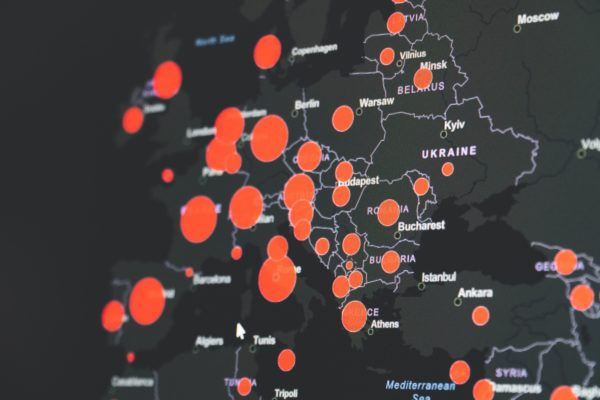
In a weekly program Vesti Nedeli (which has about 5.7 mln viewers) broadcast by Russia’s First Channel on March 22, 2020, Dmitry Kiselev is speculating on the geostrategic ramifications of the COVID-19 pandemic:
“The Schengen Area regime was the first one to collapse. Germany, Switzerland, Austria, Hungary, the Czech Republic, Denmark, Poland and Lithuania have reinstated control of their national borders. That means that the Schengen Area with the freedom of movement between its 26 members states no longer exists. Those are just the first few steps in the direction of giving up the spoils of civilization in favor of reinstating sovereign nation-states. In fact, this is the crash of the European Idea and transition to a new political culture with a different value system.
All the lip-service to solidarity, collective assistance, shared values, human rights and humanism, has gone with the wind the moment when Italy, who lost more people to coronavirus than China, asked the EU for help, and was rebuffed. Italy requested personal protection items and medical equipment, specifically lung ventilators. In response, Germany and France curbed their exports of medical masks.”
One would be hard-pressed to find “analysis” with a comparable concentration of lies. Firstly, the Schengen agreements include clauses governing possible limitations and temporary moratoriums on travel, as well as governing the travel of non-EU citizens. Secondly, the European Commission urgently appropriated 50 million euros to help Italy. Finally, France and Germany limited their national exports of medical masks due to their domestic deficits.
Similar materials and reports surfaced on the German-language Sputnik DE on March 19, 2020 and RT Deutschland on March 30, 2020. Some outlets have gone further and proclaimed the end of the European Union.
Alexander Nosovich commented in his March 13, 2020 editorial published by RuBaltic.Ru: “The Coronavirus response has demonstrated that the European Union does not exist in the minds of Europeans. When it is time to act, the Union ceases to exists as a political reality.”
VestiFM (ВестиFM) went even further and in all seriousness discussed the inevitable exit of Italy and Germany from the EU.
The nexus between the German right populists politicians and the Russian medical envoy to Italy deserve a special mention, as it played a key role in Putin’s decision to do so.
Turns out, the impetus was the March 20, 2020 letter penned by the Bundestag AfD member Ulrich Oehme (infamous for his pro-Russian stance and his travel to the occupied Crimea) and his Italian colleague, ultra-right populist from the Lega Nord party Paolo Grimoldi (who founded a “Friends of Putin” Caucus in the Italian Parliament) addressed to Roman Babayan (a Moscow City Duma Deputy and an anchorman of the NTV show “Your Own Truth”) and to Leonid Slutskiy (Chair of the Duma Foreign Affairs Committee, PACE delegate, member of the Russian right-wing Liberal-Democratic Partyparty, and named on the international list of sanctions adopted by the US, EU and Canada for his official legislative role in the Russian annexation of Crimea).
Babayan read the letter during a live broadcast of his show, which received wide coverage throughout the Russian media. For the Russian audience, a spectacle was played out where a teary plea from the Europeans was met with an immediate and gracious response from Russia. It’s important to acknowledge that this narrative may be aimed more at the Russian domestic audience, as opposed to the Russian diaspora in Europe, though it permeates both.
2. Germany moves to rescind sanctions against Russia due to the pandemic.
Calls by three marginal Bundestag Members – Robby Schlund, AfD (who became famous for his effort to open an AfD office in Russia), Anton Friesen, AfD, and Alexander Noy, Left – are presented by the Kremlin media as the onset of a serious discussion to end sanctions against Russia. It has been peddled most actively by RIA News and Izvestia (and then reprinted by dozens of less prominent outlets such as regnum.ru, Rossiyskaya Gazeta, gazeta.ru and among the German-language outlets, such as Sputnik, RT and Junge Welt who also touted that the tiny German Communist Party called to end sanctions against Cuba, Venezuela and Russia. It is important to clarify that such statements and calls are made by individual members of the Bundestag and fractions several times a day and do not amount to a formal legislative discussion or movement.
Against this backdrop, a significant reactivation of the Nord Stream 2 lobbying efforts have taken place. The pretext of this campaign was the publication of survey results prepared by Forsa, a leading German market research and opinion poll agency, and dealing with German attitudes on energy policy issues. Rossiyskaya Gazeta, whose editorial focus usually echoes the sentiments inside the Kremlin, immediately reported on the study: “Against the difficult economic situation related to coronavirus, the support for construction of the Nord Stream 2 pipeline has grown. Three quarters of respondents (77%) support the most expedient completion of the Russian-European project, despite the limitations announced by the United States.”
In Germany itself, however, this information has been ignored by prime outlets and only featured only by marginal portals covering economic beats (such as finanzen.net.)
3. German lack of preparedness for the Coronavirus pandemic and shortage of doctors.

One would assume that the Kremlin propaganda machine would not waste time on spreading lies that are easily factchecked and quickly dismissed as disinformation. Nevertheless, an entire program on Vesti FM on February 29, 2020, did exactly that. Other peddled themes include the so-called “negative pandemic scenario” projecting that 50 million Germans will inevitably become infected and 1 million will die, which at this point is a mere hypothesis. Some Russian outlets such as Nezavisimaya Gazeta engage in despicable speculation on the circumstances of the suicide of a German state minister with headlines such as “The German Hysteria”. Again, here, it is the Russian domestic audience that may have been the primary target, though the Russian-language audiences in Europe have been also been affected.
While most Kremlin-controlled media outlets have advanced the narrative of the German panic, Alexander Rahr, the darling of the Russian propaganda and an expert on all possible issues, offered an extensive commentary: “ It is improper to say that one does not feel the panic here.”
4. Refugees and Quarantine.
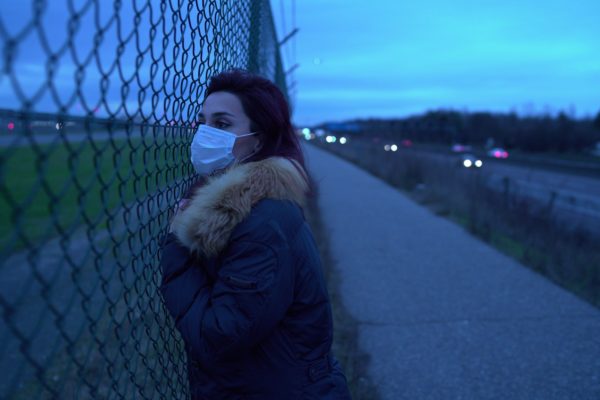
Russian disinformation outlets have been pushing a narrative that refugees in Europe violate quarantine. Komsomolskaya Pravda has hired an AfD activist Eugen Schmidt who has churned out several reports supporting this theme. Such narratives target Russian audiences with anti-migrant and racists views.
An anti-migrant publication germania.one is also advancing a similar line. On the other hand, Sputnik DE is vocal in its criticism of the failure of the German government to sustain safety and enforce quarantine measures inside refugee camps and asylum-seekers’ housing.
What are some of the preliminary conclusions and observations that could be made from the review of the fake, half-truth and misleading materials?
It is clear that the Kremlin-controlled outlets seek to sow uncertainty, fear of the future and distrust among the German population toward its government. At the same time, materials aired and published frequently contradict each other. RT Deutschland, for example, is criticizing the German government for harsh restrictions, while Sputnik DE is criticizing it for lack of preparedness and inability to enforce quarantine. However, this is precisely the mechanism used by the Kremlin to execute its strategy of sowing uncertainty and even panic. Once the environment is right, it aims to push for the removal of sanctions under the pretext of helping the German economy recover. To shift attention away from its own fake news, RT Deutschland is claiming that prominent Western outlets such as Tagesspiegel , FAZ, AFP и DW are spreading fake news against RT Deutschland.
Despite all of these efforts by the Kremlin-controlled media, the rating of the ruling coalition continues to grow, and the majority of Germans approve of measures taken by state and federal governments. According to a recent poll conducted by ARD-Deutschlandtrend (02.04.2020), 72% are satisfied with the crisis management measures adopted by the government in response to coronavirus pandemic. Likewise, the support is strong for the overall performance of the ruling coalition of parties (government): 63% are satisfied with its work (which is a 28% from a similar poll 02.03.2020)
Azat Miftakhov, a graduate student at the engineering mathematics faculty at Moscow State University and a supporter of anarchist views, is under investigation on two counts. He has been charged under Article 213, Section 2, of the Russian Criminal Code (‘Hooliganism by a group of people by prior agreement,’ for which the penalty is up to seven years of prison) and is a suspect of an offence under Article 223.1, Section 1, of the Russian Criminal Code (‘Illegal preparation of explosive substances and explosive devices,’ for which the penalty is up to six years of prison). Continue reading The Kremlin’s Political Prisoners: The Case of Azat Miftakhov
At the present time, the political life of Russia’s regions is all but destroyed. There are no organizational or financial resources for it and such a state of affairs is the result of a deliberate strategy to destroy democracy in Russia which has been implemented throughout the last 20 years.
Despite the fact that various regions of Russia have their own nuances and special features, on the whole, the situation is the same everywhere: the head of the region and the heads of the major municipalities are approved, and de facto appointed by the presidential administration, and all the rest of the regional leadership is appointed and approved by the governor. Those who disagree with this state of affairs are forced out of official politics.
On the whole, it should be acknowledged that after the presidential elections of 2018, political life in the regions was completely sterilized; so in that sense, there is only a point in discussing the reasons which led to this state of affairs and to think about the prospects for Russia to get back on track to democracy and federalism. Obviously, without radical changes in the leadership of Russia, the situation will not change, and as long as the laws, and most importantly, the president of Russia remains unchanged, any sort of revival of regional politics cannot be expected.
Democracy and Federalism in Russia
Democracy and federalism in Russia turned out to be powerless before the onslaught of autocracy in the early 2000s, because they had no real support either in the government itself or among citizens – and such a state of affairs had been programmed by the creators of the political system of Yeltsin’s Russia.
Even those government agencies which were formed directly by citizens had no real autonomy from the higher levels of government, primarily at the federal level, because the president was able to rid himself of inconvenient regional leaders and the regional leaders were able to oppress the municipalities. Naturally, in such circumstances the level of citizens’ trust in municipal and regional government was rather low, so the Kremlin was not afraid that some mayor or governor would be bold enough to argue with it, that they relied on the real support of the people, rather than on fixed elections. The local elites wasted so much effort on fighting among themselves that they were gladly ready to agree to the federal center’s terms, just to get rid of their rivals. In the end, a tactical alliance with the federal center became a trap; once they fell into it, local elites lost their political agency. This is what Putin exploited when he set about sterilizing regional politics completely.
The current state of affairs and its incorporation into the renewed text of the Russian constitution is the result of a constant and consistent attack on democracy and federalism. This has been under way for the entire 20 years of Putin’s rule, but as has been noted, it began much earlier. Essentially, the system created by Yeltsin in 1993-1996 had to guarantee the president that even if he had a minority in parliament and his personal rating was low, and if members of the opposition come to power in a number of regions and major cities, he could still remain in power and successfully block all the efforts of his critics.
Precisely within the framework of this concept, the prospects for local and regional self-government were in fact destroyed. Since all real powers were concentrated in the president, and all the other branches of government (parliament, the courts, the regions, and local self-government) were intentionally weakened, the deliberate course of the new President Putin enabled him to destroy both federalism and democracy in several years, without encountering any real resistance.
The Attack on Self-Government
Thus, as has already been said, the constitution of 1993 was written not so much to create a firm foundation for democracy and federalism in Russia, but rather to serve the interests of Russian President Boris Yeltsin. Its authors were motivated by fear of a communist revanche, which they expected “from below.”
Obviously, local elites fully shared that fear of Yeltsin’s entourage, or rather exploited it for solving their own tactical problems. The presence in Russia in the 1990s of the so-called “red belt,” that is, the regions where the Communist Party of the Russian Federation (CPRF) traditionally garnered many votes, forced the Yeltsin team to search for any allies for themselves who were prepared not to allow a victory of the CPRF and in exchange for that, forgive them any abuses.
Thus, emerged the phenomenon of “electoral reservoirs,” that is, regions guaranteed to show a high turn-out at all elections with high indicators for the party of power and its candidates. Essentially, a number of local leaders simply changed their loyalty for financial bonuses and impunity. This is exactly what defined the nature of interrelations between the federal center and the regions. Therefore, when Putin took the line of restricting the real powers of local bodies of government, the elites of the regions were already rather isolated from the citizens and did not have high authority among them which would have enabled them to rely on the support of voters in opposition to the Kremlin’s policy – if they even had such a wish at all.
Nevertheless, under Yeltsin, political life in the regions was preserved – among other reasons because the Kremlin played on the contradictions of the local elites, in each case wishing to find a counterweight to an ambitious governor through the head of a regional center or in some other way. Taking into account that Yeltsin’s ratings were extremely low all through the second half of the 1990s, the Kremlin was forced to reconcile itself to a certain level of political freedom in the regions, in the wealthiest of which quite interesting political systems had been formed and operated relatively successfully. For example, in Sverdlovsk Region there was a bicameral regional parliament where the upper house was elected every two years through elections in the districts, and the lower house by party lists; in fact the main fight was usually among the regional parties, whereas the federal party did not have significant influence. But all of this was possible because Sverdlovsk Region was relatively wealthy, which enabled numerous regional industrial groups to exist, which were interested in political representation among other things.
This is why we must not forget that Alexei Kudrin’s tax reform finally put to death the prospects for political life in the regions, the result of which led to the total financial dependency of the regions on the center and made struggling for power in their regions pointless; if the center distributes cash and everything comes from the center, then it is quite logical that a person appointed from the center is at the head of the region.
The local elites accepted the rules of the game and instead of resistance to the changing viceroys, tried to cooperate with each new governor because any other strategy is fraught with serious problems and losses.
Local Elites
We cannot overlook the quality of the local elites as well; in the absolute majority of cases, already by the mid-1990s, power in the regions had wound up in the hands of the Soviet nomenklatura. On the one hand, it preferred the administrative-command methods of leadership and leaned toward the necessity of taking part in honest and competitive elections, but that is why it was prepared to obtain powers from the leadership and not the public. On the other hand, it turned out to be involved in corrupt schemes which enabled the federal government to control any local leader by the kompromat [compromising material] compiled on him. In many cases, it was these people who kept power in their hands all through the 1990s and 2000s, until the Putin administration gradually, but methodically, got rid of them.
The situation in Sverdlovsk Region was illustrative, where Arkady Chernetsky, mayor of the regional center, remained in his post from 1992-2010, but Eduard Rossel, governor of Sverdlovsk Region, had in one way or another headed the region from 1991-2009 (with a break from 1993-1995). Both of them came out of the Soviet nomenklatura, and despite the undoubted political talents and readiness for participation in competitive politics, both were drawn to authoritarian methods and were not ashamed of using manipulative techniques in the elections.
All the years they were in their posts, these politicians and their teams waged an unceasing war, but in the end both of them gave up their power, not by losing elections, but by subordinating themselves to order. Now both of these rivals represent Sverdlovsk Region in the Federation Council without any real weight in regional politics.
It is noteworthy that even after the departure of Chernetsky from the post of head of Ekaterinburg, his team resisted pressure from the regional government for several years, which created a certain space of political struggle and even enabled the non-system politician Evgeny Royzman to win the elections to head of Ekaterinburg (by that time, this position had already become symbolic). But this resistance had purely economic reasons and in no way presupposed criticism of the federal government and its policy. On the eve of the 2018 presidential elections, the city team finally capitulated, and with that, politics in the region ended. In May 2018, Evgeny Royzman was forced to give up his powers as head of Ekaterinburg prematurely, and the city charter no longer stipulated new direct elections. Despite the specific nature of the situation in Ekaterinburg and Sverdlovsk Region, in the end even there, the Kremlin achieved its aims – as in all other regions of Russia, rich and poor, national republics and ordinary regions and territories.
What Is to Be Done?
What can and should be done, so that democracy is returned to Russia and cannot be so simply overthrown? As was said at the very outset, without changes at the federal level, we should not expect a flourishing of politics in the regions. But it is important not to repeat the mistakes of the past and not create the prerequisites so that democracy and federalism in Russia could be overthrown some time again.
First, it is necessary to have the constitutional transfer of the maximum number of political, legal, and financial powers to the level of local self-government. Even the regional level of government must be not be as influential as the municipalities. Essentially, the regional administrations must be involved only in the creation and maintenance of the general infrastructure and coordination of the efforts of local communities. It is much harder to take control of thousands of municipalities with great powers, elected by direct elections, than several dozen regional governments. This is exactly why the municipalities must become the foundation of democracy and the guarantor of the separation of powers in Russia, or otherwise everything will rapidly return to the current state of affairs.
Secondly, the restrictions on the creation of regional parties must be removed. Taking into account the dimensions of Russia, it is more logical to prohibit federal parties as such, motivating regional parties to form blocs at the federal level around common program lines and interests. Federal politics must be made in the regions and municipalities and not the opposite.
Third, the incorporation of a parliamentary system of governance at all levels of government – from the federal to the municipal – seems correct, that is, in both the regions and in the major cities, executive power must be in the hands of the head of government elected by the parliament. This will enable the destruction of the prerequisites for a revanche of Putinism several years after the departure of Vladimir Putin from politics, because it will destroy even the theoretical possibility of subordinating one level of government to another through personal agreements or blackmail. On the whole, all of Russia’s history teaches us that any opportunity to concentrate power in the hands of one person rather quickly leads to authoritarianism and a lack of change in government – and not only at the level of the head of state.
Fourth, any attempts to return Russia to the path of democracy and federalism are unthinkable without lustration not only at the federal but also at the regional and even municipal level. The main reason why the democratic endeavors of the 1990s were so easily overthrown was the fact that in the early 1990s, real power in Russia was left in the hands of descendants of the Soviet nomenklatura. Taking into account by whom and how the regional and municipal bodies of governments were formed in recent years, keeping these people in politics will inevitably lead to a revanche in a very short time. There are quite enough new people for politics at all levels in Russia, but for them to get involved and not lose at the very first elections to the re-painted Putin nomenklatura, the latter must be lawfully excluded from the process. Otherwise, everything will come full circle in this new, reimagined future.
Translated by Catherine A. Fitzpatrick
As the number of cases of COVID-19, also known informally as coronavirus, grows in the United States, local, state and federal government officials are scrambling to contain the spread of the disease and “flatten the curve,” an expression that roughly means to reduce the outbreak of COVID-19 cases to a more manageable rate.
While millions of Americans have been ordered to stay home, employees deemed “essential” such as grocery store clerks plow on; tired but perseverant. Unemployment claims have skyrocketed in the last few weeks, shattering records from previous economic downturns, and many industries have been shuttered due to the need for social distancing.
With all the dispiriting news, an underreported story has been how private industry has geared up to manufacture and distribute essential products to fight the spread of the virus. Working often in cooperation with federal and state agencies, many companies have put the American people ahead of their own profit margin and pitched in as they had during other times of national emergency.
According to Fox News, tech giant Apple is donating 10 million masks to American health care workers. The Dallas Morning News reports that Neiman Marcus, a department store chain, and Joann, the craft store chain, is also diverting resources to sew health care workers’ gowns, masks, and scrubs. Forbes reports Major League Baseball has partnered with Fanatics, the company that makes the jerseys the players wear, to do the same with the baseball season currently on hold. According to the Wall Street Journal, Governor Charlie Baker of Massachusetts managed to enlist the help of the New England Patriots’ team plane in securing millions of masks to be shipped from China. Brooks Brothers is also producing masks and gowns in their factories, and Crocs is donating shoes to healthcare workers.
Private sector firms are contributing more than just supplies and raw materials, though. According to Forbes, a biotech firm based out of Massachusetts called Moderna has managed to launch clinical trials for a possible COVID-19 vaccine. Forbes goes on to report that antiviral treatments are being tested by Gilead Sciences while the Food and Drug Administration has approved recently developed testing methods. American automobile companies are also manufacturing ventilators to assist COVID-19 treatment. While the work of health care professionals is far from done, steps are being made to contain the disease.
President Trump openly speculated about a possible reopening of businesses on Easter Sunday (April 12th), but with cases of COVID-19 continuing to spread at an alarming rate, the president has since backtracked and called for social distancing protocols to extend at least until April 30, with the Surgeon General speculating that those guidelines could be extended further. Many states have ordered residents to stay at home, with the only exceptions being to buy essential items and to exercise.
While the fight to contain COVID-19 is far from over in the United States, Europe, and Asia, it is heartening to know that significant resources in both the public and private sector are being mobilized to provide reinforcements to the exhausted medical professionals on the front lines of this pandemic. There will be lessons to learn after COVID-19 is contained and eventually cured, and it will be prudent for both public and private sectors to proactively prepare for the possibility of another disease with similar effects. There’s even the possibility of COVID-19 returning as the weather cools down in autumn and winter, a threat that must be taken seriously. Today, both private and public sectors are making significant sacrifices, and that should be a sign that people can use this shared experience toward greater unity and cooperation.
Maxim Smyshlyaev, a resident of the city of Rostov-on-Don of left persuasions. At the time of his arrest, he worked at a McDonald’s outlet and studied extramurally at the Institute of History and International Relations of the Southern Federal University. He was sentenced to 10 years of imprisonment in a strict-regime penal colony under Part 3 of Article 205.1 (‘Complicity in the preparation of a terrorist act’) of the Russian Criminal Code for having allegedly aided Artur Panov, a minor holding the citizenship of Ukraine, in the preparation of a terrorist act that did not take place. Smyshlyaev has been held in custody since April 22, 2016. The Memorial Human Rights Center recognizes Maxim Smyshlyaev as political prisoner. Continue reading The Kremlin’s Political Prisoners: The Case of Maxim Smyshlyaev
The Memorial Human Rights Center has recognized a Russian citizen Vladimir Domnin as a political prisoner. He was accused of having fought in Donbass region on Ukrainian side. We believe that Vladimir was in the war zone for a short time, but did not directly participate in war actions and does not pose danger to the society. Continue reading The Kremlin’s Political Prisoners: The Case of Vladimir Domnin
77-year-old scientist sentenced to 7 years in a strict regime prison colony for passing software to China. Continue reading The Kremlin’s Political Prisoners: The Case of Vladimir Lapygin
In early March 2020, OPEC has failed to reach a deal with Russia who refused to reduce its oil production in response to the plummeting demand due to the global coronavirus epidemic. “We are confident that Russia will resume its cooperation,” said OPEC’s Secretary General Mohammed Barkindo to a Russian news agency Interfax. According to the latest forecast by the International Energy Agency, 2020 will see a significant drop in global demand for oil, for the first time since 2009.
During the March 6, 2020 negotiations, OPEC members proposed to not only extend the current quota on oil productions through the end of the year, but also suggested to further reduce daily outputs by 1.5 mln barrels. Russia, however, was willing to extend the current quotes only through the end of the second quarter of 2020, and refused to further reduce production (a measure that is seen by OPEC as necessary for sustaining the current level of global oil process).
OPEC+ has sought to stabilize global oil prices since 2017. The OPEC failure to reach a deal means that, starting with April 1, 2020, there will be no limitations on oil production. Following Russia’s rejection of a new deal limiting oil production, Saudi Arabia announced its intention to increase output in April. The reaction of global markets to the prospect of a new energy price war was instantaneous: within a few seconds from the morning opening on March 9, 2020, Brent oil prices fell 30%, its biggest drop since 1991. Russian national currency – ruble – was immediately affected – its exchange with euro exceeded the 86 to 1, and with the US dollar – 75 to 1 rate.
“At this point there are no factors that would limit the drop in oil prices. Under an optimistic scenario, they may stabilize at $30 per barrel, after which the markets may start recovery,” believes Nikolai Ivanov from the Energy and Finance Institute (Moscow, Russia). However, according to a recent Goldman Sachs projection cited by the CNN, due to perturbations on the global oil market the price can go down as low as $20 per barrel.
The deficit in the Russian federal budget that would result from the drop in oil prices can be compensated by the National Wealth Fund, announced the Russian Ministry of Finance statement on its website (as quoted by a Russian news agency RIA News). The Ministry projects that even under a pessimistic scenario with prices at $25 per barrel, the Fund will last for six years.
In his statement to a Russian news agency TASS, Energy Minister Aleksandr Novak said that the prospect of oil production increase in April will be determined by ROSNEFT’s plans. Following the failure to reach a deal with OPEC, Russian State Corporation ROSNEFT (currently under sanctions by the US and EU) began planning to increase its oil output, according to Bloomberg reports citing insider sources.
“I doubt that Russian officials, who are now in the midst of a constitutional reform and government restructuring, meant to intentionally harm the Russian economy and weaken the national currency,” says Nikolai Ivanov. Ivanov believes that Russia was forced to break off its negotiations with OPEC. “On the one hand what happened was a manifestation of domestic political intrigues in Saudi Arabia; on the other hand, one can detect the U.S. influence,” said the expert. “The US Secretary of Energy Mike Pompeo flew to Riyadh, Saudi Arabia right before the OPEC break down. The young and very capable Crown Prince bin Salman had just averted a coup in his country and arrested several key government figures. He had conducted an IPO round for Saudi Aramco and no longer had any motivation to sustain oil prices.” For Russia, on the other hand, new production quotas would mean a reduction of half a million of barrels per day. “Unlike Saudi Arabia, Russia, due to its geological characteristics cannot quickly reduce the production of oil and then ramp back up,” believes Nikolai Ivanov. “For Russia, with its high share of “old” oil deposits, which actually already require intensification of extraction rates, it is impossible to increase production after a forced decrease.”
“This decision could have only been made by Vladimir Putin personally,” asserts Mikhail Korchemkin, Director of the East European Gas Analysis consultancy. He recalls Gazprom’s unfortunate experience from the 2009 crisis. As gas prices in Europe plummeted, the Russian President decided to keep the contract prices high despite a shrinking market share. “I would imagine, today, Putin is applying this past experience to the oil market. In 2009, he learned that a reduction in exports leads to a loss,” suggests Korchemkin. “However, shortly thereafter Gazprom came to its senses, lowered prices, increased its market share,” recalls Korchemkin. Aleksandr Baunov from the Moscow Carnegie Center agrees with this assessment. Baunov believes that a shrinking market and its restructuring are the two major factors. “The rest is just an afterthought: the prices first started dropping, and then the government recalled that it was bad for the shale industry,” he suggested. Korchemkin also notes that the US shale oil production has lived through two major price shocks of 2009 and 2015, each deeper than the current one so far.
“Russian leadership still does not understand the US shale mining industry,” – says Ivanov. The expert is confident that this sector cannot be shut down by external shakeups. “Production volume can be varied. Profits are realized even under modest volumes of extraction,” he explains. According to Ivanov, the US may even decide to increase output despite lower global prices as certain costs can go down through such periods. “The United States has such a diversity of producers – at the major, medium and smaller size levels. They can diversify their investments. The advantage of shale production is that it’s very dynamic, and one can adjust approach to oil extraction based on demands of the market,” concludes the expert.
According to Robert Tummel, a portfolio manager at Tortoise Capital Advisors, currently the impact of coronavirus on global oil demand is uncertain. Estimates for 2020 for global oil demand reduction range from 600,000 to 1.3 mln barrels per a day. “Global oil supply could increase by 500,000 to 1 mln barrels per a day, based on how much Saudi Arabia increases production. And that will result in an oversupply on global oil market between 1.1 and 2.3 mln barrels per a day,” predicts Tummel. According to his estimates, the market is going to oversupplied by 1% to 2%. “We think that the US oil producers are most likely to accelerate the capital discipline, and they’d already began doing one to two years ago. The US production is likely decline if low oil prices persist,” says Robert Tummel.
The Memorial Human Rights Centre has recognized four residents of Kaliningrad charged in the case of the Baltic Avant-garde of the Russian Resistance (BARS) as political prisoners. Continue reading The Kremlin’s Political Prisoners: The Case of BARS
Free Russia Foundation announces the opening of its new chapter in Prague, the Czech Republic. Continue reading Free Russia Foundation Opens Chapter in Prague, the Czech Republic
On March 5, 2020, a Russian-controlled court in Ukraine’s Crimea sentenced Sergei Filatov, a Jehovah’s Witness from Dzhankoy, a town in the north of occupied Crimea, to six year in prison for organizing activities of an extremist organization, which, according to an investigation, consisted of “holding meetings, religious speeches, as well as promoting religious ideas.” Continue reading The Kremlin’s Political Prisoners: The Case of Sergei Filatov
On February 21, 2020, on the second day of the Winter Session of the OSCE Parliamentary Assembly, a side event was held in Vienna on the problem of political prisoners in the OSCE area. Continue reading How to Address the Issue of Political Prisoners in OSCE Participating States?
Feminist artist Yulia Tsvetkova from Komsomolsk-on-Amur was accused of illegally producing and distributing pornographic materials on the Internet (Paragraph “b”, Part 3 of Article 242 of the Criminal Code of the Russian Federation, punishable by up to six years of prison). The charges were connected to her role as an administrator of a feminist body-positive online page ‘The Vagina Monologues,’ which has published abstract depictions of female sexual organs and items similar to those either drawn by Tsvetkova or posted earlier on the Internet with the aim of removing the taboo surrounding female physiology. Tsvetkova has been under house arrest since November 23, 2019.
Continue reading The Kremlin’s Political Prisoners: The Case of Yulia TsvetkovaPrague will rename the square in front of the Russian embassy in honor of the Russian opposition politician Boris Nemtsov. The ceremonial renaming will take place on February 27, the same day when the Russian opposition leader was assassinated five years ago. Continue reading Prague to Rename Square By Russian Embassy in Honor of Boris Nemtsov
Olexander Shumkov, a Ukrainian citizen from the city of Kherson who was serving in the Ukrainian armed forces at the time of his kidnapping, was kidnapped at the border between Ukraine and Russia in August 2017. After that he was relocated to Russia and charged with committing a crime under Article 282.2, Section 2 of the Russian Criminal Code (taking part in activities of an extremist organization) on the grounds that, allegedly, he is a member of Right Sector, an organization banned in Russia. On December 4, 2018 Olexander Shumkov was convicted to 4 years of prison by a judge Victor Ruhmakov of Sevsky regional court in Branskaya oblast. Continue reading The Kremlin’s Political Prisoners: The Case of Olexander Shumkov
2020 is promising to be the year of high importance and big decisions for Georgia. The country will have to decide whether it wants to move forward with its pro- democratic aspirations and incorporate into the Western society or continue growing weaker with no ability to stand against the Russian interests in the country.
The U.S. and EU support and special attention are critical to ensure free and transparent elections, especially if the government reneges on its promise of proportional system and moves to conduct the 2020 elections under the existing mixed electoral system. Attention of the international community and Georgia’s strategic partners, especially when it comes to monitoring of the election process, will help support fair elections, and empower Georgia to stand firm for its pro-western choice and reemerge as a regional leader in reforms and democratic development.
• The Gavrilov Night
• The Political Context
• The Kremlin’s campaigns in Georgia 2019 – 2020
• Development of the Anaklia Port
• Recommendations
Please download the PDF to learn more.
ABOUT THE AUTHOR
Egor Kuroptev is a Director of Free Russia Foundation’s office on South Caucasus, media manager and political expert from Russia based in Tbilisi, Georgia since 2012. He started his career at the Echo of Moscow. From 2017 he holds the position of director for media project: “Information in Russian VS Soft Power of the Kremlin”. For three years he has been producing a famous talk-show “Border Zone,” where he discusses regional conflicts, foreign policy of Russia as well as NATO and EU politics on the post-Soviet space.
The Memorial Human Rights Center recognized Eduard Nizamov, who was accused of heading the Russian branch of Hizb ut-Tahrir, as a political prisoner. Continue reading The Kremlin’s Political Prisoners: The Case of Eduard Nizamov
By Andrei Soldatov
In the third year of Perestroika, in 1988, the intelligence branch of the KGB was deep in a crisis – the headquarters in Yasenevo woods a few miles southwest of Moscow found the officers at KGB rezidenturas in Western countries increasingly reluctant to approach foreigners. They effectively turned off the aggressive recruiting mode the Soviet intelligence was once so famous.
In the United States, Soviet intelligence scored some spectacular successes in penetration, namely Aldrich Ames at CIA and Robert Hannssen at FBI, but the recruited Americans were the walk-ins – i.e. they themselves initiated the contact with Soviet spies, they were not approached by the Russians.
The Soviet Union was losing the Cold War and that certainly contributed to the confusion in KGB intelligence stations all over the world, but most importantly, the officers themselves didn’t want to risk their postings in the West. Being kicked out of a Western country if caught red-handed was not a particularly attractive idea at time when all kinds of shortages back home were already palpable.
Finally, the big shots at Yasenevo came up with a solution. It was a bold and witty idea, and the translated Analytical overview was part of it. Yasenevo suggested to exploit the natural advantages the KGB still enjoyed back home.
In addition to its espionage abroad, the KGB was always busy collecting “intelligence from the territory,” a euphemism for recruiting foreign nationals in the Soviet Union, with an eye to subsequently running them as agents in their home countries. This system worked because the Soviet Union, as a police state, had an opportunity to watch literally every foreign national in the country. Each regional KGB department had what was called a First Section in charge of recruiting foreigners.
This activity was coordinated by the Directorate RT (Razvedka s Territorii: intelligence from territory) of the First Chief Directorate in Yasenevo.
The problem was that no so many foreigners wanted to come the Soviet Union. Now that was changing, thanks to Gorbachev, who was busy opening up the country.
But the Soviet Union was still a totalitarian state, meaning that there was no media, a trade union, or a nascent private enterprise (not to mention a government agency) in position to say no to the KGB if approached and asked to plant a spy in the organization under disguise.
These spies planted by the KGB were known as DR officers, Destvuyushego Rezerva: of the active reserve. The term had a long history; it was used since the 1920s.
The KGB’s “Tradecraft in Intelligence Work from Cover Organizations on Soviet Territory,” an analytical overview presented here for the first time in both its original Russian and in English translation, suggested boosting the activities of the Directorate RT as a way to compensate the passivity of hibernated intelligence stations abroad.
Tradecraft in Intelligence Work on Soviet Territory from Cover Organizations (ENG)
Конспирация в разведывательной работе (RUS)
The beauty of the report was that it suggested combining two things, already at KGB disposal – the capabilities of planting KGB spies in almost any Soviet organization; and the activities of the Directorate RT in approaching foreigners now coming in big numbers to the Soviet Union.
The Directorate RT was thus encouraged to plant more spies in Soviet organizations with an eye to recruiting foreigners in the Soviet Union.
The report even suggested to send officers of the Directorate RT abroad to run its assets, and not to handle them to the intelligence stations in respective countries, probably acknowledging the reluctance of the intelligence stations to taking risks.
The Soviet regime was facing its collapse, but the KGB intelligence branch once again proved its resourcefulness and ability to adapt to changing circumstances.
Andrei Soldatov, The coathor of “The Compatriots: The Brutal and Chaotic History of Russia’s Exiles, Émigrés, and Agents Abroad”
Vladimir Milov explains why Russian president started constitutional reforms well before 2024 elections.
On Wednesday, Vladimir Putin did a rather unusual thing. Three years before the formal end of his presidential term, without any obvious motivating circumstances (the situation in the country is complicated, but it is no worse and no better than in recent months), he simultaneously announced the unprecedented restructuring of the power mechanism, and the resignation of the Medvedev government, which, it would seem, has already received an informal status of an eternal supplement to Putin’s presidency. It is important to understand what really happened and why.
First, let’s talk about the announced constitutional changes and the reform of the country’s governance system. We have to acknowledge the failure of theories that predicted power transit, the emergence of some influential successor, or exotic options of transferring power through integration with Belarus (which did not imply that Putin’s dominance would be unconditionally preserved, since Alexander Lukashenko is very popular in Russia, maybe even more than Putin himself). Those who were right (including the author of this article) envisaged that Putin wouldn’t leave, as current control over political institutions allows for any type of constitutional redrawing. The latter is the most probable move to preserve Putin’s actual power. This is the easiest and safest way for the Russian leader, compared to options such as appointing a successor or integrating with Lukashenko. As we can see, this scenario was actually applied.
Putin has every reason not to trust any successor candidates. The current situation is different from 2008 when he transferred formal leverage at the peak of economic success and his popularity. First, Putin understands better than others that the Russian establishment is tired of him, do not trust him, is aware of his negative role as the main deterrent to Russia’s advancement and will try to dump this legacy at the earliest opportunity. Our state officials, for all their negative role in Russia’s present situation, however, have not signed to sit forever in a swamp and would appreciate some kind of movement towards progress. Secondly, Russia can’t get out of the crisis paradigm, and the future is threatened with new risks and shocks. No one is waiting for a quiet progressive development – in this situation, letting go of the reins and experimenting with successors is definitely not typical for Putin. He would prefer to implement control personally, as he used to. And, thirdly, there are no signs of Putin’s desire to give up power, no matter what political scientists and commentators say – these are fantasies and groundless speculations.
A mistake made by commentators in the analysis of Putin’s proposed constitutional changes is an attempt to give them a concrete shape through their own interpretations. In fact, there is nothing definite there. The design voiced by Putin simply says: “I want to have room for maneuver, and I will decide everything myself.” The State Council is to be created with no clear power; the State Duma is to be endowed with expanded authority to influence the formation of the government. But Wednesday’s message to the Federal Assembly does not clarify how exactly this system will look.
One thing is clear: Putin wants to create a new system of checks and balances in order to prevent the loss of his own influence. He sends a clear signal: “I will form this system myself, and I will still think how. And this system will be approved by a completely controlled group of film directors and figure skating champions – in the way I say when I decide.”
The key difference between the system proposed by Putin and the current one is that this system eliminates the “president-prime minister” dichotomy. In Russia, many mistakenly look at the Prime Minister as the person responsible for the “national economy.” This is not the case: the head of government is a constitutional post, it is an analogue to the vice president who automatically assumes the presidency if something happens to the first person (for example, he was forgotten at the cottage in Foros without any connection with the outside world). It is not surprising that in such a design the prime minister is a natural reason of nightmares for the power-hungry president: if someone wants to initiate a palace coup, then he will first try to gain over the prime minister, and then the national leader catches a light form of flu – and here he is, the new acting president. That is why Putin has been holding the absolutely unprofessional Medvedev for so many years. He did not care about Medvedev’s professional qualities, the main thing was that in 2008-2012 he passed a loyalty test, unlike anyone else from Putin’s circle.
Constitutional changes, instead of this simple dichotomy, create a more complex system with more players and more opportunities for behind-the-scenes management. You are no longer dependent on the particular candidate for the prime minister. It is worth underlining once again that nothing has been decided yet, the specific configuration will be discussed, but Putin’s statement is obvious: “I am creating a new system of checks and balances in order to stay in power, I will determine this system and control it.” This is what we now know for sure. All the rest is still unknown, and there’s no sense to discuss them. It remains to be seen.
The next question: why now? It is clear that the adoption of amendments to the Constitution takes time. Yet there is another three years until the end of Putin’s term, and he is used to keeping all secrets behind seven seals until the last moment. His secrecy has its own logic: when you designate your decision too early, you expose it for criticism, and people get tired quickly from specific configurations. When you throw out a new construction three months before the election (as with Putin-2000, Medvedev-2008 or Putin’s return-2011), your rivals are taken by surprise, and Putin’s political strategists, on the contrary, have every chance to take temporary advantage and secure the desired result, while voters still believe you and the scheme is not “rotten.”
A certain answer to this question can be detected by the sudden change of prime minister (which, as many sources in the executive branch confirm, even the members of the government themselves did not suspect). Now there is no point in changing Medvedev – the elections to the State Duma are still a long way off. Given the short memory of voters, the effect of this decision will quickly disappear and will not live up to the Duma’s election campaign. There is no disastrous economic situation either. It is bad, but no worse and no better than it was yesterday or will be tomorrow. A change in the cabinet would make sense if Putin had appointed a decisive prime minister for new reforms, who would change the situation, but the new candidate for the post of head of the cabinet, Mikhail Mishustin, is certainly not the one (more on that below).
What is the meaning of such a decisive action on several fronts at once and so early? By way of exclusion, we come to the only possible explanation—Putin panicked when he saw some new “closed” sociological data, which showed how bad his situation was. And then he decided to hastily give out all the preparations he had: to dismiss Medvedev and promise a new package of social measures for 450 billion rubles, and also to announce constitutional amendments in advance so that if people don’t like them, there was time to cancel them under the pretext that unreasonable artists and ice skaters gave the wrong advice. Frankly, I see no other rational explanation for the fountain of radical measures announced three years before the 2024 election. There is not a trace left of the calm, prudent and expectant Putin of past years; He throws all his cards onto the table at once.
The information background of the previous weeks created by the Kremlin political strategists in preparation for the Duma elections also speaks in favor of the theory of panicking authorities. Everything looks frivolous and resembles real panic: from the decision to create a “party of tanks” (non-political parties of let’s say beer lovers in Russia have never worked) to the rumors about the creation of Shnurov’s and Dudy’s parties without the consent of Shnurov and Dudy themselves. We are waiting for the emissaries to Kim Kardashian with a generous multi-million dollar contract for obtaining Russian citizenship, real estate in Saransk, and proposals to lead the party in the State Duma-2021 elections. What else can you expect from panicking Kremlin technologists who feel that the country is slipping away from their hands and they have nothing but stale ideas from the 90s in their heads?
Paradoxically, another indirect piece of evidence of Putin’s panic is the candidacy of the new prime minister, Mikhail Mishustin. What is this man known for? Only one thing: as the head of the tax service, with his iron hand he put the dying economy through the wringer and still constantly boasted of the rapid increase in the tax burden on Russian entrepreneurs and citizens. This looked particularly outrageous in relation to self-employed people. Mishustin just a few weeks ago reported that they had managed to collect taxes of about 3 thousand rubles per person in 2019, presenting it as a huge achievement of the service entrusted to him.
Mikhail Mishustin has been working in the government since the late 90s and is well known in this area. He does not have any skills in terms of growth and development, he is a typical tax controller who really knows how to knock the last out of taxpayers in the form of a levy in favor of the state. This is his only strong professional quality. The fact that Putin nominated such a person for the post of prime minister gives us a clear understanding of the psychological state of the Russian leader. Putin feels insecure, anticipates economic difficulties and possible collapse of his own system. He wants to rely on a person who will provide him with cash in his accounts at any cost – including at the cost of further destruction of the Russian economy. Judging by his message to the Federal Assembly, Putin doesn’t care about the economy, because he still looks at the solution to the problem of low incomes of Russians exclusively through the prism of a fragmented distribution of “gifts” to certain groups of the population. Putin clearly isn’t interested in returning to the topic of full-fledged economic growth and development.
In this regard, Mishustin’s appointment looks like hiding under a fiscal “mommy,” who will protect Putin in difficult times. Сommentators argued over the possible candidates to replace Medvedev as prime minister. It could have been either the decisive statesman like Glazyev or Rogozin, who closes the borders, “invests in industry,” and the statist-chavezist economic model would flourish under him, as it has not blossomed anywhere in the world; or liberal Kudrin who would lure investors with sweet speeches and a reformist appearance without real denationalization of the economy. These were emotionally strong options that gave hope to different groups in society. What hope can be inspired by the appointment of the obedient robotic fiscal inspector, who became famous only for squeezing more from the economy into the treasury than it could give? No, this appointment is not about elections, growth or the future. This appointment is about Putin’s personal confidence that everything will not fail, although it is very likely. Mishustin’s appointment is an event from the field of psychology, but not economics or political technologies.
In any case, everything that happened on Wednesday is rather good news. Putin could come up with something that would really preserve the Russian dictatorship for decades, renew its image, and eliminate at least the most obvious contradictions. Instead, we have 1984, not in the Orwellian sense, but in the sense of the Secretary General of the CPSU Central Committee, Konstantin Ustinovich Chernenko, during whose term the last parliamentary elections in the USSR took place, where the CPSU received uncontested 99% of the vote. The key here is not “99%” and not “uncontested”, but “last”. Putin clearly does not understand this. Well, probably, he doesn’t need it – it’s time already. The historical era is coming to an end. The new prime fiscal inspector will finally finish it off. As Gleb Zheglov put it in the film ‘The meeting place cannot be changed‘ “Then so be it.”
This article was originally published in Russian on The Insider
Earlier this week new charges have been brought by Russian authorities against four leaders of the Ingush protest movement. A criminal case opened on December 27, 2019 implicated that eight activists and community organizers created and operated an extremist group against the republic’s authorities. In the near future, it’s expected that the others will be charged too.
Continue reading The Kremlin’s Political Prisoners: The Ingush Case
Translated by Catherine A. Fitzpatrick
In his speech before the elite of the Russian ruling class earlier this week, Vladimir Putin announced a new constitutional reform, which, in essence, amounts to adopting a new fundamental law. The Kremlin is proposing a new “social contract” to the Russian people that will replace the “Crimean consensus” – new and restored social benefits in exchange for cementing within the Constitution the monopoly of the current ruling class over the country’s governance.
A new “social contract” is a necessity for Putin’s regime. When he first came to power, at the time of the second war in Chechnya and fairly regular and massive terrorist acts in Central Russia, including in Moscow, he proposed a similar deal to the Russian people – exchange of some political liberties for security. Having imposed “order”, Vladimir Putin continued to expand his powers at the expense of other governing institutions, destroying the constitutional order of Russia. Then a second contract was put forward – a promise of satiety and stability in exchange for the remnants of political liberties. This contract was a much tougher sell and resulted in mass protests of 2011-2012. And in 2014, the Kremlin came up with yet another offer: forfeit of even more liberties for the restored sense of Russian greatness through the war on Ukraine and forceful annexation of Crimea.
We have now entered the final stage in this process. The population, seriously impoverished as a result of the prolonged economic decline, which began even before Crimea and was aggravated by international sanctions, is offered an ambitious program of support for the poorest of its members in exchange for a new Constitution, which will enable Vladimir Putin to stay in power after 2024, when he can no longer, under current law, be re-elected another time to the post of the president of Russia.
Is This Really a New Constitution?
In his address to the Federal Assembly, Vladimir Putin said that his plan does not envision adoption of a new Constitution. A legal analysis of proposed amendments, however, suggest that it amounts to a fundamental change in Russia’s State system.
His first proposal is self-isolation of Russia from international law — an idea floated by the Russian ruling class for quite a while. This would enable Putin’s regime not to observe international obligations when they contradict Russian legislation. This is a reference to the abolition or amendment of Part 4 of Article 15 of the Constitution, which mentions the primacy of international obligations and agreements assumed by the Russian Federation over its domestic legislation. This change would allow Russia to selectively not comply with decisions of such organizations as the Council of Europe or the European Court of Human Rights and essentially make pointless Russia’s participation in these institutions under the new Constitution.
It should be noted that the article proposed for amendment is part of the so called “protected” part of the fundamental law. In order to rewrite it, it is necessary, under the Constitution, to convene a new Constitutional Assembly. At a minimum, a referendum must be held. Vladimir Putin was clear that he does not intend to do either. Instead, with a Presidential Decree, he has formed a “working group” (not stipulated under any current laws) whose task it is to amend the fundamental law. He has indicated, however, that Russian citizens are to approve his proposals by some kind of universal vote.
It is highly unlikely that proposals will be rejected, since the majority of the Russian population does not understand that it is Russia’s international obligations that most reliably protect many of their rights, including social rights, given the tendencies of the authoritarian regime. In time, most likely such understanding may develop, but it may happen too late —after the amendment of the Constitution. Therefore, the international community must actively seek to explain this now, while such discussions are underway in Russia. Another point to be explained is that such a ballot would have no legal force; and neither would the follow-on amendments introduced through parliament, as they clearly violate the Constitution.
Understandably, the Kremlin is apprehensive about convening a Constitutional assembly, since the laws governing this procedure have not been updated since 1993. There may be an uproar, and most importantly, a delay. On the other hand, a referendum requires a set of rather precise formulations, which would tie Putin’s hands for the real re-writing of the Constitution. Putin is clearly counting on securing a wholesale consent from the people, and not a detailed, article-by-article approval process. Moreover, a national referendum cannot be combined with Federal Parliamentary or Presidential Elections which is exactly what the Kremlin intends to do.
Putin’s decision to disregard overt requirements of the Constitution is nothing new. Since his very first days in power, he has been consistent in eroding Russian Constitutional government institutions and creating parallel institutions and procedures. Some of the early attacks included establishment of federal districts and the institution of presidential representatives, not prescribed in the Constitution. The Russian State today even features law-enforcement bodies that exist outside the Constitutional framework – such as Rosgvardiya (the National Guard). Rosgvariya is controlled by the Presidential Administration, whose powers are described by the fundamental law as “the president forms his administration”.
The Problem of 2024
In addition to rejecting the primacy of International Law, Putin has proposed to strip the remnants of the autonomy of judges at the highest courts. At the president’s demand, the docile executive authority of the upper chamber of parliament, the Federation Council (the president can even appoint some of the senators) will, under the new Constitution, dismiss judges from the Supreme and Constitutional Courts (“in connection with a loss of confidence” by the head of government.
Putin has also proposed to renounce compliance with the European Charter on Local Self-Governance, ratified by Russia; and to make municipalities part of government authority, absorbing them as structural sub-divisions of regional state administrations. One of the possible goals of this initiative is to exclude independent political candidates from running in and winning municipal elections.
Likewise, the proposed amendment of the Article on Presidential Elections (which introduces a 25-year limit on candidates and forbids candidates with residences in foreign countries) politically neutralizes powerful opposition figures currently in exile.
Putin has also proposed to remove from the text of the fundamental law the stipulation that prohibits the president from running for elections to this post more than twice “in a row”. Putin himself has already used this clause, having essentially served five terms (four as president and one as prime minister), but he wants to preclude his potential successors from taking advantage of it.
The plan will certainly result in a major re-distribution of powers. The State Duma, the lower chamber of the Russians parliament is now in the process of approving the candidate for prime minister nominated by the president. The Duma also forms the cabinet of ministers, with the exception for the so-called “presidential quota”: the heads of the law-enforcement agencies and
possibly the head of the Foreign Ministry. The new Constitution requires the Duma to do so in consultation with the Federal Assembly, and not appoint them without any discussions as now.
Finally, Putin’s proposal legitimizes a government agency (that already exists parallel to the Constitutional realm) – the State Council. Russia’s governors serve at the State Council and are appointed on a rotation basis. It is not clear what the new State Council would look like, how would it be staffed and by whom, and most importantly, what would be its powers. We can be certain, however, that Vladimir Putin has already thought through those details.
Judging from the people whom the president of Russia has appointed to the “working group” to amend the Constitution, the group is a mere formality. There are practically no lawyers among the members of the group; these are extras in a political show. The real draft for Constitutional reform, has most likely already been written by the presidential administration.
One can speculate on the various motives behind the constitutional amendments. It appears that Putin intends to leave the post but remain in power in some other role. He may choose to run the country from his position at the Security Council (to which he has transferred as his deputy the ex-prime minister Dmitry Medvedev, who had resigned after the publication of the address). Although it is more likely that he will head a reformed State Council which will likely be assigned some sort of extraordinary powers under the new Constitution. This is an attempt to formulate something like a system of checks and balances which would guarantee Putin, even in the event he leaves the post of the president, the possibility of running the country.
The international community has very few instruments to block this path of Russia’s self-isolation. Bringing the country into international alliances would not have any effect on the internal situation in Russia. Mobilization of the currently apolitical majority of the population dissatisfied over monopolization of power within the country is the biggest hope for stopping these encroachments. It is for this reason that Vladimir Putin, before rolling out his constitutional reform, has offered a long list of new social perks and benefits, including hot meals for school kids subsidized by the federal budget. He is clearly counting that as result, some positive meme like a “Putin breakfast” (or lunch) would be established. But for now, this is a direct trade where the right of the current ruling class to extend its tenture by at least a decade is bought with a hot meal.
Petr Parpulov was born in 1955. A resident of the city of Sochi. From the 1980s to his detention in 2014, he worked as an air traffic control officer at the airport in Sochi although he had already reached pensionable age. He was sentenced to 12 years in a strict-regime penal colony under Article 275 (‘High treason’) of the Russian Criminal Code for divulging unidentified classified information that was nonetheless published in the newspaper ‘Krasnaya Zvezda’ (‘Red Star’) and therefore available to the general public. Parpulov has been in custody since March 4, 2014. Continue reading The Kremlin’s Political Prisoners: The Case of Petr Parpulov
In 2019, Russia regained its status in the Parliamentary Assembly of the Council of Europe. This event caused many fears and sowed the seeds of doubt in the minds of observers and analysts. The team of the Free Russia Foundation reviewed the development of this challenging situation.
Continue reading The Overview of Relationships of Council of Europe and Russia
A criminal case of violence against government officials and the riots in Moscow, which allegedly occurred on July 27, 2019 during the largest “unsanctioned” protest rally, was opened on July 30. More than 20 people were accused during this investigation.
Continue reading The Kremlin’s Political Prisoners: Sergei Surovtsev
On December 11, Free Russia House held a discussion, “Kremlin hostages: Victories, difficulties, new challenges” as part of the 4th human rights non-conference organized in Kyiv. The discussion was joined by Ilya Novikov, a lawyer to a number of Ukrainian political prisoners, and Igor Kotelyanets, head of the Association of Relatives of Political Prisoners.
Participants discussed multiple aspects of further tactics for the public campaign dedicated to the release of Ukrainian political prisoners still kept behind bars after the big exchange that happened in September. Special attention was drawn to the Normandy format meeting held in Paris on December 9, attended by Angela Merkel, Emmanuel Macron, Volodymyr Zelensky and Vladimir Putin.
Igor Kotelyanets plays a leading role in the informal association of the relatives of Ukrainian citizens persecuted in Russia and Crimea on political grounds. He is a cousin of one of the political prisoners who was lucky to be released during the autumn big exchange. He also cooperates closely with the Ukrainian government, speaks on international political platforms, and actively lobbies for legal amendments to Ukrainian laws related to the political persecution of Ukrainians in Russia. According to various estimates, there are from 90 to 114 Ukrainian political prisoners on the lists of human rights organizations and the Office of the Ukrainian Ombudsman for Human Rights. As well as many others, Igor was attentively following the news after the Normandy meeting, as he knew that agreements on the new exchange were already in place.
At the Normandy meeting it was announced that an agreement had been reached on the exchange of “all for all.” Even though this wording sounds very promising, in fact it brings a lot of uncertainty as everyone understands it in a different manner. Several hours later, at a briefing by Vladimir Zelensky with the Ukrainian media, it finally became clear that the “all for all” format actually implied war hostages in the Donbass region, leaving political prisoners out of the equation. “I have no doubt that Zelensky passed the complete lists, including both prisoners of war and political prisoners. Therefore, we can probably conclude that it was Russia who did not agree to the exchange of truly ‘all to all.’ The release of political prisoners in the Crimea and the Russian Federation will, apparently, be the subject of discussion at the further Normandy meetings,” Igor Kotelyanets concludes sadly.
Ilya Novikov, the lawyers of Nadia Savchenko, Ukrainian sailors brutally detained in the Azov sea and other Ukrainian prisoners, believe that the situation will not change before the end of the year, even though there were rumors after September that a second wave of prisoners’ release would have been launched before 2020. “Putin,” says Novikov, “understands this ‘exchange fund’ as a tool for strengthening his position in the negotiations. And here arises the following logical question. Notwithstanding the monumental effort Ukraine makes to free its citizens from Russian prisons, is it even possible that the country can achieve results on its own without external help or Western assistance in the person of Angela Merkel, Emmanuel Macron or even Trump is an indispensable prerequisite?”
An illustrative case in this regard happened a couple of years ago and involved Norway. On December 5, 2017, a Norwegian citizen, Frode Berg, was arrested in Moscow on suspicion of espionage and Novikov was hired to represent him before the court. From the very beginning it was clear that Berg would be convicted, as no single case of free pardon happened in Russia under this article since 2000. Thus, from the very first day, the Norwegian government, for which it was the first shocking case of such a nature, took this matter as seriously as possible. The Lithuanian side was involved in the process, as Norway did not have its own “exchange fund”. Lithuania gave Russia two Russian agents, and in return received two Lithuanian citizens and Mr. Berg. In order to make this exchange possible, Lithuania had to amend the legislation on the pardon procedure. Russia attempted to force Americans, through the Norwegians, to organize the release of Viсtor Bout. His return is idée fixe for Russia, but the Americans uncompromisingly responded, “It’s out of option.”
In the end, the trigger for the release of Mr. Berg was an accidental combination of circumstances which was helpful only against the background of long preliminary preparations by Norway and Lithuania. On October 24, 2019, Russian Minister of Foreign Affairs Sergey Lavrov arrived in the hometown of Mr. Berg – Kirkenes – on the occasion of the 75th anniversary from the date of the liberation of northern Norway by Soviet troops from the Nazis. The celebration was attended, among others, by the King of Norway. Appropriate location, together with the presence of high-ranking state officials and public pressure, preceded by long negotiations and legislative changes, lead to the successful release of Frode Berg.
Apart from minor disagreements in the Barents Sea regarding fisheries, Norway does not have any other serious conflicts with Russia. The Berg case was nothing compared to the Ukrainian situation. But even against this background, the release of one person required two years of hard work, involvement of a third party and changes in the legislation, and yet the result was uncertain until the very end. The only dubious advantage for Ukraine in comparison with Norway is that Ukraine has a considerable “exchange fund.” But for Russia, Russian citizens have no value.
There were only two persons important to the Putin administration – Vyshinsky and Tsemakh. Negotiations on the September exchange got off the ground when the question about Vyshinsky was finally raised. Before that moment, the situation dragged on for the previous three years without any progress.
2019 has been another incredibly eventful year for all of us at Free Russia Foundation, with more critically important programs and interesting projects, new and invaluable team members, new offices, more in-depth research and vital cutting-edge reports, more partners, supporters and publicity, and more ambitious ideas.
Continue reading Free Russia Foundation-2019: a Year in Review
The Memorial Human Rights Center, in accordance with international guidelines, recognizes the antifascists Maksim Ivankin, Vasily Kuksov, Mikhail Kulkov, Dmitry Pchelintsev, Arman Sagynbayev, Andrei Chernov, Ilya Shakursky, and Igor Shishkin as political prisoners. We demand their immediate release and that all charges against them for alleged involvement in a terrorist group be dropped.
Continue reading The Kremlin’s Political Prisoners: The Case of the Network in Penza
Memorial Human Rights Center (HRC) included a well-known Russian opposition activist Mark Galperin in the list of political prisoners for the second time. Previously, Memorial Human Rights Center recognized Galperin as a political prisoner in 2018 when he was under a house arrest on charges for extremism.
Continue reading The Kremlin’s Political Prisoners: The Case of Mark Galperin
“… in no circumstances shall a State be entitled to be called a democracy unless it does, in fact as well as in law, guarantee to its citizens liberty of thought, assembly and expression, as well as the right to form a political opposition.”
This is one of the declarations of the Resolution adopted at the end of the Congress of Europe held in The Hague in 1948 that laid the foundations of a unified Europe and the Convention for the Protection of Human Rights and Fundamental Freedoms which is the very core of the Council of Europe’s purpose. Then, as now, it raised expectations.
Expectations
First of all, what do we expect from the Council of Europe, the European Court of Human Rights, and its Conventions? Are they just tools to facilitate “communication and dialogue”? Just another reason to meet and talk?
Or do they provide the framework for human rights principles and guidelines that every signatory state should comply with to adequately serve and protect its citizens?
What do we expect from the signatories when it comes to their level of compliance? We expect them to show tangible effort to fix what is broken when shortcomings or violations have been identified, right?
What do we expect the Council to do when faced with a continued refusal to address such problems? Also, how should the values stipulated in the treaties be upheld and prevented from being hollowed out by the signatories’ turning a blind eye to treaty violations?
We expect each other to respect the existing principles, rules, and guidelines, and hold each other in check by promoting the engagement of governments and civil society in demanding that club members comply with resolutions and court rulings. Does impunity fit in here? Not really.
Club
Russia threatened to leave the club. But let’s face it: It actually wants to stay in. It just tries to intimidate the rest of the club to be let off the hook. Feeling sought-after, it demands immunity by dictating conditions of its membership, and successfully at that.
This brings us to Russia’s contribution to the club as its largest member. Its track record leaves much to be desired, and its lack of commitment calls into question the argument for having Russia in the club.
After all, why would it want to be a member if it intentionally disregards it, and why would the rest of the club want Russia to be part of it?
Many argue that if Russia is in the club, it will be forced to play by the club rules. That is with Russia in, Russian citizens will have the protection of the ECHR, and the channels of dialogue will remain open. If Russia showed true commitment and sincere willingness to change for the better supported by clear signs of improvement, one could accept a slow pace.
The Kremlin’s trick however is to time and again sell the illusion that it will really abide by the rules if the community lets it off the hook just one more time. The reality though is that it never delivers on this promise. It simply uses the same trick over and over again after invading and occupying territories of its close neighbours; interfering in British, American, Georgian or Dutch election campaigns; refusing to be held accountable for the downing of a civilian airliner, targeted assassinations in European states, or human rights abuses at home against opposition or dissidents.
Despite countless resolutions, dialogue efforts, and punitive measures Russia shows no signs of improving its behavior or willing to acknowledge its wrongdoings when it is caught in the act. Despite its club membership, Russia is in reverse gear.
So much for the argument that Russia will play by the rules once it is part of the club.
It just goes to show that an inclusive, cooperative, and civilized approach with Russia does not work.
Deformation of Values
Yes, Russian citizens can go to the ECHR, but if the Russian authorities overturn or simply do not implement its decisions, how are Russian citizens protected by the European Convention on Human Rights? They are still at the mercy of the Kremlin’s whims.
By now, we should have realized that it is an illusion to think that the current Russian political establishment – first and foremost, the Kremlin – will ever play by the rules.
The Kremlin respects neither its club co-members nor the conditions and obligations of its membership. It disrespects its own citizens as well whenever it feels like it. This means that if the Council of Europe refuses to confront Russia’s chronic attitude, it will itself suffer from a deformation of values.
Moreover, the Kremlin has proven that it can simply overturn sanctions by threatening to leave the club, thus rendering this punitive measure useless. After all, if it worked once, why wouldn’t it again?
Unless, of course, the club members agree that it has been enough and begin to truly defend what they value: the clubhouse, and what is being protected by its roof. For that, they need to agree not to allow one bully to bring down the entire club. By submitting to the Kremlin’s blackmail, they set the clubhouse on fire from the inside. Can we prevent it from burning down to the ground? Yes, we can. It’s not too late. But we have to act.
We need to live up to the expectations we have set ourselves. We need to follow the existing criteria, values and norms. We need to hold each member to account by demanding to fix violations and to demonstrate tangible progress. And we certainly must not succumb to blackmail over membership.
We cannot tolerate the bully’s victim-blaming techniques. We cannot let cynicism and moral nihilism win, thus allowing impunity to become the norm.
In conclusion, civil society and European governments should put more pressure on Russia to make it comply with the conventions it voluntarily signed.
If takes punitive measures, such as disciplinary sanctions, then so be it. And they should not be lifted until the perpetrator takes steps to resolve the issue that resulted in these sanctions. Compliance is not negotiable. Otherwise, the value of the rules-based order will erode, undermining its very foundations.
If Russia wishes to remain a member it has to accept the existing club rules and the consequences for violating them. Ultimately, we should not be afraid to let a member go if he basically refuses to cooperate.
The European consensus on an EU Magnitsky law that was reached earlier this week shows that a long term commitment of civil society, politicians, and governments to pushing for measures against human rights violators and impunity ultimately pays off. There is no escape. And this is the message that all involved actors should continue to convey. There is no escape from justice.
Today we will talk about different aspects of Nord Stream-2.
About political aspects of the deal, like bypassing transit countries like Ukraine and Belarus and the fact that despite it being a 100 percent Gazprom venture, Nord Stream-2 is registered in Switzerland, which is not an EU country.
About security aspects of the deal, like the Russian navy patrolling in the Baltic Sea to protect their pipelines – in plural because in fact there will be about four of them when they are completed.
About economic aspects of the deal like the loss of three billion dollars in transit fees per year for Ukraine, but also about the enormous maintenance costs of underwater pipelines.
About environmental aspects of the deal like disturbing the seabed which is full of mines, chemical waste and munitions from WW II but also disturbing nature on the surface like bird and marine life.
About land-based alternatives of the deal which are still very much possible and probably a lot cheaper as well.
Will we talk about ethical aspects of the deal as well? About the people at the helm? The former chancellor of Germany who was still chancellor when the deal was in the making in 2005, about the managing director who worked for the secret services in East Germany and the rumors about his past, about the former Prime Minister from Finland who worked as an advisor for Nord Stream and the rumors about his past.
We should probably begin with the history of the Dutch-Russian business relationship.
I, myself, was born in Zaandam, a town 20 km north of Amsterdam. In the late 17th century, it was situated quite conveniently opposite the Golden Age Amsterdam and was well known for its ship building activities. Tsar Peter the Great happened to be very interested in ship building. In Izmailovo, at the time a nice estate of the Tsar’s family to the east of Moscow, with a wooden palace and a large pond, Peter got to know a Dutchman called Carsten Brandt. Carsten Brandt first came to Russia under Tsar Aleksey to help him build small boats, the so-called botiki. Peter asked him to build a sailing boat, and together they sailed on the Izmailovo pond and later on bigger lakes like the Pleshcheyevo lake near Pereslavl Zalesski to the north of Moscow.
In 1697, Peter came to Zaandam, incognito, to learn the craft of ship building from a Dutch carpenter. People recognized him though, and he had to move to Amsterdam where he worked in a shipyard. Today, the monument to Peter the Great on the main square of Zaandam and the small wooden house, where he apparently lived, are among the most popular tourist attractions in my hometown.
In mid – 17th century, there were Dutchmen living in Moscow, in the quarter that lodged all foreigners, the so-called Nemetskaya Sloboda, and since then the Dutch have not stopped to do business with Russia that was exciting and profitable for both Russian Tsars and small and medium-sized enterprises.
In the 18th century for example, the famous Ruslui (“Russia people”), who were traders and manufacturers from a small town of Vriezenveen in the east of the Netherlands, were successful in business in St Petersburg and owned a shop in the Gostiny Dvor on the Nevski Prospekt. Some of them managed to become official purveyors to the tsar’s court, especially with cigars and table linen. They also sold cocoa, coffee, tea, and flowers of course. The Netherlands Reformed Church on Nevski 20 still reminds us of this Dutch page in the history of St. Petersburg.
In the 19th century, the relationship between the United Kingdom of the Netherlands and the Russian Empire became extremely close. Our Kingdom had a Russian-born queen. The daughter of Tsar Pavel, Anna Pavlovna, granddaughter of Catherine the Great, married our William, the heir to the Dutch throne. She lived in a modest palace, nothing like the huge palaces of St. Petersburg.
We have gotten to the 20th century. The Anglo-Dutch company Shell was one of the first ones to enter the oilfields in Azerbaijan, the world’s largest oilfields in the early 20th century. Together with the Nobel Brothers, they built the oil transport infrastructure that still provides the basis for today’s oil transportation in the Caucasus. They controlled 75 percent of the oil production. Baku was the world’s largest and busiest port with a huge fleet of oil tankers. The Baku-Tbilisi-Batumi railway was built as well as the world’s longest oil pipeline of almost 900 km between Baku and Batumi. The Baku oilfields were of extreme strategic importance during the WWII. Nazi Germany got its oil from Russia, especially during the period from 1939 to 1941 when the Nazi military needed an enormous amount of oil. In 1941, Hitler decided to attack his strategic partner, the Soviet Union, and the Nazi army’s first and foremost goal was to reach Baku to ensure a steady oil supply. We all know how this ended. And we also know how it ended for Shell and the Nobel Brothers. They lost all their assets when the Bolsheviks entered Baku in 1920 and nationalized the oil industry.
Then came 1991 and the fall of the Soviet Union. All big western companies were very eager to enter the Russian market and of course Shell was as well. And Shell liked to do it big so why not take huge shares in new projects? Thus, it became involved in the Sakhalin 2 Oil and Gas Project. Today, it is heavily involved in North Stream 2, a 100 percent offshoot of Gazprom, a Russian company with headquarters in Switzerland, doing business with and in the European Union. Shell is not a shareholder but it provides 10 percent of the financing, just like other major EU players.
Let’s make a trip to Sakhalin. Sakhalin, the largest island of the Russian Federation to the north of Japan, was first put on the map by a Dutchman. Martin de Vries sailed in 1643 from Batavia in the Dutch East Indies to the Kuril Islands and Sakhalin to draw a new map of that exciting part of the world. The first Russians arrived in the 18th century, and the Japanese controlled the southern part of the island. In the late 19th century, Sakhalin became notorious as a “prison island.” The most famous man who visited the island was probably the writer Anton Chekhov, who wrote about the misery of the inmates and their families in 1890.
Apart from the Japanese who refused to sign the takeover by the Soviets, no one seemed interested in the island after the war. On Japanese maps the island is still marked as No Man’s Land. In 1983, Sakhalin appeared on the news again when a South Korean airliner was shot down by mistake by Soviet air defense forces. The Soviets first tried to deny that it had happened, and then claimed that this had been a spy mission. The flight data recordings were finally released ten years after the collapse of the Soviet Union. This tragedy that has almost been forgotten was nevertheless one of the tensest moments of the Cold War. Also, this story reminded me a little of MH17.
The development of the Sakhalin-2 Oil and Gas Project began in the late 80s. In 1991, the Russian state, two Texan oil companies, and Japan’s Mitsui founded a consortium. Shell joined one year later and became the majority shareholder with 55%. The Texan companies sold their shares. Everything went well, and a huge project was launched involving a small town for expat workers, an LNG plant, and a lot of infrastructure.
But then Russia had a new president, and things started to change. Gazprom appeared on the horizon and it advanced quickly. It all happened during the period from 2003 to 2005 when the private oil company Yukos tried to merge with Sibneft, and then suddenly everything changed. Major lawsuit threats were followed by the arrest of Khodorkovski. Yukosneftegas was indirectly taken over by Russia’s largest oil company Rosneft.
Abramovich felt obligated to sell Sibneft to Gazprom for 13 billion dollars. It was then that Gazprom and Rosneft conquered the oil and gas industry in Russia.
However, there was still Sakhalin II owned by the Anglo-Dutch company Shell and two minority Japanese shareholders.
A “useful idiot” was quickly found. The Sakhalin-2 project had a negative impact on the environment. An organization called the Sakhalin Environmental Watch brought up all kind of complaints and claims. The first complaints were about the construction of the LNG plant and the disappearance of pedestrian lanes which made it dangerous for school-age children to use the roads. These were followed by the complaints about the noise produced by heavy vehicles. Moreover, the Dutch who were carrying out the drilling were accused of having caused a decline in freshwater fish populations. Also, it turned out that the population of whales was endangered as well.
Normally, major oil companies or governments of oil-rich counties do not bother with such complaints. Moreover, Shell had had its share of accusations in the past of working with the apartheid regime in South Africa in the 70s and corrupt officials in Nigeria as well as polluting the environment. Consequently, Shell might have seen this as the inevitable side-effect associated with taking risks.
However, having been thrown out of Baku in 1920, they did not quite expect to be thrown out of the new modern post-communist Russia as well. Well they were wrong. In 2006, the Russian Ministry of Natural Resources began showing support for Sakhalin environmentalists. What followed was a threat of a lawsuit by Russia’s government environmental protection agency Rosprirodnadzor. The lawsuit sought 50 billion dollars in damages.
The entire Sakhalin -2 project was worth only about 22 billion dollars.
But of course there was a solution. Shell and its Japanese partners could sell half of their shares to a company called …Gazprom. For how much? For 7.5 billion dollars.
Rosneft has also tried to get some money ($1.5 billion) out of the American companies that were involved in the Sakhalin-1 project. Thus, Rosneft accused Exxon Mobil of extracting some crude oil from the concession area under its control. Eventually, the dispute was settled out of court in 2018.
It is also worth mentioning that Sechin plans to build his own LNG plant on Sakhalin in order to keep up with the Yamal plant of Mikhelson/Novatek and that of Gazprom on Sakhalin.
Meanwhile Shell remains a shareholder in Sakhalin-2, with its stake having been cut by half from 55 to 27.5 percent.
What has become of the “useful idiot,” the Sakhalin Environment Watch?
Well it got a taste of its own medicine when in 2015 Leonardo di Caprio’s Wildlife foundation wanted to give it a grant of 159.000 dollars for its activities in wildlife care on Sakhalin.
The Russian government however made it clear that the Sakhalin Environment Watch had to stop its activities and close down its office in Russia or else be labeled as a “foreign agent.” Having chosen to refuse the grant, the organization keeps fighting for the beautiful wildlife of Sakhalin.
The Memorial Human Rights Center recognized Vladislav Sinitsa, a Moscow-based blogger, known under the pseudonym Max Steklov, a political prisoner. On August 3, 2019, Vladislav was detained on charges of inciting hatred and hostility with the threat of violence. On September 3, a court sentenced the blogger to five years in a penal colony under paragraph A of Part 2 of Article 282 of the Criminal Code of the Russian Federation.
Continue reading The Kremlin’s Political Prisoners: The Case of Vladislav Sinitsa
Today, on December 6, courts in Moscow sentenced 7 activists and participants of the summer protests against the denial of opposition candidates to run in the Moscow City parliament’s election. A few dozens of people have been charged in mass-rioting or police assault in connection with the Moscow protests.
Continue reading The Kremlin’s Political Prisoners: New Sentences in The Moscow Case
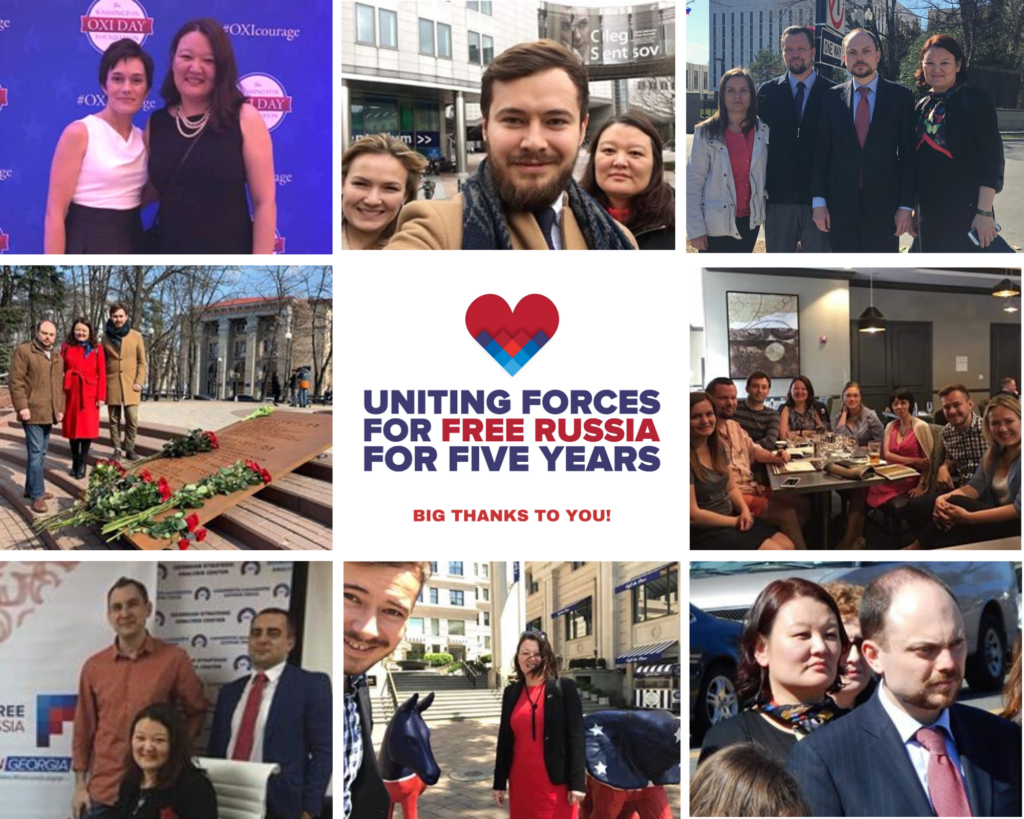
On December 2, 2019, Free Russia Foundation marks its fifth birthday.
We are presenting a summary of the most complete list of people prosecuted for their involvement in the Hizb ut-Tahrir al-Islami organization (hereinafter referred to as HT) in Russia and the annexed Crimea. Hizb ut-Tahrir al-Islami organization was recognized in Russia as a terrorist organization and banned on this basis.
Watch the full version of the “Misrule of Law: How the Kremlin Uses Western Institutions to Undermine the West” report presentation in Kyiv, Ukraine. Speaker: Michael Weiss, the Director of Special Investigations at Free Russia Foundation and co-author of the report.
The report is available by link: https://bit.ly/34uYJ9W
http://www.facebook.com/freerussiahouse/videos/543190869876679/?t=0
The Crimean Tatars are “a Muslim ethnic minority indigenous to the Crimean Peninsula.” They have been among the most vocal critics of the Russian occupation of Crimea, and as a result, the Russian authorities have “relentlessly persecuted” them.
Continue reading The Kremlin’s Political Prisoners: The Case of Emir-Usein Kuku
NIEUWSPOORT INTERNATIONAL PRESS CENTRE
10 LANGE POTEN 2511 CL THE HAGUE
WEDNESDAY 11 DECEMBER
09:00 – 14:00
Free admission but please register here
Enquiries: [email protected]
This summer, the Parliamentary Assembly of the Council of Europe voted by 118 to 62 to restore the full rights of the Russian Federation in Europe’s oldest pan-continental body dedicated to upholding human rights. They key argument from proponents was that membership in the Council serves the interests of Russian citizens, keeping them under the protection of the Convention on Human Rights and Fundamental Freedoms and under the continued jurisdiction of the European Court of Human Rights. “Russia belongs in the Council of Europe – with all the rights and obligations that entails,” German Foreign Minister Heiko Maas, the driving-force behind Russia’s return, told journalists as the decision was taken.
Now that the rights have been restored, it is time to talk about the obligations. Across the spectrum of freedoms guaranteed by the Convention, the Russian government is falling far short of the standards expected of a Council of Europe member state. Elections on both national and local level lack genuine competition, as witnessed most recently in this year’s legislative polls in Moscow that saw the removal of major opposition candidates. Peaceful demonstrations are violently dispersed by police, with protesters beaten and arrested. The judicial system is used by the government to punish political opponents and members of undesirable religious groups: the Memorial Human Rights Centre counts at least 304 people who correspond to the Council of Europe’s criteria of political prisoners. Increasingly, murder is used as a tool of silencing dissent. Nearly five years after the assassination of Russian opposition leader Boris Nemtsov, the organizers and masterminds remain unidentified and unindicted, with the Russian government refusing all cooperation with international oversight procedures – including in the Council of Europe itself.
On 11th December, political leaders and human rights advocates from the Netherlands and Russia will meet at the Nieuwspoort International Press Centre in The Hague to discuss the risks and benefits of Russia’s return to the Council of Europe, and mechanisms that are available to keep the Russian government to account over the violations of its international commitments.
Agenda:
09:00 Registration and coffee
10:00 Panel One: Human rights, rule of law, democracy: is Russia meeting Council of Europe standards?
– Vladimir Kara-Murza, Russian Opposition Politician, Chairman of the Boris Nemtsov Foundation for Freedom
– Sergei Davidis, Head of the Political Prisoner Support Programme, Memorial Human Rights Centre, Russia
– Vadim Prokhorov, Lawyer for the Family of Boris Nemtsov, Former Member of the Russian Central Electoral Commission
– Natalia Arno, Russian Democracy Activist, President of the Free Russia Foundation
11:00 Panel Two: Russia’s return to the Council of Europe: what benefits and risks?
– Lize Glas, Assistant Professor of International and European Law, Radboud University, The Netherlands
– Scott Martin, International Human Rights Lawyer, Global Rights Compliance, The Hague
12:00 Lunch break
13:00 How can Western governments and civil society respond?
– Jan Marinus Wiersma, Senior Visiting Fellow, Clingendael Institute, Member of the European Parliament, 1994–2009
– Harry Hummel, Senior Policy Advisor, Netherlands Helsinki Committee
– Jelger Groeneveld, Secretary of the Department of International Cooperation, D66 Party, The Netherlands
14:00 Event concludes
Ivan Matsitsky is the spiritual leader of the Church of Scientology of St. Petersburg. He has been detained since June 2017, facing criminal charges relating to his involvement with Scientology.
Continue reading The Kremlin’s Political Prisoners: The Case of Ivan Matsitsky
The bottom line for spy recruitment comes down to this: look for the losers, especially the ones who want to think they are winners because they hang on to important positions.
Memorial Human Rights Center (HRC), in accordance with the international guidelines defining the term ‘political prisoner,’ has recognized Yuly Boyarshinov and Viktor Filinkov as political prisoners. We demand their immediate release and that the criminal charges against them for alleged involvement in a terrorist group be dropped.
Continue reading The Kremlin’s Political Prisoners: The Case of Yuly Boyarshinov and Viktor Filinkov

